Civilization & Culture ExplorationTraditionally Session 3 is a civilization based Quest. Last year, our learners explored US Citizenship and our Adventure Studio completed the King George Experiment as they explored revolutionary era America. This year, our learners will explore everything from how cultures around the world celebrate the Holidays, to the rise and fall of Ancient Greece and their vibrant culture, to why people do what they do in social groups with the exploration of Social Psychology! Sparks | Holidays Around the WorldThis session, the Sparks will travel to several different countries to learn about a specific holiday they celebrate! Heroes will get a Passport to collect information and activities in as we learn about each holiday. Hero of the Week: Belonging and Respect Our focus on heroes this session is going to be about people who showed belonging and respect throughout their life. Each hero is a representation of our three updated Spark Guardrails:
The heroes of the week will be:
Culture and Geography Because we are traveling to several places for our Quest, this session we will be having a focus of Holidays in the United States for Culture and Geography. We will also be reading stories about “What is Culture?” and why it is important. Discovery | Acton AthensThe Discovery and Odyssey Studios will be traveling back to Athens for the Acton Athens Quest! Heroes will be learning about Ancient Greece through a series of challenges, some of which are making a wax tablet, building and using an abacus, and sculpting a Greek Hero! By completing these challenges, Heroes will earn coins to spend at the Agora marketplace where they can buy challenge supplies (and on some special days, Greek art, toys, and foods)! Civilization: Ancient Greece We will read about the history of Ancient Greece and talk about some ancient Heroes from that time. Hero’s will make four more passports for their Hero’s deck of cards and carve a Greek vase with a hero's journey on it. Communication: Hero’s will be guided through writing their own myth, reading or telling it aloud and making a Greek illustration that goes along with it. Odyssey | Acton AthensThe Odyssey Studio will be traveling back to Athens for the Acton Athens Quest! Heroes will be learning about Ancient Greece through a series of challenges, some of which are making a wax tablet, building and using an abacus, and sculpting a Greek Hero! By completing these challenges, Heroes will earn coins to spend at the Agora marketplace where they can buy challenge supplies (and on some special days, Greek art, toys, and foods)! For Communication this session, Heroes will get to create a blog or vlog about a topic that they are passionate about! Blogs are a great place to express who you are and write down your thoughts, experiences, and ideas. As always, we’ll start by looking at world-class examples, and then move through the stages of writing to end the session with a published blog! Civilization will run alongside Quest, and Heroes will be stepping into the shoes of Greek heroes from Mycenae, Crete, Sparta, and Athens and asked big questions like:
Launchpad | Social Psychology Quest: Social Psychology
Humans have been awe-stricken and mystified by the power of the mind since the beginning, and yet the formal science dedicated to it has only been around some 150 years. But what an info-packed 150 years it has been! Over the next four weeks weeks, this quest will explore all things cognitive, meaning mental processing, especially those processes impacted by the people around us. We will explore behavior; what determines it, what changes it. We'll ask questions about how we define the self, how we think about the people around us, how we are influenced by (and might influence) those around us, and about the factors that influence helping, aggression, and even romance! This Quest combines deep research into these kinds of important questions as well as hands on real world experiments and tests (parents and family members may even find themselves the unknowing subjects at times!) Heroes will enjoy this glimpse into the endless possibilities that come from studying the mind, and a foreshadowing of some brilliant heroes whose theories we will analyze. Communication: Letters to Your Future Self Inevitably, at some point in your life, you will lose your perspective – perhaps in a time when a terrible defeat seems unavoidable or after a great victory, when you’re swept away by love (or something like it) or pressured by peers to abandon your morals, or when you simply need to let go of another’s expectations. During these important moments, you’ll wish you had a trusted friend to offer solace and guidance. In this Communication Project, that trusted friend will be YOU. In other words, the current you will serve as a future friend by writing five letters to yourself – the future you – offering comfort, words of encouragement, and advice for when you need it most.
0 Comments
Be the Change: |
Michelle Bowen - Owner, Acton Leadership AcademyMichelle and her husband Brad own Acton Leadership Academy in Houston, Texas. |
launchpad
Acton Lincoln's Private High School Experience
Are you looking for an alternative private high school in Lincoln, Nebraska, that offers a rigorous and personalized education? Acton Academy Lincoln provides a unique high school experience that empowers students to take charge of their learning.
Visit our Launchpad page to explore our high school program and discover how we prepare students for college and beyond. Learn why Acton Academy Lincoln is a top choice for high school education in Lincoln, NE.
Welcome to Acton Academy Lincoln, quite possibly Lincoln, Nebraska's most unique private school. If you're searching for an extraordinary private school experience for your child, you've come to the right place. In this blog post, we'll explore Acton Academy Lincoln's innovative approach to education, its unique curriculum, and how it empowers students to become lifelong learners and critical thinkers. We invite you to embark on this journey with us and discover why Acton Academy Lincoln is the ideal choice for your child's education.
1. A Tailored Learning Experience
At Acton Academy Lincoln, we understand that each child is unique, and their educational journey should reflect that individuality. Our learner-driven approach ensures that every student has the ability to move at their own pace, helping them to reach their full potential.
2. A Different Kind of Curriculum
Our curriculum goes beyond traditional education models. We prioritize real-world, hands-on experiences that foster critical thinking, problem-solving, and creativity. Students are encouraged to take ownership of their learning, setting goals, and designing projects that align with their passions. This approach not only equips them with academic knowledge but also prepares them for life beyond the classroom.
3. A Community of Lifelong Learners
Acton Academy Lincoln is more than just a school; it's a close-knit community of students, parents, and educators dedicated to the pursuit of knowledge and personal growth. Our tight-knit community encourages collaboration and support, allowing students to thrive in an environment that nurtures their intellectual and emotional development.
4. Technology-Enhanced Learning
In today's digital age, it's crucial to prepare students for the technology-driven future. Acton Academy Lincoln incorporates technology into the learning process, helping students become tech-savvy while maintaining a balanced approach that values face-to-face interactions and outdoor activities.
5. Preparing for the Future
Our ultimate goal is to prepare students not just for success in school but for success in life. Acton Academy Lincoln instills in its students essential skills such as leadership, self-discipline, and entrepreneurship. We believe that these skills are the keys to a bright and promising future.
If you're looking for a private school in Lincoln, Nebraska, that provides an exceptional and innovative educational experience, Acton Academy Lincoln is the answer. Our student-focused approach, unique curriculum, and commitment to nurturing lifelong learners set us apart from traditional educational institutions.
Join us on this exciting journey of discovery and growth. Request a FREE info kit here>> to learn more about our programs, curriculum, and admission process.
Acton Academy Lincoln is not just a school; it's a community dedicated to unlocking the potential of each and every student. Give your child the gift of an extraordinary education at Acton Academy Lincoln, where possibilities are limitless.
At Acton Academy Lincoln, we understand that each child is unique, and their educational journey should reflect that individuality. Our learner-driven approach ensures that every student has the ability to move at their own pace, helping them to reach their full potential.
2. A Different Kind of Curriculum
Our curriculum goes beyond traditional education models. We prioritize real-world, hands-on experiences that foster critical thinking, problem-solving, and creativity. Students are encouraged to take ownership of their learning, setting goals, and designing projects that align with their passions. This approach not only equips them with academic knowledge but also prepares them for life beyond the classroom.
3. A Community of Lifelong Learners
Acton Academy Lincoln is more than just a school; it's a close-knit community of students, parents, and educators dedicated to the pursuit of knowledge and personal growth. Our tight-knit community encourages collaboration and support, allowing students to thrive in an environment that nurtures their intellectual and emotional development.
4. Technology-Enhanced Learning
In today's digital age, it's crucial to prepare students for the technology-driven future. Acton Academy Lincoln incorporates technology into the learning process, helping students become tech-savvy while maintaining a balanced approach that values face-to-face interactions and outdoor activities.
5. Preparing for the Future
Our ultimate goal is to prepare students not just for success in school but for success in life. Acton Academy Lincoln instills in its students essential skills such as leadership, self-discipline, and entrepreneurship. We believe that these skills are the keys to a bright and promising future.
If you're looking for a private school in Lincoln, Nebraska, that provides an exceptional and innovative educational experience, Acton Academy Lincoln is the answer. Our student-focused approach, unique curriculum, and commitment to nurturing lifelong learners set us apart from traditional educational institutions.
Join us on this exciting journey of discovery and growth. Request a FREE info kit here>> to learn more about our programs, curriculum, and admission process.
Acton Academy Lincoln is not just a school; it's a community dedicated to unlocking the potential of each and every student. Give your child the gift of an extraordinary education at Acton Academy Lincoln, where possibilities are limitless.
The gift of time: A School That Believes in Letting Children 'Be'.
At Acton Lincoln, we get outside. A LOT. We look for opportunities to take our learning out of the classroom and in to the fresh air. We aren't afraid to get dirty while we learn through play. Last year our Montessori-aged learners clocked 491 hours outside with our two elementary studios coming in well over 300 hours. In fact we take outdoor free play so seriously that our Sparks spend each Wednesday at our Outdoor School which we call ‘Wilderness Wednesdays’, and our two elementary studios joining them every other week. On these days our learners simply spend the ENTIRE day exploring and immersing themselves in nature just outside Lincoln.
Our Guides encourage active exploration, inquiry, independence, kindness & character building, choice, critical thinking & problem solving, wonder, and discovery. Our days are loosely structured to allow space for the learners' curiosity and interest to lead.
The following are the reflections of our former Spark Guide turned Chief Encourager, Miss Devon after her studio clocked nearly 500 hours outside last year!
Our Guides encourage active exploration, inquiry, independence, kindness & character building, choice, critical thinking & problem solving, wonder, and discovery. Our days are loosely structured to allow space for the learners' curiosity and interest to lead.
The following are the reflections of our former Spark Guide turned Chief Encourager, Miss Devon after her studio clocked nearly 500 hours outside last year!
Time. It’s such a prized possession in today’s world.
There is so much emphasis put on it. Desire for it to speed up, to get to the next step. Then desire for it to slow down, wishing that certain moments wouldn’t pass by so quickly.
In a society that is always moving, always looking ahead…how valuable are the moments where we choose to pause, to reflect, to be present. To immerse ourselves in an environment that is nourishing and allows us to be our truest selves, also known as, the outdoors.
This past year, our Spark Studio learners clocked 491 hours outside. The equivalent of 12 standard 40 hour work weeks. 491 hours spent soaking in the sunshine and learning about themselves, cultivating courage and growth.
It was simply beautiful.
While I could only imagine having a window deep into the adventures that unfolded during this precious time, here’s what I did observe, from a bird’s eye view…
There is so much emphasis put on it. Desire for it to speed up, to get to the next step. Then desire for it to slow down, wishing that certain moments wouldn’t pass by so quickly.
In a society that is always moving, always looking ahead…how valuable are the moments where we choose to pause, to reflect, to be present. To immerse ourselves in an environment that is nourishing and allows us to be our truest selves, also known as, the outdoors.
This past year, our Spark Studio learners clocked 491 hours outside. The equivalent of 12 standard 40 hour work weeks. 491 hours spent soaking in the sunshine and learning about themselves, cultivating courage and growth.
It was simply beautiful.
While I could only imagine having a window deep into the adventures that unfolded during this precious time, here’s what I did observe, from a bird’s eye view…
"How incredible that each of these young learners is now able to recognize how to interact with and thrive in the outdoors. How to connect with their world around them and discover things they love to do in the most natural of settings."
Space. Freedom. And play. Children in their purest form - laughing, running, creating, and exploring.
Stories. New ones being written and old ones being told. Stories that built on each other. The heroes picking up right where they left off in them. Day after day.
Curiosity. Wonder. Wholeness. Eyes open so wide. The taking in of all the different outdoor settings - whether that be the playground, the forest, or the open fields.
Grounding. Peace. The recognition of all the senses - sight, smell, touch, sound, and taste - and the ability to share which they were most grateful for from day to day.
Loss of time, leading to full immersion and presence in each moment.
Hours upon hours spent soaking in the sunlight on the most beautiful of days, and resilience being cultivated on the gloomier ones.
Stories. New ones being written and old ones being told. Stories that built on each other. The heroes picking up right where they left off in them. Day after day.
Curiosity. Wonder. Wholeness. Eyes open so wide. The taking in of all the different outdoor settings - whether that be the playground, the forest, or the open fields.
Grounding. Peace. The recognition of all the senses - sight, smell, touch, sound, and taste - and the ability to share which they were most grateful for from day to day.
Loss of time, leading to full immersion and presence in each moment.
Hours upon hours spent soaking in the sunlight on the most beautiful of days, and resilience being cultivated on the gloomier ones.
Time. 491 hours of it that were received as a gift. Time that stood still in many moments, because it was just that wonderful. The type of time that will keep on giving.
How incredible that each of these young learners is now able to recognize how to interact with and thrive in the outdoors. How to connect with their world around them and discover things they love to do in the most natural of settings.
It was nothing short of a blessing to get to pause alongside these heroes. To witness them further discover themselves and experience the JOY of the outdoors.
Here’s to all the hours in the sunshine that lie ahead…may they continue to be life-giving and nourishing in every way!
How incredible that each of these young learners is now able to recognize how to interact with and thrive in the outdoors. How to connect with their world around them and discover things they love to do in the most natural of settings.
It was nothing short of a blessing to get to pause alongside these heroes. To witness them further discover themselves and experience the JOY of the outdoors.
Here’s to all the hours in the sunshine that lie ahead…may they continue to be life-giving and nourishing in every way!
We are excited to announce our Quests and other focus areas for each of our four mixed-age studios for the upcoming session. This is our second of three science themed sessions, where learners have the opportunity to explore various scientific topics in a very hands on way. You can read more about our learning design here.
Quests are real-world projects to master 21st-century skills. Usually lasting four- to six-weeks, each Quest includes a series of challenges bound by a compelling narrative and is designed to deliver 21st century skills while simultaneously incorporating traditional topics like science, social studies, and history.
Quests are real-world projects to master 21st-century skills. Usually lasting four- to six-weeks, each Quest includes a series of challenges bound by a compelling narrative and is designed to deliver 21st century skills while simultaneously incorporating traditional topics like science, social studies, and history.
There's an old proverb that many of us has likely heard;
"Give a man a fish and you feed him for a day. |
While we won't be teaching anyone to catch a master angler this session, this proverb does sum up the spirit of Session 2 each year: Entrepreneurship!
While we don't believe each of our learners will end up owning their own businesses, nor do we believe everyone SHOULD be an entrepreneur, we DO believe in the lessons Entrepreneurship provides, from problem solving, to customer care, from seeing needs in the market to being able to sell products/ services or even ourselves in a job interview.
Take a look below to see this year's take on "learning to fish"
While we don't believe each of our learners will end up owning their own businesses, nor do we believe everyone SHOULD be an entrepreneur, we DO believe in the lessons Entrepreneurship provides, from problem solving, to customer care, from seeing needs in the market to being able to sell products/ services or even ourselves in a job interview.
Take a look below to see this year's take on "learning to fish"
Sparks | Inventors Theme
| Quest + Hero of the Week: Inventors From the Wright Brothers to Thomas Hopkins Galludet, we will learn about some heroes who changed the world with their innovation and creativity! Then we channel our own creativity, through structured mini challenges and unstructured invention time! Culture + Geography: South America! |
Discovery | E-ship 'Build-a-Business'
| The E-Ship Build-a-Business quest is designed for learners to work on a team to form a company that successfully runs a lemonade stand. In this quest, they will participate in two “Stand-Offs”, which are sales competitions where teams set up lemonade stands and try to sell the most and make the most profits. Along the way, they explore the following concepts in entrepreneurship: |
- Company Formation (mission statement, roles, strengths assessments, heroes in entrepreneurship)
- Image (logos, slogans, psychology and behavioral economics, image creation)
- Markets and Consumers (Lemonade Stand-Off competition and customer surveys and market studies)
- Costs and Risks (unit economics, Four Rules of Cash, Snack Stand Stand-Off)
The purpose of the E-ship Build-a-Business Quest is to equip the learners with skills, tools, and frameworks needed to start a business. The quest has two main goals:
- To learn more about themselves; to become more familiar with their individual strengths within the framework of a team and within the context of heroes in entrepreneurship
- To learn as much about entrepreneurship as possible
Civilization: After exploring "clans" and the building blocks of the first civilizations during session one, the Discovery Studio will be plunging into the first African Civilizations, exploring African heroes from history and experience the traits of these early civilizations!
Communication: Session two communication will focus on laying a strong foundation for future challenges. Learners will be given weekly communication challenges for skills they use daily in the studio such as giving character call outs, writing Birthday wishes, or having courageous conversations.
Odyssey | E-SHIP 'BUILD-A-BUSINESS'
The Odyssey Studio will also be completing their own version of the Lemonade Stand-Off Eship Quest. Learners will work on a team to form a company that successfully runs a lemonade stand. On this quest, they will participate in two “Stand-Offs”, which are sales competitions where teams set up lemonade stands and try to sell the most and make the most profits. Along the way, they’ll explore entrepreneurship concepts like company formation, image, markets and consumers, and costs and risks. (For more details, see the Discovery Studio preview).
Communication- Create a Commercial
To go along with the business that they’ll be building, heroes will also take on the challenge of planning, writing, and recording a commercial for their Lemonade Stand! They’ll be able to use their Quest budget to buy ad space on the Band App to advertise their business and product to customers before Exhibition!
To go along with the business that they’ll be building, heroes will also take on the challenge of planning, writing, and recording a commercial for their Lemonade Stand! They’ll be able to use their Quest budget to buy ad space on the Band App to advertise their business and product to customers before Exhibition!
Launchpad | personal finance

Quest: Personal Finance Quest
The goal of the Personal Finance Quest is to prepare Heroes with tools to thrive in the real world by going beyond a few basic financial tools and skills, and delving deeply into the helpful and destructive ways money can influence our lives. This starts with an exploration of the meaning of money for each person. Heroes will research and plan what their financial futures will look like, as well as vocations and careers.
Each individual will pitch the job, providing proof of talents and passions and (imagining the future) explaining which apprenticeships and/or college degrees had prepared them for the position. In doing so, the twists and turns and path dependencies of early life choices become clearer.
Communication Badge: Narrative Journalism
“What is your story?” It’s a question curious people ask when they meet an interesting person. Being able to “tell your story” isn’t nearly as interesting as asking other people about theirs, but it is an important skill. “What will your story be?” is an even harder question, because it requires them to describe a journey they courageously undertook in support of an important cause, and the struggles, monsters and mentors they will meet along the way; the Holy Grail at the end if they are successful; and how they will be changed by the adventure.
In Session Two, Launchpadders are being asked to write “the story of your life” or “the cause you took on” looking back from age 30, as if a reporter had investigated your exploits or cause and written an intriguing tale. This unusual genre is best described as visionary narrative non-fiction or visionary long-form journalism. Their piece will be “visionary” in the sense they are painting a vision of how they expect their life or the cause they will champion will turn out, after they made decisions in the face of ambiguity. The piece is “non-fiction,” “narrative” and “journalism” because it will be a true, compelling story.
Session 2 -- Here we come!!!
The goal of the Personal Finance Quest is to prepare Heroes with tools to thrive in the real world by going beyond a few basic financial tools and skills, and delving deeply into the helpful and destructive ways money can influence our lives. This starts with an exploration of the meaning of money for each person. Heroes will research and plan what their financial futures will look like, as well as vocations and careers.
Each individual will pitch the job, providing proof of talents and passions and (imagining the future) explaining which apprenticeships and/or college degrees had prepared them for the position. In doing so, the twists and turns and path dependencies of early life choices become clearer.
Communication Badge: Narrative Journalism
“What is your story?” It’s a question curious people ask when they meet an interesting person. Being able to “tell your story” isn’t nearly as interesting as asking other people about theirs, but it is an important skill. “What will your story be?” is an even harder question, because it requires them to describe a journey they courageously undertook in support of an important cause, and the struggles, monsters and mentors they will meet along the way; the Holy Grail at the end if they are successful; and how they will be changed by the adventure.
In Session Two, Launchpadders are being asked to write “the story of your life” or “the cause you took on” looking back from age 30, as if a reporter had investigated your exploits or cause and written an intriguing tale. This unusual genre is best described as visionary narrative non-fiction or visionary long-form journalism. Their piece will be “visionary” in the sense they are painting a vision of how they expect their life or the cause they will champion will turn out, after they made decisions in the face of ambiguity. The piece is “non-fiction,” “narrative” and “journalism” because it will be a true, compelling story.
Session 2 -- Here we come!!!
New Year = New Adventures!
As we prepare to kick off the 2023-24 school year we wanted to take a look ahead at what adventures await our learners in Session One and beyond.
This year our learners will be exploring all things Servant Leadership. Instead of seeking to answer an overarching question of the year, collectively they will be seeking to build a culture full over servant leaders, while individually developing a servants heart.
Annually, we kick off session one, by working hard on team building, communication and leadership development. This will look slightly different in each studio, but the goal is the same: Build the Tribe and create a strong foundation for the year, heroes will be drafting, trialing, and finally writing their own studio contract. Along with establishing their own “laws” for studio life.
Take a glimpse to each studio's first session culminating with their public exhibition at the end of September!
Annually, we kick off session one, by working hard on team building, communication and leadership development. This will look slightly different in each studio, but the goal is the same: Build the Tribe and create a strong foundation for the year, heroes will be drafting, trialing, and finally writing their own studio contract. Along with establishing their own “laws” for studio life.
Take a glimpse to each studio's first session culminating with their public exhibition at the end of September!
sparks
Build the Tribe
| The majority of this session will be spent getting acquainted with the studio, schedule, Montessori works, and Acton Systems. The Spark heroes will also spend time:
|
| Culture + Geography
| This Session's Heroes:
|
discovery
Build the Tribe
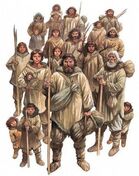
The Discovery studio will focus on building their “tribe”, themed around prehistoric clans! This will be accomplished through team building, survival challenges, and a self-choreographed group dance. Through fun activities, inspiring launches, and challenging games - the heroes will be equipped with the Acton systems and lay the foundation for a successful year in THEIR studio!
Over the course of this session the heroes will also roll out their various Core Skills programs and Meaningful Works, with Communication challenges & Civilization coming in session two!
Over the course of this session the heroes will also roll out their various Core Skills programs and Meaningful Works, with Communication challenges & Civilization coming in session two!
odyssey
Build the Tribe | Hero Boards + Native American Survival
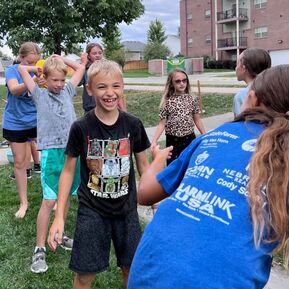
This year the Odyssey heroes are going to dive right into building their tribe with our Prediction Tools Quest. This Quest will equip Heroes with the tools and confidence that will help them throughout the year and on their Hero’s Journey. Unique challenges will take Heroes through the process of exploring tools that may or may not be able to help determine outcomes. Throughout the session, they’ll be filling up their Acton “tool belt” with Studio Tools, Self-Knowledge Tools, Teamwork Tools, and Strategy Tools! On top of all of that, the studio will also be creating a new Studio Contract, playing lots of games, and designing Hero Boards that will be on display at Exhibition!
For the second half of the session, Quest will be lead by the group of Odyssey Heroes who won the Create-a-Quest competition from Session 7 last year. They will be delivering their Native American Survival Quest, filled with many fun and adventurous outdoor activities!
For the second half of the session, Quest will be lead by the group of Odyssey Heroes who won the Create-a-Quest competition from Session 7 last year. They will be delivering their Native American Survival Quest, filled with many fun and adventurous outdoor activities!
launchpad
Build the Tribe + "Free Agent" Quest
Launchpad is a tightly committed group of high school-aged heroes, dedicated to finding a passion they can use to serve others, forging genuine relationships, mastering core skills like reading, writing and math, and delivering world-class projects – all to find a calling that will change the world. Strong knit cultures and world-changing adventures do not come easily. This session they will be tackling the Build a Tribe & Free Agent Quest to boldly face the threshold into adulthood.
They'll be working to explore their individual and collective why, creating a culture deck, and forging studio systems to match. In addition each Launch Padder will be challenged to begin planning for their Next Great Adventure and will be exploring what it will take to find an extraordinary first "real" job where they could:
They'll be working to explore their individual and collective why, creating a culture deck, and forging studio systems to match. In addition each Launch Padder will be challenged to begin planning for their Next Great Adventure and will be exploring what it will take to find an extraordinary first "real" job where they could:
- Use a “superpower” to earn enough money to survive independently of parents;
- Hone a deliberate practice that attracts fascinating opportunities; and
- Use the positive aspects of the REAL YOU to contribute to a culture.
Communication Project: At the end of life, heroes tend to ask themselves three questions:
- Was I a good person?
- Did I contribute something meaningful?
- Whom did I love and who loved me?
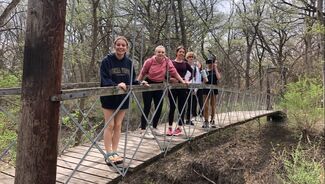
This year's Build the Tribe Quest focuses primarily on the third and supports the position that while it is certainly an option to just let friendships happen as they may throughout one’s life, greater happiness and fulfillment can be attained by honestly reflecting on what one wants from friendships and consciously steering accordingly.
By the end of the Quest, the Launchpadders will have taken a deep and honest assessment of their current relationships, created a personal strategy for cultivating the type and quantity of friendships they want in their lives, and explored how to be a friend to others.
Who are my friends and what does friendship mean to me?
Goals:
By the end of the Quest, the Launchpadders will have taken a deep and honest assessment of their current relationships, created a personal strategy for cultivating the type and quantity of friendships they want in their lives, and explored how to be a friend to others.
Who are my friends and what does friendship mean to me?
Goals:
- Explore what Friendship means to me
- Honestly assess the current state of my friendships
- Consciously decide what I want my friendships to look like, and what changes I need to make in my behavior to get there
Let the 2023-2024 Adventure Begin!!
The Final Session of the Year is here &
It's time to 'grow curiosity'
We are excited to announce our Quests and other focus areas for each of our four mixed-age studios for the final session of the year! Our final session of the year is reserved for 'growing curiosity' and exploring passion projects. You can read more about our learning design here.
Sparks
QUEST: Growing Curiosity
Our quest this session has a unique twist…as the heroes were the ones to select our topics!
Rather than focusing on one theme each week, we will do a speedy deep dive into 3 different concepts throughout the session, allowing heroes to experience a wide array of hands-on activities in a short amount of time!
Week #1: INSECTS
Week #2: THE HUMAN BODY
Week #3: DINOSAURS/FOSSILS
HEROES OF THE WEEK: Frida Kahlo & Dolly Parton
CULTURE:
Our travels will take us to Australia this session as we explore the cultures and traditions of:
Our quest this session has a unique twist…as the heroes were the ones to select our topics!
Rather than focusing on one theme each week, we will do a speedy deep dive into 3 different concepts throughout the session, allowing heroes to experience a wide array of hands-on activities in a short amount of time!
Week #1: INSECTS
Week #2: THE HUMAN BODY
Week #3: DINOSAURS/FOSSILS
HEROES OF THE WEEK: Frida Kahlo & Dolly Parton
CULTURE:
Our travels will take us to Australia this session as we explore the cultures and traditions of:
- SIDNEY
- TASMANIA
- VICTORIA
DISCOVERY
QUEST: Growing Curiosity
In the Discovery Studio, heroes will be challenged to embrace their curiosity and dive deeply into a variety of topics, challenging themselves to be open-minded each day to the possibility of discovering a new passion, gift, or talent! Heroes will come in with a fresh, clean slate. What sparks THEIR interest? What have THEY been eager to learn more about?
What we brainstorm as a studio will drive what the studio learns and will shape the rest of this session's Quest.
They also have the opportunity to pursue their own mini-passion projects throughout the session.
In the Discovery Studio, heroes will be challenged to embrace their curiosity and dive deeply into a variety of topics, challenging themselves to be open-minded each day to the possibility of discovering a new passion, gift, or talent! Heroes will come in with a fresh, clean slate. What sparks THEIR interest? What have THEY been eager to learn more about?
What we brainstorm as a studio will drive what the studio learns and will shape the rest of this session's Quest.
They also have the opportunity to pursue their own mini-passion projects throughout the session.
oDYSSEY
QUEST: Growing Curiosity
Heroes have the opportunity to plan and lead a day of Quest of their choosing! In groups, heroes will choose a topic that they are interested in and plan out the launch, activity, and debrief for their topic!
Then for the second half of the session, each group will lead a day of Quest and share their passion with their fellow travelers. Some ideas that were brainstormed on the last day of Session 6 were video editing, music, survival, art, film-making, freestyle writing, and engineering! I can’t wait to see what activities the heroes plan!
WRITER'S WORKSHOP - Plan your Own Mini-Quest
Keeping with the theme of exploring your passion, Writer’s Workshop this session will allow heroes to design their dream Quest. For Quest this session heroes will be planning a delivering one day of a Quest, but what if they had the opportunity to design a 2-week mini Quest?! During Writer’s Workshop heroes will have time to research, design, and write out their vision of their Dream Quest and bring it to life! And the added bonus, the hero or group that creates a true Acton Mini-Quest, with planned launches, challenges, and debriefs, will have the opportunity next year to bring their Mini-Quest to life for half of a session!
Heroes have the opportunity to plan and lead a day of Quest of their choosing! In groups, heroes will choose a topic that they are interested in and plan out the launch, activity, and debrief for their topic!
Then for the second half of the session, each group will lead a day of Quest and share their passion with their fellow travelers. Some ideas that were brainstormed on the last day of Session 6 were video editing, music, survival, art, film-making, freestyle writing, and engineering! I can’t wait to see what activities the heroes plan!
WRITER'S WORKSHOP - Plan your Own Mini-Quest
Keeping with the theme of exploring your passion, Writer’s Workshop this session will allow heroes to design their dream Quest. For Quest this session heroes will be planning a delivering one day of a Quest, but what if they had the opportunity to design a 2-week mini Quest?! During Writer’s Workshop heroes will have time to research, design, and write out their vision of their Dream Quest and bring it to life! And the added bonus, the hero or group that creates a true Acton Mini-Quest, with planned launches, challenges, and debriefs, will have the opportunity next year to bring their Mini-Quest to life for half of a session!
aDVENTURE
One of the goals of the Adventure Studio is to provide meaningful opportunities and tools for uncovering and pursuing individual passions While this is baked into the learning design throughout the year, this is an area of special focus during session 7. The key question throughout this session is, “What am I passionate about & how can I channel or build that passion into something that will make a difference in my Hero’s Journey?”
QUEST: Independent Passion Projects
Heroes will have the freedom (and responsibility) to identify an area of learning they are passionate about. They will then be equipped with a recipe for creating and executing an independent 4 week plan of learning. As part of that recipe, they will explore and identify resources they’ll need to build their knowledge base and then channel that into practicing a meaningful skill, creating something new and unique, answering a difficult question, and/or serving others.
COMMUNICATION - Heroes have two choices for Communication this Session:
CIVILIZATION
Earning a civilization badge will be optional this session. Heroes will have the choice of reading & reflecting on a definitive biography (and using this to plan and lead a discussion with the whole studio) or exploring a particular person, period, or topic within history/government/economics and attempting to answer one or more big, important questions in that same theme.
Heroes will also have the option of forgoing the civilization badge this session in order to focus more time on Quest, Communication, or self paced core skill or learning to be badges!
QUEST: Independent Passion Projects
Heroes will have the freedom (and responsibility) to identify an area of learning they are passionate about. They will then be equipped with a recipe for creating and executing an independent 4 week plan of learning. As part of that recipe, they will explore and identify resources they’ll need to build their knowledge base and then channel that into practicing a meaningful skill, creating something new and unique, answering a difficult question, and/or serving others.
COMMUNICATION - Heroes have two choices for Communication this Session:
- The first option is, similar to quest, to identify, plan, and execute an independent learning project that is focused on communication. This could be so many different things - just a few possibilities include: drafting a graphic novel, writing a screenplay, developing a business plan, building a website, writing “letters to the editor,” or putting together a poetry anthology. Whatever path a hero chooses - they’ll follow a tried and true recipe for success including:
+Pre-Write/Research/Explore
+First Draft
+Revise + Critique (& Repeat)
+Edit
+Publish - The second option for heroes is to go back and repeat a Communication badge from some time in the past two years. If they choose this route, the focus will be on developing excellence - identifying and executing on specific ways this second attempt will be better than the last time. Earning the badge will be dependent upon their ability to prove this growth.
CIVILIZATION
Earning a civilization badge will be optional this session. Heroes will have the choice of reading & reflecting on a definitive biography (and using this to plan and lead a discussion with the whole studio) or exploring a particular person, period, or topic within history/government/economics and attempting to answer one or more big, important questions in that same theme.
Heroes will also have the option of forgoing the civilization badge this session in order to focus more time on Quest, Communication, or self paced core skill or learning to be badges!
What's in a Badge?
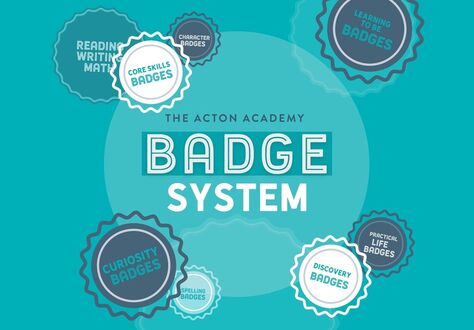
Sending your child to Acton Academy Lincoln means that they’ll be developing skills that can’t be easily quantified — things like self-management, self-governance, character, high-level communication skills, learning how to learn and taking opportunities to dive deeply into areas of your greatest passions and gifts.
Badges (rather than traditional grades or report cards) are a way to showcase this work. It is their most important function.
Additionally, badges at Acton allow us to translate accomplishments into a traditional transcript so that our learners can compete with their peers in “college prep” environments if they so choose.
Check out this quick 2-minute video to see what a group of learners at Acton main want parents to understand about badges!
Badges (rather than traditional grades or report cards) are a way to showcase this work. It is their most important function.
Additionally, badges at Acton allow us to translate accomplishments into a traditional transcript so that our learners can compete with their peers in “college prep” environments if they so choose.
Check out this quick 2-minute video to see what a group of learners at Acton main want parents to understand about badges!
HERE IS A PARENT’S “CHEAT SHEET” TO BETTER UNDERSTAND THE BADGE SYSTEM AND PHILOSOPHY AT ACTON:
So… what is a badge?
While the size and scope of the complete badge plan varies in size & scope from our Spark Studio to our upper studios, the basics of a badge itself doesn't change!
Think of it as a long-term effort focused on a particular discipline. Each badge is a process. There’s a large quantity of work to be completed (usually broken down into a number of "challenges") and a process in which that work is reviewed several times by several people. (This review process becomes more important and a lot more intense in the upper studios!)
In traditional academic language, a badge is comparable to completing a course. But, instead of getting a grade, a badge is awarded only when excellence is achieved.
While the size and scope of the complete badge plan varies in size & scope from our Spark Studio to our upper studios, the basics of a badge itself doesn't change!
Think of it as a long-term effort focused on a particular discipline. Each badge is a process. There’s a large quantity of work to be completed (usually broken down into a number of "challenges") and a process in which that work is reviewed several times by several people. (This review process becomes more important and a lot more intense in the upper studios!)
In traditional academic language, a badge is comparable to completing a course. But, instead of getting a grade, a badge is awarded only when excellence is achieved.
How is a badge earned?
We are a competency-based learning environment. Mastery is the goal. Lions work until they master their learning goals. Then, they progress to the next level. If a badge is not completed, the grade is “Incomplete.”
This is why (especially in the upper studios) that last sprint to compile their work after completing the requirements of a badge is so critical to the Lions. It is the final step and is the proof of their hard work.
And this is where our parenting support comes in most fruitfully.
The place where we can give the most encouragement to our children is in the compilation stage of the badge experience.
For example, when all the required work for a badge is done, the badge is not yet achieved. It must be compiled and submitted. Ask your Lions about whether or not they’ve planned time to compile this work for badge approval; then check in on their progress; ask if they are excited about the work or worried they missed something. Finally, celebrate the hard work of compiling the badge.
What about transcripts?
Translating the work of a completed badge into traditional course content is necessary and is part of our learning design. For example, a traditional school’s “English 9” in high school equates at Acton to 6 communication projects, 4 deep books and 1 No Red Ink badge (yes - that's 11 badges!). Each Lion at Acton has a badge plan that clearly maps out a learning plan that far exceeds the core requirements of high school graduates for acceptance to competitive colleges.
To be clear: At Acton the completion of a badge = mastery = A.
What's more, if a college admissions officer were to ask to see the work behind a letter grade on a transcript, our learners would have the opportunity to truly shine!
Beginning in the Adventure Studio, each Lion begins creating a portfolio - a collection of excellent work from each and every badge achieved. This work goes above and beyond what is required from traditional courses in middle schools and high schools across America.
What else do Badges show?
Unfortunately, the most important accomplishments at Acton such as Apprenticeships, Leadership, Project Management and Quest Creation don’t translate easily under traditional academic subjects like Math, Science, History and English, but badges present an important way to both see and celebrate this kind of growth.
In order to move up (to the next studio or to graduate), every Lion at Acton is expected to earn a certain set of badges. This "badge plan" covers traditional academic subjects (For example they might have badges for reading drawers, badge books, Khan or Beast Math) but it also includes a certain set of quest badges, leadership-focused badges and various other types. This means that some badges have very straightforward requirements (for example - complete the yellow reading drawers or achieve 100% Mastery of Algebra on Khan) but others are more nuanced - Lions might need to earn a certain average of weekly points over the course of a session, be elected to a leadership position, or lead a certain number of discussions. (In our studios using Journey Tracker, all of this is spelled out in detail in each individual badge!)
At Acton, we don’t believe that everyone must do this at the same pace or level. We know that it will take a unique amount of time and growth for each person to be able to hit these standards. But we believe that every child is a genius, and fully capable of doing the work in order to earn more freedom. That’s what Acton is all about.
Progress in each of the learning categories (learn to learn, learn to do, and learn to be) will be reflected in every Lion's badge plan. In addition, all learners work within a badge plan that typically spans 2-3 years of work. This approach offers choices and empowers them to work more effectively at their own pace. It also helps eliminate the illusion of “I am done with all of my work” - there's always the next thing to move on to!
Badges are about excellence and taking the time to unlock true potential!
Some people believe that instead of requiring every learner to complete the same amount of work with the same level of quality, some should be allowed to do less work and lower-quality work. But what this mindset is really communicating is that ‘You are incapable. You are lesser. You aren’t required to do this because we believe you can’t do it.’
According to this idea, if a learner struggles with math, or has a lot going on outside of school, or says they are a ‘bad writer,’ or just doesn’t care, they shouldn’t have to do the work required of others. Let's face it, in today's public school system, you can essentially go through middle school and high school turning in poor work or doing very little work at all and still graduate.
But this is not how the real world works. If we want to be prepared for our true Hero’s Journeys, we cannot be accustomed to being pampered or making excuses. In the real world, success depends on getting the job done well. You have to be willing to work hard and hit standards. Results matter. Badges and badge plans allow us to both hold extremely high standards for our community while at the same time recognizing that individuals develop at different rates.
We are a competency-based learning environment. Mastery is the goal. Lions work until they master their learning goals. Then, they progress to the next level. If a badge is not completed, the grade is “Incomplete.”
This is why (especially in the upper studios) that last sprint to compile their work after completing the requirements of a badge is so critical to the Lions. It is the final step and is the proof of their hard work.
And this is where our parenting support comes in most fruitfully.
The place where we can give the most encouragement to our children is in the compilation stage of the badge experience.
For example, when all the required work for a badge is done, the badge is not yet achieved. It must be compiled and submitted. Ask your Lions about whether or not they’ve planned time to compile this work for badge approval; then check in on their progress; ask if they are excited about the work or worried they missed something. Finally, celebrate the hard work of compiling the badge.
What about transcripts?
Translating the work of a completed badge into traditional course content is necessary and is part of our learning design. For example, a traditional school’s “English 9” in high school equates at Acton to 6 communication projects, 4 deep books and 1 No Red Ink badge (yes - that's 11 badges!). Each Lion at Acton has a badge plan that clearly maps out a learning plan that far exceeds the core requirements of high school graduates for acceptance to competitive colleges.
To be clear: At Acton the completion of a badge = mastery = A.
What's more, if a college admissions officer were to ask to see the work behind a letter grade on a transcript, our learners would have the opportunity to truly shine!
Beginning in the Adventure Studio, each Lion begins creating a portfolio - a collection of excellent work from each and every badge achieved. This work goes above and beyond what is required from traditional courses in middle schools and high schools across America.
What else do Badges show?
Unfortunately, the most important accomplishments at Acton such as Apprenticeships, Leadership, Project Management and Quest Creation don’t translate easily under traditional academic subjects like Math, Science, History and English, but badges present an important way to both see and celebrate this kind of growth.
In order to move up (to the next studio or to graduate), every Lion at Acton is expected to earn a certain set of badges. This "badge plan" covers traditional academic subjects (For example they might have badges for reading drawers, badge books, Khan or Beast Math) but it also includes a certain set of quest badges, leadership-focused badges and various other types. This means that some badges have very straightforward requirements (for example - complete the yellow reading drawers or achieve 100% Mastery of Algebra on Khan) but others are more nuanced - Lions might need to earn a certain average of weekly points over the course of a session, be elected to a leadership position, or lead a certain number of discussions. (In our studios using Journey Tracker, all of this is spelled out in detail in each individual badge!)
At Acton, we don’t believe that everyone must do this at the same pace or level. We know that it will take a unique amount of time and growth for each person to be able to hit these standards. But we believe that every child is a genius, and fully capable of doing the work in order to earn more freedom. That’s what Acton is all about.
Progress in each of the learning categories (learn to learn, learn to do, and learn to be) will be reflected in every Lion's badge plan. In addition, all learners work within a badge plan that typically spans 2-3 years of work. This approach offers choices and empowers them to work more effectively at their own pace. It also helps eliminate the illusion of “I am done with all of my work” - there's always the next thing to move on to!
Badges are about excellence and taking the time to unlock true potential!
Some people believe that instead of requiring every learner to complete the same amount of work with the same level of quality, some should be allowed to do less work and lower-quality work. But what this mindset is really communicating is that ‘You are incapable. You are lesser. You aren’t required to do this because we believe you can’t do it.’
According to this idea, if a learner struggles with math, or has a lot going on outside of school, or says they are a ‘bad writer,’ or just doesn’t care, they shouldn’t have to do the work required of others. Let's face it, in today's public school system, you can essentially go through middle school and high school turning in poor work or doing very little work at all and still graduate.
But this is not how the real world works. If we want to be prepared for our true Hero’s Journeys, we cannot be accustomed to being pampered or making excuses. In the real world, success depends on getting the job done well. You have to be willing to work hard and hit standards. Results matter. Badges and badge plans allow us to both hold extremely high standards for our community while at the same time recognizing that individuals develop at different rates.
By Laura Sandefer
This blog post was originally post on Laura Sandefer's blog - On Being an Acton Parent - and adapted for our use here at Acton Lincoln.
Current Families are encourage to check out/ take on the Leonard Mastery Badge for a deeper look at Mastery based learning:
One More Round of Science Quests!
We are excited to announce our Quests and other focus areas for each of our four mixed-age studios for the upcoming session. This is our third of three science themed sessions, where learners have the opportunity to explore various scientific topics in a very hands on way. You can read more about our learning design here.
Sparks | Backyard Farmer ??

Backyard Farmer Theme: Heroes will learn about the basics of how plants grow and pollinate, along with different forms of gardening. They will plant their own individual seeds, start a hydroponics garden in the studio, learn about the farm to table process, and then finish the session by helping plant and tend to a community garden here on campus! There are a few other surprises in store for them this session that we will unveil as we go!
|
|
Heroes of the Week: ?Jane Goodall, ?Jim Henson, ?Benjamin Franklin |
Discovery | urban gardening Quest ?
Imagine tomorrow you and your family decided to move to a farm in Idaho. This farm is over 6 hours from the nearest grocery store. Would you be able survive the winter and grow enough fresh food to stay healthy?
Imagine you and your family live in a large city where the cost of produce is too expensive to purchase large amounts of organic food regularly. All you have is a small patio in which to grow the organic food you desire. Would you be able to build a functional garden to meet your family's needs?
Imagine you and your family live in a large city where the cost of produce is too expensive to purchase large amounts of organic food regularly. All you have is a small patio in which to grow the organic food you desire. Would you be able to build a functional garden to meet your family's needs?
Welcome to the Community Garden, a place where together we will experiment and explore the mysteries of growth in gardening and in ourselves!
In this quest, heroes not only become gardeners, but also take on the title of “scientist” as they explore many aspects of plant science. As gardeners, they take on the responsibilities of planning and raising a garden, then observing it and maintaining it with diligence.
In this quest, heroes not only become gardeners, but also take on the title of “scientist” as they explore many aspects of plant science. As gardeners, they take on the responsibilities of planning and raising a garden, then observing it and maintaining it with diligence.
Odyssey | Coding & Robitics Quest ?? ?

In this quest, Heroes will embark on a journey to learn the basics of coding, a journey that will culminate in a real-life exploration of the world of robotics. During the first half of the session heroes will be learning to code through a course on Code.org.
For the last two weeks, teams will get their own mBot Robot to build, program, and use to compete in different challenges! Throughout the Quest heroes will gain a basic understanding of programming concepts, hone and develop problem-solving skills through “debugging”, develop an awareness and curiosity about the role technology currently plays and will play in their lives, and learn about innovators and disruptors throughout history in various technology-related fields.
Due to the nature of this quest, this will be a more screen-intensive session. Because of this, we are inviting families to challenge themselves to limit screen time at home or even accept the challenge to have an at-home screen-free session!
We will also focus on incorporating as much outdoor time this session- we have two Wilderness Wednesdays, brain breaks and free times throughout the day, and we’ll go outside for core skills, DEAR, and Writers Workshop whenever the weather is nice!
Due to the nature of this quest, this will be a more screen-intensive session. Because of this, we are inviting families to challenge themselves to limit screen time at home or even accept the challenge to have an at-home screen-free session!
We will also focus on incorporating as much outdoor time this session- we have two Wilderness Wednesdays, brain breaks and free times throughout the day, and we’ll go outside for core skills, DEAR, and Writers Workshop whenever the weather is nice!

Writers Workshop - Random Word Writing
At various points in the week, heroes will have 30 minutes to write freely and creatively about whatever they want- they can continue their Hero’s Journey story from their comic book, create a new science-fiction novel, write a biography filled with their own stories, or whatever else comes to mind- but it comes with a twist! Before they begin writing each day, the studio will get 5 randomly generated words that they’ll need to incorporate into their writing!
At various points in the week, heroes will have 30 minutes to write freely and creatively about whatever they want- they can continue their Hero’s Journey story from their comic book, create a new science-fiction novel, write a biography filled with their own stories, or whatever else comes to mind- but it comes with a twist! Before they begin writing each day, the studio will get 5 randomly generated words that they’ll need to incorporate into their writing!
Adventure | Plant Genetics??

Quest this session will be part three of the Biology cycle for the year and will feature a dive into gardening from a few different angles. The first week of the session the studio will take a crash course in plant reproduction and genetics and the will begin an attempt to cross breed two different plants. They will then transition into the very practical side of gardening as they plan, construct, and plan an Acton community garden (for the Adventure, Discovery, and Spark studios). They will close out the session by continuing to care for their plants and garden and exploring gardening and agriculture from the biosphere angle as well as the role that plants play in human health.
Communication:
Communication will feature a few different options for projects this session, but most of the heroes will be diving into the Apprenticeship search process. Every Adventure hero is challenged to complete at least three apprenticeships before moving on to Launch Pad, starting with at least 40 hours un-paid, and culminating with 120 hours, part of which is paid. Heroes will use a tried and true recipe for things like identifying great opportunities, sending an email that gets noticed, and making a compelling in person pitch. In addition to applying communication to the real world in an important and meaningful way, this badge (and those that follow) is great preparation for the real world job search process and for making connections with mentors and business leaders.
Civilization:
Civilization work will be focused on US and world history at the turn of the century. Heroes will be experimenting with a bit of a twist on the process this session - Instead of the typical Socratic discussion each week, heroes will break into teams and takes sides and hold mini debates over that day's "big question."
Communication will feature a few different options for projects this session, but most of the heroes will be diving into the Apprenticeship search process. Every Adventure hero is challenged to complete at least three apprenticeships before moving on to Launch Pad, starting with at least 40 hours un-paid, and culminating with 120 hours, part of which is paid. Heroes will use a tried and true recipe for things like identifying great opportunities, sending an email that gets noticed, and making a compelling in person pitch. In addition to applying communication to the real world in an important and meaningful way, this badge (and those that follow) is great preparation for the real world job search process and for making connections with mentors and business leaders.
Civilization:
Civilization work will be focused on US and world history at the turn of the century. Heroes will be experimenting with a bit of a twist on the process this session - Instead of the typical Socratic discussion each week, heroes will break into teams and takes sides and hold mini debates over that day's "big question."
Session 5 Learning Design
We are excited to announce our Quests and other focus areas for each of our four mixed-age studios for the upcoming session. This is our second of three science themed sessions, where learners have the opportunity to explore various scientific topics in a very hands on way. You can read more about our learning design here.
Quests are real-world projects to master 21st-century skills.
Usually lasting four- to six-weeks, each Quest includes a series of challenges bound by a compelling narrative and is designed to deliver 21st century skills while simultaneously incorporating traditional topics like science, social studies, and history.
Usually lasting four- to six-weeks, each Quest includes a series of challenges bound by a compelling narrative and is designed to deliver 21st century skills while simultaneously incorporating traditional topics like science, social studies, and history.
Sparks | Transportation Theme
Rather than complete traditional Quests, that are reserved for our Elementary and Middle/ High School studios, our Spark Studio explores a different theme each session. This session is all about transportation!
Hero of the Week: The Sparks will also continue learning about their hero of the week through the Ordinary People Change the World book series. Last session's favorite hero was by far Rosa Parks. The learners really latched onto her story, her courage, and simply couldn't fathom the idea of treating someone so poorly based on the color of their skin.
| | Session 5 Heroes: Lucille Ball Anne Frank Amelia Earhart Harriet Tubman |
DISCOVERY + ODYSSEY Zoo keeper QUEST
The Discovery + Odyssey Studios will be teaming up once more this year for another exciting quest. This Quest places learners in the shoes of a zoo keeper here at the Lincoln Children's Zoo, where they will need to assess the enrichment needs of animals at the zoo.
After creating a proposal that they submit to Zoo staff for approval, learners will build enrichment tools or activities for the zoo inhabitants that will actually be featured in each habitat.
After creating a proposal that they submit to Zoo staff for approval, learners will build enrichment tools or activities for the zoo inhabitants that will actually be featured in each habitat.
This Quest is loosely based on Toys for Elephants created by MA University art students and was the winner of the network wide learning design challenge a few years ago!
| Discovery Communication Challenge: Communication challenges in the Discovery Studio are built into Core Skills time, meaning heroes have the choice of completing these challenges. This session they will have two choices to pick from: Create an info card (with words and pictures) of a zoo animal of their choosing OR create and write a fun, creative story with zoo animals as main characters. Odyssey Communication Challenge: This session's communication challenge stays on theme with the Zoo Keep Quest. Heroes will be creating an Info Card to go along with their animal and enrichment activity, in hopes of it being displayed at the zoo! They’ll be doing research about their animal, write out an info card, and then design a poster on Canva to display at the exhibit. |
Adventure Studio | Medical Biology Quest
| Quest: "Paging Doctor House" - Heroes will spend 5 weeks learning about human body systems, common diseases and conditions, and the tools and tests used to diagnose them - from medical histories, to MRI's, to simple blood tests. They'll use all this to ultimately step into the shoes of the diagnostician, Dr. House - the Sherlock Holmes of the medical field - to apply their knowledge to piece together symptoms and ask the right questions in order to diagnose patients at their exhibition. |

Communication: This session's Communication challenge is based on the book 'The Audacious Ask' - In some cases a high likelihood of failure can lead to fear and paralysis. In other cases it can be incredibly freeing - If failure is essentially guaranteed, what do you have to lose, but also, what do you stand to gain?
This session Heroes in the Adventure studio will be identifying and attempting to contact a number of their own real life heroes. They'll be challenged with making an audacious ask - something bold, something daring, but something they can make a persuasive case for. Will any succeed? Only time will tell, but regardless, all heroes will have a great opportunity to hone important skills and attributes like clear communication, grit, perseverance, and, of course, audacity!
Onward!
This session Heroes in the Adventure studio will be identifying and attempting to contact a number of their own real life heroes. They'll be challenged with making an audacious ask - something bold, something daring, but something they can make a persuasive case for. Will any succeed? Only time will tell, but regardless, all heroes will have a great opportunity to hone important skills and attributes like clear communication, grit, perseverance, and, of course, audacity!
Onward!
A Tale of Crossing Into the Unknown
for One Lincoln Highschooler
for One Lincoln Highschooler
I have experienced many things throughout my life, and Acton has remained most meaningful. I am here to share my story, my growth, and how I have changed for those who are to come.
To begin with, I have explored the academic world my entire life. I have seen many different perspectives on school all with ample opportunities. However, no school quite fit and I didn’t feel seen. Homeschooling left me lonely, and I felt my academic progress couldn’t be compared properly. I struggled socially, felt outcasted, and was consistently frustrated with how underwhelming the learning environment truly was.
One day I was introduced to a new idea. A school that worked with self-paced learning, and individuality while also working together in a tight-knit tribe. It piqued my interest and rekindled a spark of hope for learning that had been gradually fizzing out. Shortly after, I walked through Actons' doors and it became abundantly clear how different this school was. A spacious “studio” with high ceilings holding barely a dozen handpicked people, guided by this overarching idea. This newfound freedom had to be earned, requiring copious amounts of patience and work. I felt completely overwhelmed, convinced a year's worth of work had to be done in a day and my mind was overflowing with new knowledge and responsibility.
However, I knew I wasn’t the only one. The other heroes in the studio were faced with similar challenges and it felt comforting knowing we were learning together. Unfortunately, though, life is never that uncomplicated. How do you navigate through a learning space without adult intervention? What happens when two don’t get along? I never enjoyed being in the foreground, but I felt I was forced to scramble to keep things together. I had meetings upon meetings to come up with strategies on how to handle the situation, but none of their suggestions seemed to take into account the game theory that was running rampant throughout the studio.
Things came and went as the year went by. But soon things crescendoed into suffocating arguments that rang on all day; every fleeting moment would fan the flames of a new problem. Tension grew stronger and every semblance of guidance seemed to fade into the background. I took things into my own hands (or at least tried to). I walked in knowing I would have my part in the tribe, but I wasn’t expecting to lead the charge.
I felt abandoned by the tribe and by the idea. I felt overwhelmed and in desperate need of a quiet space to hide with schooldays filled to the brim with chaos. My mother was the only one who seemed to understand the true extent this was affecting me. Eventually, things subsided for seemingly no reason. The experience pierced a hole in my perception of Acton and the people it holds. It felt like I saw first-hand how a little chaos could crumble a tribe to its knees. I felt immense pressure to be the authority that kept things intact, directly or indirectly, but that’s not who I am. My mindset, deepest desire, and seeming requirement to be the shining light, the guiding star for those in the studio clashed with my temperament.
To begin with, I have explored the academic world my entire life. I have seen many different perspectives on school all with ample opportunities. However, no school quite fit and I didn’t feel seen. Homeschooling left me lonely, and I felt my academic progress couldn’t be compared properly. I struggled socially, felt outcasted, and was consistently frustrated with how underwhelming the learning environment truly was.
One day I was introduced to a new idea. A school that worked with self-paced learning, and individuality while also working together in a tight-knit tribe. It piqued my interest and rekindled a spark of hope for learning that had been gradually fizzing out. Shortly after, I walked through Actons' doors and it became abundantly clear how different this school was. A spacious “studio” with high ceilings holding barely a dozen handpicked people, guided by this overarching idea. This newfound freedom had to be earned, requiring copious amounts of patience and work. I felt completely overwhelmed, convinced a year's worth of work had to be done in a day and my mind was overflowing with new knowledge and responsibility.
However, I knew I wasn’t the only one. The other heroes in the studio were faced with similar challenges and it felt comforting knowing we were learning together. Unfortunately, though, life is never that uncomplicated. How do you navigate through a learning space without adult intervention? What happens when two don’t get along? I never enjoyed being in the foreground, but I felt I was forced to scramble to keep things together. I had meetings upon meetings to come up with strategies on how to handle the situation, but none of their suggestions seemed to take into account the game theory that was running rampant throughout the studio.
Things came and went as the year went by. But soon things crescendoed into suffocating arguments that rang on all day; every fleeting moment would fan the flames of a new problem. Tension grew stronger and every semblance of guidance seemed to fade into the background. I took things into my own hands (or at least tried to). I walked in knowing I would have my part in the tribe, but I wasn’t expecting to lead the charge.
I felt abandoned by the tribe and by the idea. I felt overwhelmed and in desperate need of a quiet space to hide with schooldays filled to the brim with chaos. My mother was the only one who seemed to understand the true extent this was affecting me. Eventually, things subsided for seemingly no reason. The experience pierced a hole in my perception of Acton and the people it holds. It felt like I saw first-hand how a little chaos could crumble a tribe to its knees. I felt immense pressure to be the authority that kept things intact, directly or indirectly, but that’s not who I am. My mindset, deepest desire, and seeming requirement to be the shining light, the guiding star for those in the studio clashed with my temperament.
Acton is a place where you learn how to learn and learn how to live. There will always be fallouts, and places where things just don’t go how you may have planned them to, but what’s important is the ability to brush it off and keep going.
From my time here as a whole, I have changed as a person. But I believe the majority of my change comes from this moment. I chose to lean into the messiness and chaos of the community, something I would’ve never done previously. I chose to deal with the pressure and environment. I seized the opportunity to step into a role I was deeply uncomfortable with and pushed through the difficulties. Now, I have done things I could’ve never previously imagined doing. Read out speeches, fought in discussions, led an exhibition, talked on a radio station, and now wrote this essay. Now, from my newfound deeper knowledge of the flaws in the systems we had created, I worked tirelessly to try to mend them.
I saw how much things depended on the relationships in the studio and fought to try to find solutions. Whether they were successful or not is debatable. But, I can say confidently that now the studio has been evolving into something self-sufficient able to finally hold each other accountable to a standard. It’s a world I may have never imagined seeing after the drama of last year. But it’s here and it’s happened.
And now, my perception of myself and the world has changed. I see myself and my abilities for what they are, and I have grown more confident in myself. Previously, I couldn’t own my accomplishments or be aware of how much hard work I put into something. It is a profound shift in such a small amount of time but I believe it shows how impressive Acton can be.
I consider the most impactful lesson from Acton has been how important this mindset can truly be: there are many ways to view the world but only a handful of them can truly be beneficial. I typically see things in either an abstract or incredibly logical way, but with help from our studies on Growth Mindset, I have now been able to blend things into a mindset that works well for me and my pursuits.
In general, I think this is where the bulk of Acton’s power comes from. Sometimes the ideals can blind people to the reality of how things work. You get what you incentivize for and what you work towards. Tomorrow, my life is not suddenly going to be perfect because I said it would be. It requires effort to create and maintain a tribe, it requires effort to write an essay, and it requires work to mend your mindset. Acton gives me, us, the ability to figure these things out for ourselves. Life is a journey that requires consistent work and dedication, it will not always be a straightforward path. There are times were sacrifices must be made and when you must take a different path. Being taught is not how these things stick, it’s from failure and learning for yourself.
I saw how much things depended on the relationships in the studio and fought to try to find solutions. Whether they were successful or not is debatable. But, I can say confidently that now the studio has been evolving into something self-sufficient able to finally hold each other accountable to a standard. It’s a world I may have never imagined seeing after the drama of last year. But it’s here and it’s happened.
And now, my perception of myself and the world has changed. I see myself and my abilities for what they are, and I have grown more confident in myself. Previously, I couldn’t own my accomplishments or be aware of how much hard work I put into something. It is a profound shift in such a small amount of time but I believe it shows how impressive Acton can be.
I consider the most impactful lesson from Acton has been how important this mindset can truly be: there are many ways to view the world but only a handful of them can truly be beneficial. I typically see things in either an abstract or incredibly logical way, but with help from our studies on Growth Mindset, I have now been able to blend things into a mindset that works well for me and my pursuits.
In general, I think this is where the bulk of Acton’s power comes from. Sometimes the ideals can blind people to the reality of how things work. You get what you incentivize for and what you work towards. Tomorrow, my life is not suddenly going to be perfect because I said it would be. It requires effort to create and maintain a tribe, it requires effort to write an essay, and it requires work to mend your mindset. Acton gives me, us, the ability to figure these things out for ourselves. Life is a journey that requires consistent work and dedication, it will not always be a straightforward path. There are times were sacrifices must be made and when you must take a different path. Being taught is not how these things stick, it’s from failure and learning for yourself.
Acton is a place where you learn how to learn and learn how to live. There will always be fallouts, and places where things just don’t go how you may have planned them to, but what’s important is the ability to brush it off and keep going. Again, this is not something that can just be taught. It’s from first-hand hard experience that shows you, you NEED to just keep going. That person you disappointed, that deadline you missed, that job or team you didn’t make, or that sale you lost. It’s a temporary failure that if you let consume you would become much more.
As I have said before, I have done things I could’ve never imagined doing. I went kayaking through a river even though I was terrified and exhausted. I created a business and helped make an escape room. I figured out physics and electricity (tried to at least). Planned an entire trip to Italy. All of these things I probably would’ve never done without Acton.
Acton is about growth: I have changed as a person, and so have my peers. As we learn and grow, it’s a mountain we must climb to reach the peak of our potential. You encompass the vastness of the world and the opportunities associated with it, but sometimes you are blinded by the fear of failure or possibilities. Acton is where you learn to see both sides. You see the beauty around you and the possibilities of something going wrong while learning as you go how to avoid them.
Your curiosity is what fuels the world, what’s important is learning how to control it.
Do Guides Really Not Answer Questions?
The following blog is a follow up to a previous deep dive into the Socratic Method at Acton Academy.
If you were to boil Acton down to its most basic, it's that Acton Academy Lincoln is a learner-driven community.
We are learner driven in the sense that the energy for the learning journey flows from the responsibility of the learners to take on challenges and make choices and then own the consequences of their decisions. This is the heart of personal growth and character development.
We are a community in the sense that we are all heroes in the making, actively building a fellowship of heroes, parents, and guides all working together and supporting one another on a hero’s journey. No one journeys alone and individual choices impact the culture of the whole.
Both of these are essential to what we are building at Acton.
In an effort to build Acton into an authentic learner driven community, this past year the guides have focused in on the practice of remaining 100% Socratic all the time. A part of this has to do with not answering questions directly, but it is even more about developing our own mindset and habits so we are more effectively equipping heroes with tools and recipes, connecting them to one another, and igniting curiosity and growth.
As we have doubled down on this part of Acton learning design, we’ve encountered the misconception (from both learners and parents) that Socratic Guiding means that guides aren’t here to help. That heroes are discouraged from asking questions or seeking help when they need it or that this commitment to remaining Socratic was chipping away at the sense of community at Acton.
There’s certainly a part of this that comes from the fact that we are still very much growing and developing as guides. We’re learning every day and making adjustments as we deepen our own understanding and skills.
But at the heart of this is the fear that these two critical characteristics of Acton - Learner Driven & Community - are at odds with each other.
But this isn’t the case. Socratic guiding is certainly radical practice in education and a nuanced process. But as we have wrestled with it, both in theory and in practice, it's become clear that having guides who commit to always remaining Socratic is a cornerstone of both ensuring a learner driven environment and building a strong community.
To help challenge this misunderstanding at school, we played a game for the last two and a half weeks of Session 3. Over the course of 12 school days, heroes were challenged to document at least 1000 instances of either guides helping heroes Socratically, or heroes serving one another in a meaningful way. The specifics of the challenge were adapted to be understandable for each studio, but “documented helping” had to fall into these categories:
We are learner driven in the sense that the energy for the learning journey flows from the responsibility of the learners to take on challenges and make choices and then own the consequences of their decisions. This is the heart of personal growth and character development.
We are a community in the sense that we are all heroes in the making, actively building a fellowship of heroes, parents, and guides all working together and supporting one another on a hero’s journey. No one journeys alone and individual choices impact the culture of the whole.
Both of these are essential to what we are building at Acton.
In an effort to build Acton into an authentic learner driven community, this past year the guides have focused in on the practice of remaining 100% Socratic all the time. A part of this has to do with not answering questions directly, but it is even more about developing our own mindset and habits so we are more effectively equipping heroes with tools and recipes, connecting them to one another, and igniting curiosity and growth.
As we have doubled down on this part of Acton learning design, we’ve encountered the misconception (from both learners and parents) that Socratic Guiding means that guides aren’t here to help. That heroes are discouraged from asking questions or seeking help when they need it or that this commitment to remaining Socratic was chipping away at the sense of community at Acton.
There’s certainly a part of this that comes from the fact that we are still very much growing and developing as guides. We’re learning every day and making adjustments as we deepen our own understanding and skills.
But at the heart of this is the fear that these two critical characteristics of Acton - Learner Driven & Community - are at odds with each other.
But this isn’t the case. Socratic guiding is certainly radical practice in education and a nuanced process. But as we have wrestled with it, both in theory and in practice, it's become clear that having guides who commit to always remaining Socratic is a cornerstone of both ensuring a learner driven environment and building a strong community.
To help challenge this misunderstanding at school, we played a game for the last two and a half weeks of Session 3. Over the course of 12 school days, heroes were challenged to document at least 1000 instances of either guides helping heroes Socratically, or heroes serving one another in a meaningful way. The specifics of the challenge were adapted to be understandable for each studio, but “documented helping” had to fall into these categories:
To keep energy high, we took a variety of ideas from the heroes (ranging from a pet rabbit, to pizza, to a movie/fort building party) and built a prize bracket that they voted on each day until a final schoolwide choice was made.
And in 12 days the heroes documented 1053 instances of guides helping Socratically and heroes serving one another. The majority were heroes helping each other but more than 250 were instances of guides helping Socratically.
And in 12 days the heroes documented 1053 instances of guides helping Socratically and heroes serving one another. The majority were heroes helping each other but more than 250 were instances of guides helping Socratically.
I think all of this is noteworthy, because it shows that at Acton, where guides commit to remaining 100% Socratic all the time:
Again, I think there has been the perception that guides remaining 100% Socratic has been protecting the learner driven side of Acton at the expense of developing the community. And so I’m sharing all of this really for two reasons. The first is simply to highlight the reality that Socratic guiding is an important part of building up both the learner-driven and community aspects of Acton.
The second is to offer parents an insight and a tool to help us push back against this misconception and equip your hero to be a learner-driven community builder. As a fellow Acton parent, as well as guide, I’ve found with my own children that the sense (real or not) of facing a challenge alone or not having anyone to turn to for support can be a trap that leads to a victim mentality. Our hope is that when your child comes home struggling with a problem at school and starts to say things like like “guides won’t help me,” or “I can’t ask anybody for help,” that together you can look back at this experience and use it a conversation starter and tool for pointing them both to the learner driven tools they have AND the community that is here to support them.
- Guides do help heroes when they need it. We do it Socratically, which means there are no easy answers given. But our goal is always to be genuinely helpful by both empowering heroes to solve the immediate problem before them and equip them with the mindset, skills, and tools to solve similar problems in the future!
- Heroes help one another. Constantly. This is actually a critical part of why guides remain Socratic - we want to create a huge space for heroes to serve one another. We have all sorts of systems and badges to facilitate this, but Socratic guiding models this for the heroes and is constantly turning them back to one another. It builds a community of servant leaders.
Again, I think there has been the perception that guides remaining 100% Socratic has been protecting the learner driven side of Acton at the expense of developing the community. And so I’m sharing all of this really for two reasons. The first is simply to highlight the reality that Socratic guiding is an important part of building up both the learner-driven and community aspects of Acton.
The second is to offer parents an insight and a tool to help us push back against this misconception and equip your hero to be a learner-driven community builder. As a fellow Acton parent, as well as guide, I’ve found with my own children that the sense (real or not) of facing a challenge alone or not having anyone to turn to for support can be a trap that leads to a victim mentality. Our hope is that when your child comes home struggling with a problem at school and starts to say things like like “guides won’t help me,” or “I can’t ask anybody for help,” that together you can look back at this experience and use it a conversation starter and tool for pointing them both to the learner driven tools they have AND the community that is here to support them.
| It's been two years since our family first took the plunge into the 1000 hours outside challenge. It's also been two years since I first wrote about the idea of "There's No Such Thing as Bad Weather" here on our Acton blog. |
Out of our family's journey has come a new journey, one in which we are challenge all our learners to push their challenge zone and live life outside. Being kids, building forts, playing games, scraping knees, simply learning to 'be' in nature. But the question remains, is there REALLY no such thing as bad weather?
“There’s No Such Thing as Bad Weather…”
A phrase most of us have heard at one time or another…sometimes easier said than done but a lesson we’ve learned in our home is all too true. “There’s no such thing as bad weather…only bad clothing.” An old tide and true saying- an even better book. One that changed the way our lives look here in the Harsin household. I also credit the book “Balanced and Barefoot” as the initial catalyst for my desire to make outdoor, free play an absolute priority in our children’s lives.
I could talk for hours about my inspiration, about the books and the blogs and the podcasts and ALL THE RESEARCH that says, “we go to nature to become our best selves”. But that’s a completely different conversation.
The goal here is to simply share a few tricks and tips that have served us well over the last two years as our family has continue to embody this concept. We’re by no means experts on this subject but hopefully, you find something here that you can add to your toolbox to make cold-weather, outdoor time a bit more enjoyable!
A phrase most of us have heard at one time or another…sometimes easier said than done but a lesson we’ve learned in our home is all too true. “There’s no such thing as bad weather…only bad clothing.” An old tide and true saying- an even better book. One that changed the way our lives look here in the Harsin household. I also credit the book “Balanced and Barefoot” as the initial catalyst for my desire to make outdoor, free play an absolute priority in our children’s lives.
I could talk for hours about my inspiration, about the books and the blogs and the podcasts and ALL THE RESEARCH that says, “we go to nature to become our best selves”. But that’s a completely different conversation.
The goal here is to simply share a few tricks and tips that have served us well over the last two years as our family has continue to embody this concept. We’re by no means experts on this subject but hopefully, you find something here that you can add to your toolbox to make cold-weather, outdoor time a bit more enjoyable!
- Cold heads, hands and feet are a deal-breaker. Pay extra attention to these areas.
- If you can dress to block the wind you’re already way ahead of the game.
- Layers. Layers. Layers. There’s no such thing as too many. They can always peel them away.
- Tuck things in! Tuck shirts into pants and mid-layers into base layers and base layers into boots, etc. etc. Anywhere you can keep the wind from getting in always helps.
- Hand-warmers are a game changer. Not only because they actually help keep hands and feet warm but also because kids love them, they think they’re fun and special and if you save them for the cold days- it gives them something to look forward to.
- Checkout Goodwill or Facebook Marketplace for AMAZING DEALS on really great quality gear. Think base layer (wool) items or high-end brands like Carhartt.
- This is a great time of year to search online sales as winter gear starts to really get marked down. One thing I wish I would have been better at doing early on is buying gender, neutral colors and patterns!!
Some of our Favorites
- Our girls base layer- we’ve loved this for years. They come in boys too.
- A neck gator, scarf and/or a hat that completely covers the ears…one of the cheapest and simplest add-ons and they make a BIG difference.
- Waterproof/fleece lined pants. These are great for all types of weather. But, in the winter paired with a base layer we’ve found that our girls don’t even need snow pants on top- they’re that warm (when they’re playing hard).
- Both of our girls have worn these boots with much success.
- All of our children have a couple pairs of these socks and we’ve loved them.
- These mittens come highly recommended from a friend in Colorado whose children live outside year round (not quite, but still). We just ordered them for our girls after realizing our current choice isn't cutting it for them.
My final resource is the link to a podcast hosted by the founder of 1000 Hours Outside with guest speaker, Linda Akesone McGurk the Author of “There’s No Such Thing as Bad Weather”...two, true experts on the topic. Enjoy!
In closing I’m sharing a few pictures of our Sparks heroes because they (and their parents) have truly embodied the challenge this year as they have spent every Wednesday, all day, outdoors. They’ve shifted and acclimated with the changing weather and continue to blow us away every week with their grit and amazing attitudes. They play HARD and oftentimes we hear them talk of being too warm, even on a cold winter day! They should serve as a great inspiration to us all! ❄️
Science all around!
We are excited to announce our Quests and other focus areas for each of our four mixed-age studios for the upcoming session.
Traditionally, this is one of approximately three science themed sessions, where learners have the opportunity to explore various scientific topics in a very hands on way. You can read more about our learning design here.
Traditionally, this is one of approximately three science themed sessions, where learners have the opportunity to explore various scientific topics in a very hands on way. You can read more about our learning design here.
Quests are real-world projects to master 21st-century skills.
Usually lasting four- to six-weeks, each Quest includes a series of challenges bound by a compelling narrative and is designed to deliver 21st century skills while simultaneously incorporating traditional topics like science, social studies, and history.
Quests are real-world projects to master 21st-century skills.
Usually lasting four- to six-weeks, each Quest includes a series of challenges bound by a compelling narrative and is designed to deliver 21st century skills while simultaneously incorporating traditional topics like science, social studies, and history.
Sparks | Detective Work
| Spark heroes will learn the basics of what being a detective entails by diving into challenges involving fingerprints, invisibility, using the senses, and decoding. They will finish out the session by putting their skills to work as they attempt to complete a spy obstacle course! The Sparks will also continue learning about their hero of the week through the Ordinary People Change the World book series. |
Discovery + Odyssey | DETECTIVE SCIENCE QUEST |
| This session our two elementary studios will be combining forces to work as detectives-in-training! In this quest heroes will work through a series of hands-on challenges and crime simulations where they apply forensics and biology to solve crimes! As we are near mid-way through the year, this session will also focus on Rebuilding the Tribe - reviewing foundational studio systems, revamping the contract if needed, and building one another up as to strengthen our studio tribe! |
Discovery Writing Focus | Minute Mysteries
Discovery heroes will have the chance to choose from various prompts as one of their meaningful works stations this session.
Odyssey Writer's Workshop | Comic Book Creation
This session Odyssey heroes will discover their inner comic book artist as they write and create their own comic book! After the first few weeks of drafting and finalizing a story of a Hero’s Journey, heroes will use the Pixton app to design a comic book that that tells their story!
Discovery heroes will have the chance to choose from various prompts as one of their meaningful works stations this session.
Odyssey Writer's Workshop | Comic Book Creation
This session Odyssey heroes will discover their inner comic book artist as they write and create their own comic book! After the first few weeks of drafting and finalizing a story of a Hero’s Journey, heroes will use the Pixton app to design a comic book that that tells their story!
Adventure | Biology 1:3
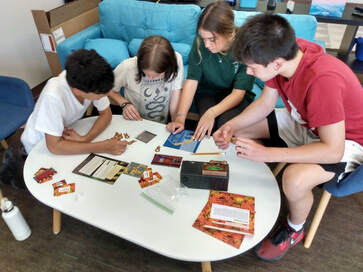
This Session the Adventure Studio will be diving into part one of a 3 session science focused cycle with Biology. This series of three quests will help work learners up to the point of a medical biology quest where learners step into the shoes of Doctors diagnosing various diseases. Each week of the Biology Quest heroes will be exposed to challenges and games concerning a different part of Biology, from the tiniest of organisms to systems that affect our entire planet, and from the dawn of time to the latest scientific breakthroughs.
There will be a special emphasis on the idea of paradigm shift as they examine examples of the process of discovery and how that impacts scientific thought.
In addition, as this session marks the midpoint of the year, we will be dedicating a part of this session to "Rebuild the Tribe." This simply means returning intentionally to the questions and ideas with which we began the year about why we are here and what we are building. Heroes will participate in a series of discussions, challenges and games that offer a process for reviewing and updating key studio systems, examining and improving the studio contract, and strengthening the studio community.
Communication will be something of an assortment this session. Some of the heroes will be completing a Biology Hero Biography, where they will choose a great scientist - whether that be a Paradigm buster, a puzzle maker, or a data gatherer - and will focus their writing around the central question, " What made this person become one of the greatest scientists of all time?" Other heroes may be using this session to dive into a few other communication focused independent projects!
For Civilization heroes will be continue examining the foundations of early America - the Constitution, Bill of Rights, Slavery and exploration and expansion. As always, their work will put them in the shoes of decision makers in history and their learning will center around the important question, "Why do some civilizations rise and others fall?"
Onward!
There will be a special emphasis on the idea of paradigm shift as they examine examples of the process of discovery and how that impacts scientific thought.
In addition, as this session marks the midpoint of the year, we will be dedicating a part of this session to "Rebuild the Tribe." This simply means returning intentionally to the questions and ideas with which we began the year about why we are here and what we are building. Heroes will participate in a series of discussions, challenges and games that offer a process for reviewing and updating key studio systems, examining and improving the studio contract, and strengthening the studio community.
Communication will be something of an assortment this session. Some of the heroes will be completing a Biology Hero Biography, where they will choose a great scientist - whether that be a Paradigm buster, a puzzle maker, or a data gatherer - and will focus their writing around the central question, " What made this person become one of the greatest scientists of all time?" Other heroes may be using this session to dive into a few other communication focused independent projects!
For Civilization heroes will be continue examining the foundations of early America - the Constitution, Bill of Rights, Slavery and exploration and expansion. As always, their work will put them in the shoes of decision makers in history and their learning will center around the important question, "Why do some civilizations rise and others fall?"
Onward!
Rise & Fall of Civilizations
SESSION 3 HERE WE COME!
We are excited to announce our Quests and other focus areas for each of our four mixed-age studios for the upcoming session.
Traditionally, this is our "Civilization" themed session, where learners have the opportunity to explore various historical topics in a very hands on way. You can read more about our learning design here.
Traditionally, this is our "Civilization" themed session, where learners have the opportunity to explore various historical topics in a very hands on way. You can read more about our learning design here.
Quests are real-world projects to master 21st-century skills.
Usually lasting four- to six-weeks, each Quest includes a series of challenges bound by a compelling narrative and is designed to deliver 21st century skills while simultaneously incorporating traditional topics like science, social studies, and history.
Usually lasting four- to six-weeks, each Quest includes a series of challenges bound by a compelling narrative and is designed to deliver 21st century skills while simultaneously incorporating traditional topics like science, social studies, and history.
QUEST
This session the Spark Studio will be exploring the BIOMES OF THE WORLD.🌎 The heroes will get to explore the wonders of the Ocean🐠, Rainforest🦜, and Desert🌵 through hands-on challenges, books, and exploration!
HEROS OF THE WEEK
Each week of a session our sparks are introduced to a new hero from world history using the Ordinary People Change the World book series. This session the learners will meet: Helen Keller, George Washington, and Abraham Lincoln.
CULTURE
On Fridays throughout the session the sparks also explore various cultures around the world. This session they will explore the South Pole, Ireland, and the United Kingdom.
This session the Spark Studio will be exploring the BIOMES OF THE WORLD.🌎 The heroes will get to explore the wonders of the Ocean🐠, Rainforest🦜, and Desert🌵 through hands-on challenges, books, and exploration!
HEROS OF THE WEEK
Each week of a session our sparks are introduced to a new hero from world history using the Ordinary People Change the World book series. This session the learners will meet: Helen Keller, George Washington, and Abraham Lincoln.
CULTURE
On Fridays throughout the session the sparks also explore various cultures around the world. This session they will explore the South Pole, Ireland, and the United Kingdom.
Discovery
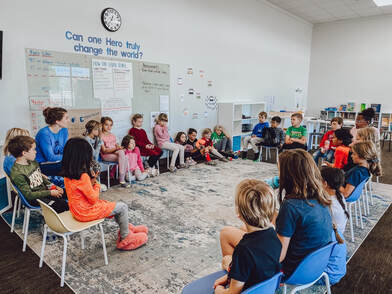
Acton is a journey and there are simply so many layers to the Acton onion that we continue to roll various new pieces out throughout the first half of the year! This session is no different, the Discovery Studio will be experiencing Writer's Workshop challenges for the first time this year (see details below) AND will be launching a new Daily & Weekly SMART goal system!
QUEST | US CITIZENSHIP
This session, the Discovery & Odyssey Studios will immerse themselves in U.S. Citizenship! The heroes will immerse themselves in the history of immigration in the United States, their family trees, and will experience what it’s like to be someone seeking to become a naturalized citizen, all while playing some games and reflecting upon the experience.
CIVILIZATION
This session, the Discovery Studio will take a break from 'The Story of the World' book they have been reading and instead shift to reading stories of Immigrants.
INTRODUCING WRITER'S WORKSHOP!
This session will be the first chance the Discovery Studio has experienced formalized writing challenges. This first session they will simply be journaling each day, taking time to write about their bricks (what's weighing them down) and balloons (what's lifting them up/ what they are excited about). In subsequent sessions they will have a station set up during meaningful works where they will be able to take on various writing challenges from writing and mailing a letter to a hero, to taking on typing challenges, and more!
This session, the Discovery & Odyssey Studios will immerse themselves in U.S. Citizenship! The heroes will immerse themselves in the history of immigration in the United States, their family trees, and will experience what it’s like to be someone seeking to become a naturalized citizen, all while playing some games and reflecting upon the experience.
CIVILIZATION
This session, the Discovery Studio will take a break from 'The Story of the World' book they have been reading and instead shift to reading stories of Immigrants.
INTRODUCING WRITER'S WORKSHOP!
This session will be the first chance the Discovery Studio has experienced formalized writing challenges. This first session they will simply be journaling each day, taking time to write about their bricks (what's weighing them down) and balloons (what's lifting them up/ what they are excited about). In subsequent sessions they will have a station set up during meaningful works where they will be able to take on various writing challenges from writing and mailing a letter to a hero, to taking on typing challenges, and more!
Odyssey
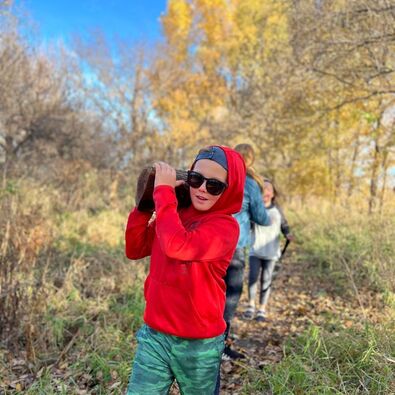
Last session the heroes in the Odyssey Studio voted that they would like to attend Wilderness Wednesdays more often and therefore they will now be joining the fun at Shiloh more often! This issue was raised in townhall, discussed and voted on. Proponents of the move talked about how fun it was and how they really wanted to be outside even more, those in opposition discussed how this meant less time to work towards badges, especially in Core Skills. Ultimately, they all decided this was an investment worth making.
We share this brief insight, because this is Acton at work! Giving them the freedom and space to raise issues, discuss, debate, and solve as they see fit.
QUEST | US CITZENSHIP
As mentioned, the Odyssey Studio will be joining the Discovery Studio for this engaging Civilization themed Quest. The Odyssey heroes will immerse themselves in the history of immigration in the United States and will experience what it’s like to be someone seeking to become a naturalized citizen. Through a series of challenges, they’ll assume the role of an immigrant and prepare for a naturalization test, all while playing some games and reflecting upon the experience.
WRITER'S WORKSHOP | LETTERS OF GRATITUDE
Coming off of Thanksgiving and heading into the holiday season, Session 3 felt like the perfect time to continue practicing gratitude. Heroes will be writing letters to the people, places, and things they are grateful for.
CIVILIZATION
The Odyssey Studio will continue to make decisions as they walk in the shoes of heroes from History using the Story of the World series as their guide. This session they travel to the 17th and 18th centuries and hearing stories from the Mughal Empire of India, the Great Plague in England, the life of the Sun King, and the rise of Prussia.
We share this brief insight, because this is Acton at work! Giving them the freedom and space to raise issues, discuss, debate, and solve as they see fit.
QUEST | US CITZENSHIP
As mentioned, the Odyssey Studio will be joining the Discovery Studio for this engaging Civilization themed Quest. The Odyssey heroes will immerse themselves in the history of immigration in the United States and will experience what it’s like to be someone seeking to become a naturalized citizen. Through a series of challenges, they’ll assume the role of an immigrant and prepare for a naturalization test, all while playing some games and reflecting upon the experience.
WRITER'S WORKSHOP | LETTERS OF GRATITUDE
Coming off of Thanksgiving and heading into the holiday season, Session 3 felt like the perfect time to continue practicing gratitude. Heroes will be writing letters to the people, places, and things they are grateful for.
CIVILIZATION
The Odyssey Studio will continue to make decisions as they walk in the shoes of heroes from History using the Story of the World series as their guide. This session they travel to the 17th and 18th centuries and hearing stories from the Mughal Empire of India, the Great Plague in England, the life of the Sun King, and the rise of Prussia.
Adventure
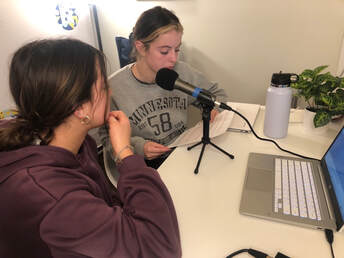
Session 3 Focus (Quest, Communication, Civilization)
Each year, part of the rhythm of learning in the Adventure studio includes a Civilization focused session that will allow us to dive deeply into the roles of decision makers of the past . Thus this year, Session 3 will be built around the American Revolution. Quest, Civilization, and Communication badge work will all be unified around this theme as heroes dig into the central question:
“Should America's Founding Principles be Treasured or Redefined?”
Part of the session will feature a gamified “revolution” experience - more on that when we get to week two, but if you’d like a preview, I’ll refer you back to chapter 5 of Courage to Grow!
Out and About: On Monday of week two of this session, the Adventure Studio has been invited to travel to the KLIN studio to meet with Doug Fitzgerald - author, entrepreneur, and host of “One Shot. One Life.” Doug has also extended an invite for some Acton heroes and families to join him on the air on Dec. 6 from 5-6PM on the KLIN Drive Time Show!
Each year, part of the rhythm of learning in the Adventure studio includes a Civilization focused session that will allow us to dive deeply into the roles of decision makers of the past . Thus this year, Session 3 will be built around the American Revolution. Quest, Civilization, and Communication badge work will all be unified around this theme as heroes dig into the central question:
“Should America's Founding Principles be Treasured or Redefined?”
Part of the session will feature a gamified “revolution” experience - more on that when we get to week two, but if you’d like a preview, I’ll refer you back to chapter 5 of Courage to Grow!
Out and About: On Monday of week two of this session, the Adventure Studio has been invited to travel to the KLIN studio to meet with Doug Fitzgerald - author, entrepreneur, and host of “One Shot. One Life.” Doug has also extended an invite for some Acton heroes and families to join him on the air on Dec. 6 from 5-6PM on the KLIN Drive Time Show!
Projects for the Real World
Quests are real-world projects to master 21st-century skills. Usually lasting four- to six-weeks, each Quest includes a series of challenges bound by a compelling narrative and is designed to deliver 21st century skills while simultaneously incorporating traditional topics like science, social studies, and history.
Ingredients of a Successful Quest
- Exhibition: A great Quest starts with a powerful Exhibition as the goal. For example, in the "World-Changing Speech Quest," learners know on day one that during their Exhibition they will stand on stage for six minutes in front of their family and friends to deliver a speech.
- Real-world skills: Quests focus on real-world skills, rather than memorizing facts for a test. For example, in the "Medical Biology Quest," learners diagnose diseases and interpret MRIs and X-Rays. At the Exhibition, learners test these skills on their families in a simulation.
- Narrative and motivation: Learners play a real-life hero at a critical moment in history, solving a problem about which learners care deeply. For example, in the "Electricity Quest," learners develop patents for new electrical devices in Thomas Edison’s Menlo Park lab.
- Real-world measurement: A Quest should have some way to measure and track outcomes, in a way that mirrors as closely as possible the real world. For example, in the "Bridge Building Quest," learners measure weight supported by the bridge vs. cost to build in order to determine a winner.
- Expert valuation: Gone are the days when professionals visit schools to talk about their jobs. Instead, we invite high performing professionals and experts to come to our campus to provide real-world feedback on the work and projects of our learners. What better way to ensure our learners (and Guides) understand 21st century real-world demands?
- Learner-led: A Guide may play a role setting the stage and facilitating discussion to launch each day and then call for Lessons Learned, but learners are largely on their own to navigate the challenges of the Quest. For example, in the "Detective Chemistry Quest," Guides leave clues for learners to then solve a crime on their own, using forensic science.
When do Quests Happen?
How is progress measured?
- Three times per week, learners dedicate roughly 2 to 2.5 hours.
How is progress measured?
- Points for challenges earned
- Badges for completed Quests
- Exhibitions showcasing finished work
- Feedback from users and external experts
- Portfolios for work they’re especially proud of
Special Thanksto our friends at The Forest School: An Acton Academy for originally posting this content. |
Curriculum is a 4 letter word at Acton, but that doesn't mean we aren't intentional about learning design
I've already spoken at length about how the word Curriculum is a 4 letter word at Acton. And though it may seem trivial, I would argue the difference between Curriculum & Learning Design is just as vast as the difference between Academics & Education.
"Curriculum" stirs up feelings of administration staff, who have never worked a day in a classroom, selecting textbooks from a list of suitors all trying to sell their version of "what children need to know" in this specific subject at this specific age.
For me, it implies something that's being chosen for you and done to you and is in no way learner-driven.
"Learning Design" on the other hand is simply a series of invitations, challenges, and questions designed to peak your curiosity and actively engage you in the learning process.
I also tell every family that tours Acton - "We are NOT an Academically driven school, rather we are a Learner-Driven Community that emphasizes character development and leadership (Learning to Be)."
But just because we don't emphasize Academics doesn't mean we don't see Math, Reading and Writing as foundational skills needed to lead a successful life. We still believe in Learning to Do & Learning to Learn (Education).
That said, we also believe we don't need to artificially push a child along, label them as ahead or behind, or add pressure to learn a specific skill by a specific age.
We believe every child who enters our doors possesses the ability to learn these skills on their own and at their own pace. We desire to see learners establishing a true LOVE of learning, then continuing to take on more and more challenging work overtime.
"Curriculum" stirs up feelings of administration staff, who have never worked a day in a classroom, selecting textbooks from a list of suitors all trying to sell their version of "what children need to know" in this specific subject at this specific age.
For me, it implies something that's being chosen for you and done to you and is in no way learner-driven.
"Learning Design" on the other hand is simply a series of invitations, challenges, and questions designed to peak your curiosity and actively engage you in the learning process.
I also tell every family that tours Acton - "We are NOT an Academically driven school, rather we are a Learner-Driven Community that emphasizes character development and leadership (Learning to Be)."
But just because we don't emphasize Academics doesn't mean we don't see Math, Reading and Writing as foundational skills needed to lead a successful life. We still believe in Learning to Do & Learning to Learn (Education).
That said, we also believe we don't need to artificially push a child along, label them as ahead or behind, or add pressure to learn a specific skill by a specific age.
We believe every child who enters our doors possesses the ability to learn these skills on their own and at their own pace. We desire to see learners establishing a true LOVE of learning, then continuing to take on more and more challenging work overtime.
The idea of focusing on MORE than simply academics can most easily be summarized in three words: Whole Child Development. Yes, Math and English are important pieces of the learning design, but they certainly are NOT our only focus:
Shifting gears slightly, here are some very brief thoughts on the more academically driven pieces of our Learning Design:
Shifting gears slightly, here are some very brief thoughts on the more academically driven pieces of our Learning Design:
- We regularly leverage the network of 300+ Actons and 20,000+ pages of learning design documents for everything from selecting Coreskill programs to building badge plans, from individual launches to Quests and Civilization. This is the beauty of the Acton network - though we have the ability to adapt and change things, we aren't having to create everything from scratch and can lean on experts from around the world!
- Our basic learning design map for any given year (though it varies in scope based on the studio) is:
- Quests (7 Sessions): Quests are real-world projects to master 21st-century skills. Usually lasting four- to six-weeks, each Quest includes a series of challenges bound by a compelling narrative and is designed to deliver 21st century skills while simultaneously incorporating traditional topics like science, social studies, and history.
The annual formula we have adopted from Acton main : (1) Team Building/ Communication Focused Quest, (1) Entrepreneurship/ Psychology Focused Quest, (1) Civilization Focused Quest, (3) Science/ Design Logical Thinking Focused Quests, (1) Art/ Curiosity Focused Quest.- For Example, this year the plan is for the Discovery Studio to complete the following Quests (always subject to change, but still following the formula above):
- Build the Tribe/ Lip Dub (Communication/ Leadership)
- E-Ship Quest (Entrepreneurship 101)
- US Citizenship Quest (History/ Civilization)
- Detective Quest (Science/ Logic)
- Zookeeper Quest (Nature/ Science)
- Community Garden Quest (Science)
- Growing Curiosity Quest
- For Example, this year the plan is for the Discovery Studio to complete the following Quests (always subject to change, but still following the formula above):
- Writer's Workshops/ Communication Challenges (4-5 Sessions): This process varies greatly from studio to studio with our Discovery Studio building this into their morning work rotations and our Adventure Studio working to perfect their craft. These workshops/ challenges range from podcast creation to writing persuasive speeches, from crafting an email to secure an apprenticeship to fiction-based writing.
I must also note that they are learning to write/ communicate in many other ways too, it just doesn't look the same as it did for you and I in school. They write townhall slips and draft meeting agendas, write 360 peer reviews, write reflections on Quest Challenges, and most importantly learn to formulate thoughts and craft arguments multiple times a day during Socratic launches.
A great example of some non-traditional writing opportunities that the heroes have just this week are:- Writing a thank you note to a veteran on Veteran's Day
- Just yesterday, I posted a request to all studios to start having 1-2 representatives from each studio handle weekly posts in the Acton app, updating parents on studio life, launches, etc whatever they feel is important for parents to know.
- Civilization Badges (5 Sessions): For Discovery & Odyssey this is utilizing the Story of the World books, while the Adventure Studio focuses on moral dilemmas and hard choices throughout world history.
This is Acton's version of World History, Geography, Sociology, etc.
Putting heroes in the shoes of citizens and heroes throughout world history and asking 'why'. Why do some societies rise, while others fall?
We also complete one Civilization based Quest each year too (Acton Athens, Colonial Acton, US Citizenship, Cartography, etc). - Core Skills (Daily 90-120 minutes): These are self-paced gamified programs designed to make the learning fun & engaging. The bulk of a learner's morning each day is spent building on these foundational skills as well as meaningful works & montessori works in the Spark & Discovery Studios.
- Three facts, I often leave out with these programs and our mastery based system:
- We are asking heroes to MASTER each concept/ level. Not simply complete the work. This means we are asking FAR more of the learners than a traditional setting that pushes students along at an artificial pace set by the teacher, not the student. In short, we are asking learners to get an A+ on all their Math & English lessons. For some this means it will take them longer to move to the next concept, but you can be assured that the are building a STRONG foundation for what's to come next.
- The software programs we use go far more in-depth than a traditional textbook and worksheet method. Khan Academy for example (one of our Adventure Studio options for Math) covers 3x the material that a traditional Math curriculum would cover, because a traditional program simply doesn't have the time to go that in-depth and must continue to move on to cover all the material.
- As a fellow Acton parent, one thing I always come back to is a study that was done true self-paced learning in Math. The study found - if we waited until learners were truly ready & eager to learn math concepts they went from 2+2=4 to MASTERING Algebra in 75 hours!! In a traditional setting this takes 7-8 years of work!
- Three facts, I often leave out with these programs and our mastery based system:
My hope is this blog post gives you a glimpse behind the curtain of our learning design. (Even my wife, Heidi, said she learned something new in proofing this blog!). We are always assessing and adjusting as we continue to learn more from everyone in the network.
| The Adventure Studio will continue to build excellence into everything they do as the culture continues to build each year. The goal of the Discovery Studio will be to build FUN & meaningful work into more and more aspects of the learning design, while the Odyssey studio works to be a bridge between those two worlds. The Spark Studio simply focuses on learning through Montessori & play. It's always a work in progress, but that's the end goal. |
This constant state of assessing and learning is also why we changed math software this year. Dreambox wasn't as fun & engaging, nor did it provide the immediate feedback loops for self-correction like Beast Academy. Plus Beast is actually far more comprehensive in nature too with built in instructional videos for when learners get stuck. Beyond that, we are able to lean on the Acton network here too, Beast came highly recommended from the network/ learners at other Actons which made the decision easier for us.
We didn't even have the space to touch on things like independent reading, handwriting, typing, foreign language, PE, Servant leadership badges, our outdoor program, or really any of the Learning to Be & Learning to Learn concepts in the "Whole Child Development" graphic above.
All of which play a VITAL role in the overall learning design and badge plans of each of our learners.
My questions for you are,
- Are you willing to trust your child with their learning journey? Trusting they can & will learn these basic foundational skills on their way to discovering their world changing passions...
If the answer is yes, then ask yourself: - Is Acton's Learner-Driven Community the right setting for that journey to unfold for your family?
No school is utopia, Acton certainly isn't either. But it is a place that affords EVERY learner that sets foot inside our doors the opportunity to learn to learn, learn to do, and learn to be. All on their own timeline. It's messy. It's hard. It's certainly not the same linear, well mapped out path that comes when curriculum is mapped out for students day by day, quarter by quarter, age grouping by age grouping. No the journey at Acton is FAR richer, and FAR more empowering for a hero on a journey of becoming a life long learner.
If the answer to both of these questions are yes, then ask yourself: - Given the time, space, and resources, Do I believe there is anything my child can't learn on their own that they need for their journey?
If the answer is yes, I would love to hear your reasoning so we can dig into this together, before taking on the challenge.
If the answer to the final question is no, then I want to leave you with a challenge to continue to equip you for the Acton parenting journey:
My challenge for you, should you desire to dig deeper on our Learner-Driven Learning Design is to complete one or more of the Learning Design Family Badges. There are badges for parents to learn more about: Writing at Acton, Quests, Excellence, Mastery, and more!
Onward!
zh
Overcoming Early Failures & Challenges
| The following was written by Acton Mom, Tori Anderson on their families journey at Acton Lincoln. There is no utopia and growth is uncomfortable. Acton is designed to place learners AND parents outside their comfort zones on a regular basis. The first thing I heard was 'we believe all kids are geniuses and will change the world' — I cried. That was something we believed about him but just didn’t know how to cultivate in the school setting we had chosen for him. |
Acton Lincoln came to us at a time where our oldest was in the public school after trying private schools in Lincoln and everything in between.
We were midway into 2020 when online learning was not going well and we were all frustrated at home. We watched a video that solidified everything my husband and I believed and wished for our children…that they have the ability to change the world.
Acton Lincoln came to us at a time where our oldest was in the public school after trying private schools in Lincoln and everything in between.
We were midway into 2020 when online learning was not going well and we were all frustrated at home. We watched a video that solidified everything my husband and I believed and wished for our children…that they have the ability to change the world.
Our start to Acton was rocky and there were so many times we all wanted to quit. But we knew that there was a reason we found ourselves here. We are so thankful for Acton and all it continues to teach us as a family. We are all life-long learners and we can’t wait to see where our family continues to grow.
We finished our year in public school and made the transition hoping for the best but, ultimately, not knowing what to expect. Elijah, our oldest, 8 at the time, did not thrive. He struggled. We watched him unlearn a lot of the things he excelled at in public school as he is very intelligent but only knew how to use that skill to ace tests and finish work early to have “free time.”
At Acton, it isn’t about the testing, it is about the personal development, a skill that we longed for our children to develop but didn’t have the tools to encourage it by ourselves. Acton is that tool for us. As the year progressed, Elijah struggled more. He struggled having his voice heard. He struggled with his peers. He struggled finding his place in the studio. He struggled with his emotions as he learned how to manage those emotions as he became more frustrated along the way. Acton is hard. But they are allowing heroes to fail, early, cheaply, often, in order to learn hard lessons now when the stakes are low.
But he also excelled. He excelled at his problem solving skills. His adventurous spirit came out of him–our once fearful child is now climbing trees and exploring the wilderness and nature like never before. He has learned how to share his feelings in a healthy way. He has learned time management skills–something we are still working on as adults. He is learning how to be a better leader, as his sister has now joined him at Acton in the Spark Studio, and as he has the chance to be a part of his studio council.
But he also excelled. He excelled at his problem solving skills. His adventurous spirit came out of him–our once fearful child is now climbing trees and exploring the wilderness and nature like never before. He has learned how to share his feelings in a healthy way. He has learned time management skills–something we are still working on as adults. He is learning how to be a better leader, as his sister has now joined him at Acton in the Spark Studio, and as he has the chance to be a part of his studio council.
| Our start to Acton was rocky and there were so many times we all wanted to quit. But we knew that there was a reason we found ourselves here. Elijah, and now Emme, are learning the hard lessons of life now. But they aren’t learning them alone. They have peers they can lean on, guides they trust, and us, their parents, who love and support them in the process along the way. We are so thankful for Acton and all it continues to teach us as a family. We are all life-long learners and we can’t wait to see where our family continues to grow. |
What do we really mean by
"guides Don't Answer Questions"
Deep Dives - a new series where one a session our head guide, Mr. Luke, will dive into a different system or process at Acton to shed light on the system and revisit the 'why' behind it.
If you asked any Hero at Acton what the difference between a teacher and a guide is, I can almost guarantee that they would begin with, “Well, guides don’t answer questions.”
This is one of the first things that many people learn about Acton and it is one of the critical ways in which Acton is different. The irony however, is that it is also one of the most misunderstood aspects of Acton’s learning design, including the heroes themselves who can mistake "guides don't answer questions" to mean "guides aren't here to help." This couldn't be further from the truth.
I speak from experience on this because this is something that we as a staff at Acton have spent the better part of a year now wrestling with and trying to fully understand. My hope with this post is to share some of what we have come to understand about guides not answering questions - especially why we hold such a strict standard and what this really looks like in practice.
This is one of the first things that many people learn about Acton and it is one of the critical ways in which Acton is different. The irony however, is that it is also one of the most misunderstood aspects of Acton’s learning design, including the heroes themselves who can mistake "guides don't answer questions" to mean "guides aren't here to help." This couldn't be further from the truth.
I speak from experience on this because this is something that we as a staff at Acton have spent the better part of a year now wrestling with and trying to fully understand. My hope with this post is to share some of what we have come to understand about guides not answering questions - especially why we hold such a strict standard and what this really looks like in practice.
"It’s true that guides DON’T answer questions, yes, but the flip side of that is that we DO - commit to remaining Socratic 100% of the time. Being Socratic means more than just avoiding questions. It means that the way we respond to questions is by offering choices, tools, or additional questions with the purpose of igniting curiosity and equipping learners to solve their own problems."
This is the goal, but like most things at Acton, the day to day is sometimes messy. So if our attempts to be Socratic come off as a little snarky or simply frustrating, I think part of that can be attributed to the fact that its a new and unfamiliar thing and part of it comes down to the fact that as guides, we are all still very much in the process of honing this really difficult skill. Don’t get me wrong here - I’m not trying to make excuses - I’m saying we know this is a craft that takes years to hone, and we are always working to better our craft.
But I can also assure you our goal really is exactly as I’ve described above and we are committed to working really hard at developing these skills so we can build a true learner-driven community where every learner is trusted to make good decisions, develop resourcefulness and initiative, and become a lifelong learner.
The question has been raised by owners, parents, guides, and heroes alike across the network, does answering questions really mean NEVER answering questions or does it simply apply to 'learning questions'? Surely it's okay for little things like, “How are you doing today?” or “What’s that password again?”
Two thoughts on this:
I’ve talked to a hundreds of people about Acton over the past few years, and when I try to explain how it works one of the most common responses I get is something along the lines of, “This sounds great, but the kids can’t really be in charge of all that? It would just be chaos!”
It’s hard for people to believe that adults would really step back out and trust the heroes with so much freedom and so much responsibility.
The reality is the only way we’ll ever be successful at building a strong learner driven community is if the learners (and parents/families) can trust us to truly remain Socratic and not overstep the bounds of the commitments we have made. Every time we don’t it erodes that trust and impedes the process. It creates a slippery slope with more and more potential to overstep. (Think white lies)
The most famous saying of Lord Acton, the Victorian Era politician and writer who is the namesake of our school and network goes like this, “Power tends to corrupt and absolute power corrupts absolutely.”
So another part of the reason for such a stark rule (guides are Socratic 100% of the time) is that the only way for the guides at Acton to avoid the slippery step of overstepping our authority is to stay well back from the edge. In this sense, the practice of guides not ever answering questions is a truly critical component of the life-blood of the culture we are building.
One of the biggest roadblocks we’ve had to work through on this as a staff is the sense that this all sounds great in theory, but in practice, it's sometimes really hard to do without coming off as a jerk. So last year we made exceptions. But as we continued to wrestle with this, we’ve found that it really is possible to remain Socratic 100% of the time while also being warm and encouraging and building connections in the community!
But I can also assure you our goal really is exactly as I’ve described above and we are committed to working really hard at developing these skills so we can build a true learner-driven community where every learner is trusted to make good decisions, develop resourcefulness and initiative, and become a lifelong learner.
The question has been raised by owners, parents, guides, and heroes alike across the network, does answering questions really mean NEVER answering questions or does it simply apply to 'learning questions'? Surely it's okay for little things like, “How are you doing today?” or “What’s that password again?”
Two thoughts on this:
- Exceptions like this would make my life A LOT easier!
- But what’s the cost? To me, it's like telling white lies. They may seem better than the truth in the moment, but what's the cost in the long run?
I’ve talked to a hundreds of people about Acton over the past few years, and when I try to explain how it works one of the most common responses I get is something along the lines of, “This sounds great, but the kids can’t really be in charge of all that? It would just be chaos!”
It’s hard for people to believe that adults would really step back out and trust the heroes with so much freedom and so much responsibility.
The reality is the only way we’ll ever be successful at building a strong learner driven community is if the learners (and parents/families) can trust us to truly remain Socratic and not overstep the bounds of the commitments we have made. Every time we don’t it erodes that trust and impedes the process. It creates a slippery slope with more and more potential to overstep. (Think white lies)
The most famous saying of Lord Acton, the Victorian Era politician and writer who is the namesake of our school and network goes like this, “Power tends to corrupt and absolute power corrupts absolutely.”
So another part of the reason for such a stark rule (guides are Socratic 100% of the time) is that the only way for the guides at Acton to avoid the slippery step of overstepping our authority is to stay well back from the edge. In this sense, the practice of guides not ever answering questions is a truly critical component of the life-blood of the culture we are building.
One of the biggest roadblocks we’ve had to work through on this as a staff is the sense that this all sounds great in theory, but in practice, it's sometimes really hard to do without coming off as a jerk. So last year we made exceptions. But as we continued to wrestle with this, we’ve found that it really is possible to remain Socratic 100% of the time while also being warm and encouraging and building connections in the community!
"...it really is possible to remain Socratic 100% of the time while also being warm and encouraging and building connections in the community."
To understand what I mean, I’d like to invite you to step into my shoes for a moment and imagine this: It’s about 8:15 AM and you’re standing at the door greeting a steady stream of learners as they get dropped off at school to start a day filled with important work. Lots of smiling faces. Energy, life, excitement. It’s a great way to start the day.
But inevitably, this complex moral dilemma plays out: A smiling hero shakes your hand and says, “Good morning, Mr. Luke, how are you today?” I get that for most people, this isn’t exactly a crisis, but as a guide who signed a contract explicitly stating you won’t answer questions, this situation poses a problem. It seems like you have a couple of options:
- Just answer the question. Sure, you made a promise, but it’s just a little one. No big deal right? Surely, they don’t really mean that guides don’t ever answer any questions…
- Refuse to answer. Take their warm friendly greeting and throw it back in their face. Guides don’t answer questions. Period.
- Give an awkward, sort of snarky sounding non-answer like, “How do you think I am this morning?”
What would you do in my shoes?
If I’m completely honest here, I’ve probably done versions of all three of these at some point. All might seem to have their merits, but if none seem terribly satisfying, that's actually good - because in reality none of them are the response of a true Socratic guide.
It’s true that guides DON’T answer questions, yes, but the flip side of that is that we DO - commit to remaining Socratic 100% of the time. Being Socratic means more than just avoiding questions. It means that the way we respond to questions is by offering choices, tools, or additional questions with the purpose of igniting curiosity and equipping learners to solve their own problems.
Here’s something really important that needs to be clear: We actually want learners at Acton to ask lots of questions. Research shows that children around the age of 5 ask an average of 100 questions per day. And then they start school and that number simply falls off a cliff until about age 11 where many children are essentially asking no questions at all.
So at least a part of our goal in remaining Socratic is to honor and encourage children’s curiosity. Our intent is to communicate the idea that a question asked by a learner is an awesome thing and that one question should lead to more questions. We want to trust and equip them to go out and search for the answer and hopefully uncover even more interesting and exciting questions along the way.
We’ve found that when we simply answer questions, we are robbing heroes of incredibly valuable opportunities to follow their own curiosity, make their own decisions (and learn from the consequences), or draw others in and make important connections. We want them to ask questions, but in the process to gain the confidence to search for answers themselves.
What Makes Learning Happen | Laura Sandefer on the Socractic Method
Pay special attention from 3:49 - 11:13
To show you what I mean here are three different examples of how a Socratic guide might respond to different sorts of questions:
Learning Questions: “Mr. Luke, I’ve been working on this Math problem for like 20 minutes and I can’t figure it out.”
- Not Very Socratic Response: Well, have you done 3B4G?
- Socratic Response: Wow, It sounds like you’ve been working at this for a long time. I’d call that some serious grit. Tell me a little bit of what you have done so far that hasn’t worked?
- Would it be more helpful to take a break and come back to math in 15 minutes OR go back now and read through the instructions and problem slowly and carefully one more time?
- Do you think it would be more helpful to review the video and hints in the practice section or do a Google search for dividing with complex fractions?”
- I know that Angie just finished that unit and Fred is on the same one - would you like to check in with one of them to see if they have any insights?
Process/Information Questions: “Mr. Luke, what time is PE today?”
- Not Very Socratic Response: Guides don’t answer questions. Figure it out yourself.
- Socratic Response: Great question - That’s awesome that you’re planning ahead and trying to stay on time. But as a Socratic guide, I’m not going to answer that question because I trust you to find your own answer. Would you like to check the schedule on the wall or ask a fellow traveler in your studio?
Personal Questions: “Mr. Luke, how are you today?”
- Not Very Socratic Responses: See the three options given at that start of this post
- Socratic Response: Thanks so much for asking! Your curiosity about me shows a deep kindness that I admire. But you can trust me as a Socratic guide which means I care about you enough to not answer even little questions. I’d really love to hear about how your day is going so far OR if you’d rather, you could head out back to the playground to find somebody who looks like they really need someone to ask how they are doing.
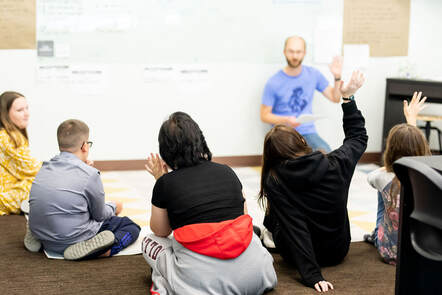
And perhaps a final note - The concern was brought to us recently by an AAL parent that guides not answering personal questions builds walls between heroes and guides and makes us distant or unapproachable. If you’ve thought this as well - you’re not alone. It’s something that has been brought up and discussed across the world-wide Acton network. But our heartfelt belief is that those bonds can be built without violating the promise to not answer questions. When a hero asks a personal question:
We also have other ways of sharing about ourselves - mostly in sharing testimony and stories in launches - and in reserving it to these special times it makes these revelations all the more valuable and meaningful. There are many other small ways that we as guides can build warm, meaningful relationships with heroes - greeting heroes by name or learning and remembering details about their lives and families, for example, while still remaining completely Socratic.
Everything we do at Acton is built upon the central belief that every person who walks through our doors is a genius on a hero's journey to find a calling and change the world. Having truly Socratic Guides instead of teachers is a critical part of the recipe for making learner driven education work. We are so grateful to have such an awesome group of learners and families that are willing to both dig into this hard and important part of Acton and also to challenge us as a staff to grow in our own understanding of how and why we guide Socratically! Onward!
- We can honor and encourage thoughtful questions (“Thanks so much for asking, it really shows how much you care”)
- We can use it as an opportunity to build trust, a critical foundation of any relationship (“I made a promise to remain Socratic and you can trust me not to answer this questions”)
- We can use it to foster a deeper connection (“I’d really love to hear about your weekend” …followed by more probing questions, and when the window presents itself still share about ourselves)
- We can turn them back to the community at large (“I’d like to challenge you to go ask three heroes you haven’t talked to in a while the same question”)
We also have other ways of sharing about ourselves - mostly in sharing testimony and stories in launches - and in reserving it to these special times it makes these revelations all the more valuable and meaningful. There are many other small ways that we as guides can build warm, meaningful relationships with heroes - greeting heroes by name or learning and remembering details about their lives and families, for example, while still remaining completely Socratic.
Everything we do at Acton is built upon the central belief that every person who walks through our doors is a genius on a hero's journey to find a calling and change the world. Having truly Socratic Guides instead of teachers is a critical part of the recipe for making learner driven education work. We are so grateful to have such an awesome group of learners and families that are willing to both dig into this hard and important part of Acton and also to challenge us as a staff to grow in our own understanding of how and why we guide Socratically! Onward!
We have lift off!
We kicked off our 2022-23 school year on Monday. This year our learners will be exploring the overarching question "Can one hero truly change the world?" They will begin with session one, by working hard on team building, communication and leadership development. This will look slightly different in each studio, but the goal is the same: Build the Tribe and create a strong foundation for the year, heroes will be drafting, trialing, and finally writing their own studio contract. Along with establishing their own “laws” for studio life.
Take a glimpse to each studio's first session culminating with their public exhibition in October!
Take a glimpse to each studio's first session culminating with their public exhibition in October!
Sparks
Build the Tribe, All About Acton
For the Spark Studio, their build the tribe quest will be broken down into focus areas/ goals for each week of the session. Here is the breakdown of each week:
- To build a tribe where learners feel known and connected (teamwork)
- To introduce systems of the studio
- To establish the guardrails and routines that allow learners to work independently
- To introduce Montessori works to the learners
- To explore emotions and how to appropriately regulate them
- To grow in understanding of the hero's journey and the question of the year
Discovery
Quest | Build the Tribe, Lip Dub + Cardboard City
The Discovery studio will be keeping with the theme of build the tribe. They will accomplish this through group activities - like filming a Lip Dub and building a Cardboard City - games, diving into the various Acton systems, reflecting and sharing during launches, and settling into their studio routine!
Core Skills and Meaningful Works will be rolled out over the course of this session as well.
Core Skills and Meaningful Works will be rolled out over the course of this session as well.
Odyssey
Quest | Build the Tribe, Lip Dub + Squad Olympics
Along with establishing their own “laws” for studio life, Odyssey heroes will participate in the 2022 Acton Lip Dub Competition. The Odyssey Studio will be choosing a song and then planning, choreographing, filming, and finally submitting a Lip-Dub video! For the second half of the session, the Odyssey Studio will be hosting the 2022 Squad Olympics! Heroes will compete with their squads in events that will challenge their physical, mental, and creative skills. Throughout the entire session heroes will be diving into the Hero’s Journey and will be keeping Hero Journals and designing Hero Boards that answer the questions: “What makes a hero?“, “Who are my heroes?“, “What gifts do I have?“, and “Where/How do I find my flow?"
Adventure
Quest: Build the Tribe - Make the Escape
Session 1 in the Adventure Studio is all about bringing together a diverse group of unique individuals to create a world class community that will support each member on a hero's journey to find a calling and change the world. What better way to do that than with a real world, big picture challenge to create something awesome, that will require courage, collaboration, grit, and will also be a lot of fun? Thus this session, the heroes in the Adventure studio will be challenged with designing, building, marketing, and running a pop-up escape room in their studio. Over the course of the first few weeks, the heroes will even have the opportunity to earn the ability (and some awesome tools) to open their escape room to the public and earn real money for their studio. Along the way heroes can expect plenty of traditional team building activities and discussions and work geared towards creating and shaping studio systems to support individual growth and heroic culture.
Communication (Writing) - Hero Essay
This first session's Communication Badge will feature a fairly traditional essay writing that is designed to invite hero's to explore and communicate their own hero's journey while also diving deeply into the Acton approach to developing powerful and effective writers. Heroes will dive into topics such as their gifts and passions, core values, hopes, dreams, and fears as they craft, revise, and publish an essay answering will help them to deeply consider the critical question of "Who am I and where am I going?"
Session 1 in the Adventure Studio is all about bringing together a diverse group of unique individuals to create a world class community that will support each member on a hero's journey to find a calling and change the world. What better way to do that than with a real world, big picture challenge to create something awesome, that will require courage, collaboration, grit, and will also be a lot of fun? Thus this session, the heroes in the Adventure studio will be challenged with designing, building, marketing, and running a pop-up escape room in their studio. Over the course of the first few weeks, the heroes will even have the opportunity to earn the ability (and some awesome tools) to open their escape room to the public and earn real money for their studio. Along the way heroes can expect plenty of traditional team building activities and discussions and work geared towards creating and shaping studio systems to support individual growth and heroic culture.
Communication (Writing) - Hero Essay
This first session's Communication Badge will feature a fairly traditional essay writing that is designed to invite hero's to explore and communicate their own hero's journey while also diving deeply into the Acton approach to developing powerful and effective writers. Heroes will dive into topics such as their gifts and passions, core values, hopes, dreams, and fears as they craft, revise, and publish an essay answering will help them to deeply consider the critical question of "Who am I and where am I going?"
Heidi’s Top-7 Acton Blogs
Summertime- a great time for fun, quick, inspirational reads. When asked to compile my favorite blog posts, I was challenged to keep the list short…my goal was five, I stopped myself at seven.
The Acton Academy network is FULL of inspiration, of testimony, of stories- all from like-minded people who have chosen to be different, those who have chosen Acton. I imagine you will relate to many of these posts just as I have. It’s powerful to be reminded that we are not on this journey alone, that there are literally thousands of families across the globe choosing the same path.
I’ve also included both posts written about our family and our “why” because they are the foundation of Acton Academy Lincoln. While we have learned and grown IMMENSELY since these first words were written, our “why” has remained the same and I will never tire of being reminded why we are here.
The Acton Academy network is FULL of inspiration, of testimony, of stories- all from like-minded people who have chosen to be different, those who have chosen Acton. I imagine you will relate to many of these posts just as I have. It’s powerful to be reminded that we are not on this journey alone, that there are literally thousands of families across the globe choosing the same path.
I’ve also included both posts written about our family and our “why” because they are the foundation of Acton Academy Lincoln. While we have learned and grown IMMENSELY since these first words were written, our “why” has remained the same and I will never tire of being reminded why we are here.
- Call Us Crazy, We're Starting a School!
- Building a Fiercely Independent School in Lincoln
- Virtual School Helps Mom Realize Something HAD to Change
- Why I Left Acton, A Mother's Story
- An Evening in the Life of an Acton Parent
- Lost Happiness, A Story From the Studio
- Three Odd Things to Fall-in-Love With This Summer
| Happy reading, happy summer. Heidi P.S - If you're not already follow Laura Sandefer's Blog on Being an Acton Parent, you SHOULD be! |
The Final Session of the Year is here!
And just like that we have arrived at the final session of our first full year!
Quests are real-world projects to master 21st-century skills.
Usually lasting four- to six-weeks, each Quest includes a series of challenges bound by a compelling narrative and is designed to deliver 21st century skills while simultaneously incorporating traditional topics like science, social studies, and history.
If you'd like to look back at previous sessions quests you can do so here, but this year our learners have explored the following areas through their Quest time:
Spark Studio
Spark Studio
- Servant Leadership
- Holidays & Cultures Around the World
- Space Explorers (Outer Space & Space Travel)
- Healthy Living
- Survivor Quest
- Architecture Quest
- Podcast Creation
- Art Quest
- Mechanical Engineering (Arcade Game Design/ Build)
- Survivor Quest
- World Traveler Quest
- Edison's Lab (Intro to Science at Acton)
- Physics Quest
- Electrical Engineering (Build a Model City)
- Survivor Quest
~Session 7 Quests~
Spark Studio
Growing Curiosity - This will be a learner-led quest in which the heroes voted on various topics they were interested in and will get the chance to dive deeper into them each week of this session.
The heroes will be provided with 2-3 options of challenges each week that they will be able to complete independently with the materials provided to them.
Biomes: "Create your own ecosystem"
- Week #1: Exploring Electricity
- Week #2: Exploring Color
- Week #3: Exploring Farming
- Week #4: Exploring Trees
Biomes: "Create your own ecosystem"
- Heroes will be provided with various craft supplies and get to design their own ecosystem from the rainforest, desert, or ocean biomes, all of which were ecosystems they learned about earlier this year.
Discovery StudioQuest: World Traveling! We will "fly" to each of the 7 continents of the world, where the heroes will have the freedom to explore individual countries' cartography/ geography, culture, and language. After covering the 7 continents, heroes will choose one country to fully immerse themselves in for a more in-depth study. |
Writer's Workshop: For the Love of Writing Around the World! This Writer's Workshop is all about growth in writing - both growth in skills and in the love of writing. Each hero will complete multiple pieces of writing, but they get to choose a plan in their challenge zone to reach that goal!
They have a variety of prompts all based on the continents and world traveling - with the emphasis on exploration, creativity, and fostering still the love of writing.
They have a variety of prompts all based on the continents and world traveling - with the emphasis on exploration, creativity, and fostering still the love of writing.
Adventure Studio

Quest - Art and Creativity
Are artists discovered or created? What is art? Is art valuable? Your job in this quest is to answer these questions through deliberate practice of art, and careful studying of artistic heroes and their works.
Goals: Study the foundations of drawing and technique, make an educated decision about a specialty or niche to study further and make a deliberate practice of as you work towards a public showcase and gallery art sale of your works.
Exhibition: Public Art Showcase (with visitors looking to purchase art under a randomly assigned persona and budget).
Are artists discovered or created? What is art? Is art valuable? Your job in this quest is to answer these questions through deliberate practice of art, and careful studying of artistic heroes and their works.
Goals: Study the foundations of drawing and technique, make an educated decision about a specialty or niche to study further and make a deliberate practice of as you work towards a public showcase and gallery art sale of your works.
Exhibition: Public Art Showcase (with visitors looking to purchase art under a randomly assigned persona and budget).
Genre - Short Essay and Creative Writing
The Acton approach to building great writers is to write a lot and to utilize a powerful system of peer review, critique, and revision. This session's genre is designed to both inspire and equip the heroes as writers by offering them the opportunity to write a number of short pieces on topics they choose and then to select their best work to take through a process of critique, revision, and publishing.
The Acton approach to building great writers is to write a lot and to utilize a powerful system of peer review, critique, and revision. This session's genre is designed to both inspire and equip the heroes as writers by offering them the opportunity to write a number of short pieces on topics they choose and then to select their best work to take through a process of critique, revision, and publishing.
Parents Reflect on their Journey to Acton:
"We can't think of a better legacy than this."
We had high expectations for Acton Academy coming in, and Acton has exceeded them.
Our journey to Acton is probably like many others. We felt there was more to education than what we'd seen with traditional schooling. And that's not a knock on the teachers, only the current system they work in, which in our view is suboptimal. Reading books like Nurture Shock and The Talent Code and listening to TED Talks like Sir Ken Robinson's opened our eyes to a new way of thinking and inspired use to explore alternative education options in Lincoln, Nebraska. We questioned why today's approach to traditional schooling is essentially the same as decades ago.
A series of events then unfolded that led us to Acton Academy Lincoln. First, our daughter, who is very much an outside-the-box thinker and someone who is always coming up with new ideas, was being graded on her handwriting in 1st grade. What wasn't on the checklist scorecard was creativity, where she thrives. Why is that? Doctors toil for years after college, working long hours to perfect their craft, and we consider them successful in life. You know what else they're known for...having illegible handwriting. So why the disconnect in our school system? Why not emphasize usable skills in today's world--creativity, collaboration, communication, and critical thinking--instead of procedural rigamarole? Our daughter would come home from traditional school exhausted, no doubt because they forced her to learn in a manner that didn't suit her best. We can only imagine how many other kids are in her shoes.
During the fall of 2020 through the spring of 2021, we homeschooled our daughter. Our daughter thrived under this less rigid education model. She had the autonomy to study what she wanted when she wanted. To spend more time on something that interested her and less time on what didn't while still getting the work done. The idea that a one-size-fits-all approach works for school doesn't make much sense. The home school experiment was not a long-term solution, so thankfully, we learned about Acton during the tail end of our daughter's second-grade year.
We had high expectations for Acton Academy coming in, and Acton has exceeded them. We love this school, its mission, philosophy, and how it encourages kids to be kids—Forest Fridays, learning about podcasts and outdoor survival, engineering, etc. We love the mixed-age studios and how everyone works together and encourages each other. Focusing on critical thinking skills, collaborating with your peers, communication, and brainstorming creative ways to solve problems are vital skills for today's world.
| Not to mention, we love the entrepreneurial focus of Acton and how they encourage young minds to consider the possibilities and challenge the status quo. A person can read about starting a business or running a business until they're blue in the face, but nothing replaces doing those things. Firsthand experience is essential to growth; it's where the mistakes are made and thus where the lessons are learned. It's much safer to stay on the sidelines and criticize others doing the work, but the actual rewards are in the doing. At Acton, kids learn to be, learn to do, and learn to learn. Acton is creating lifelong learners and kids who have a growth mindset. We can't think of a better legacy than this. |
- Jon & Audrey Sevenker
Acton Lincoln Parents

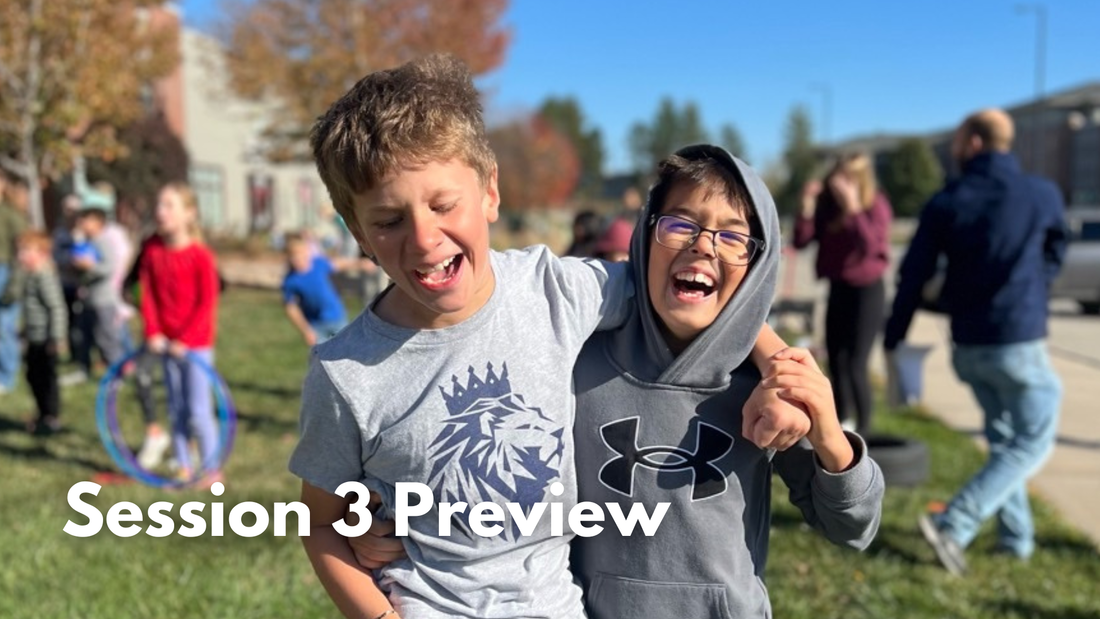
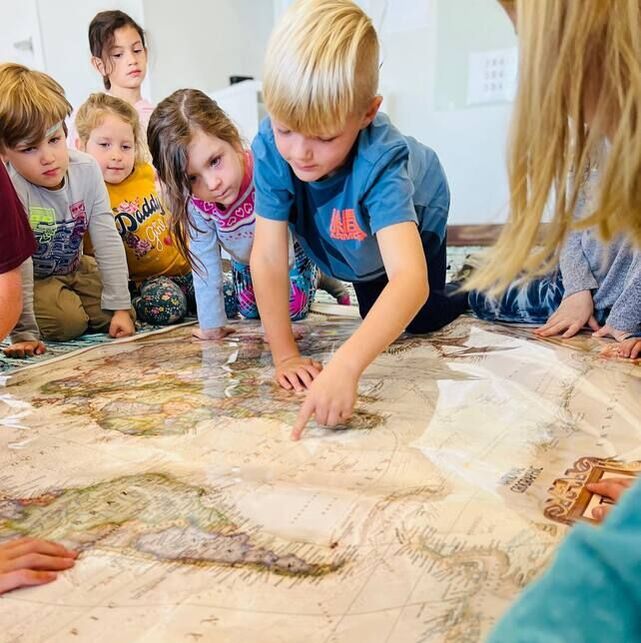
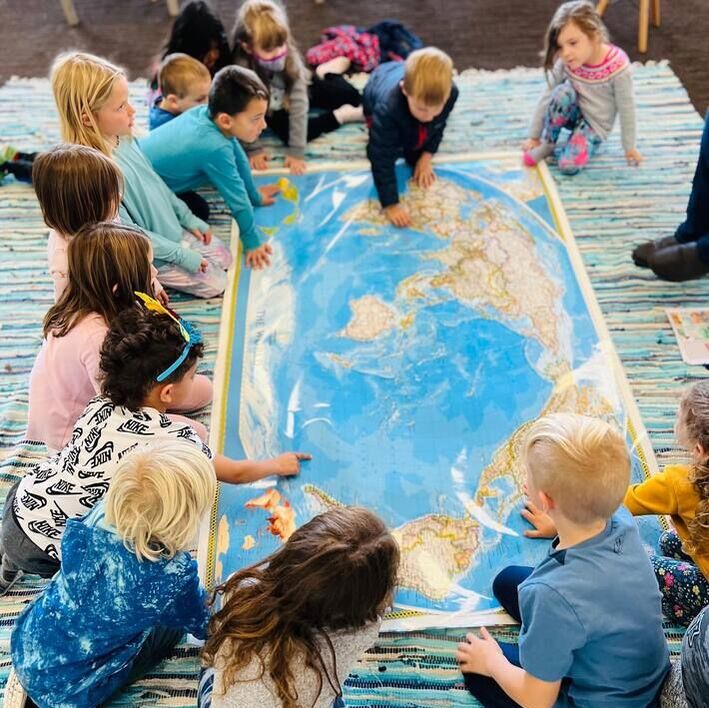
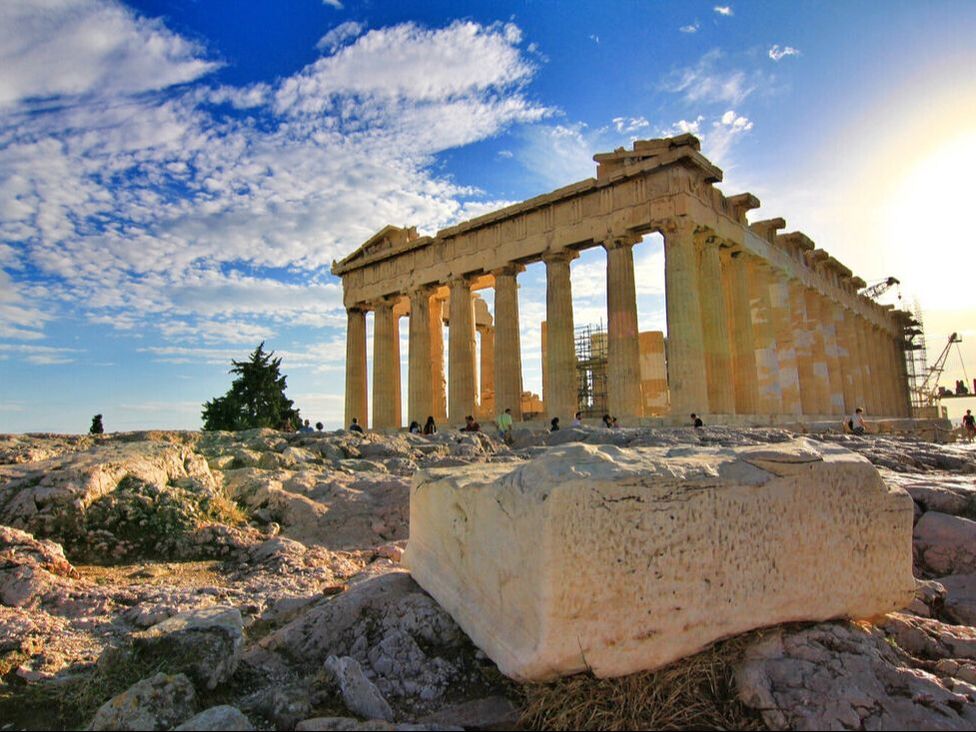
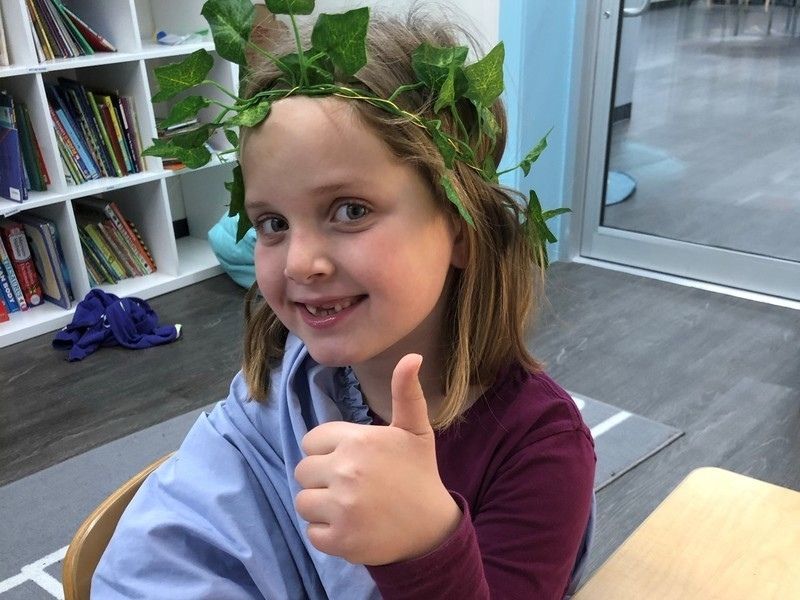
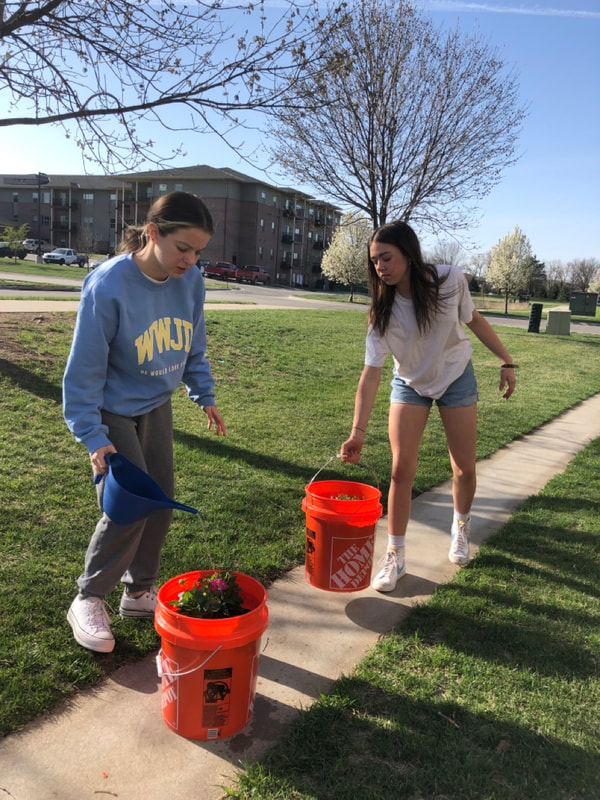
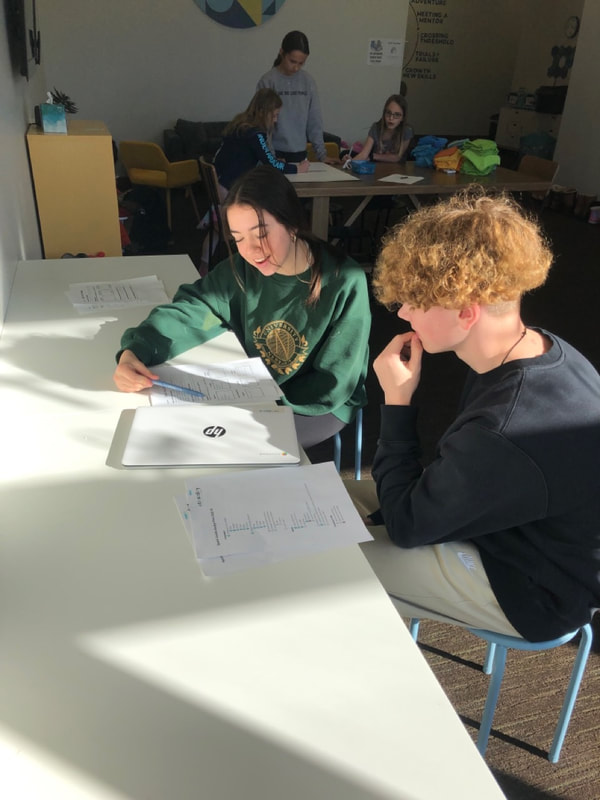
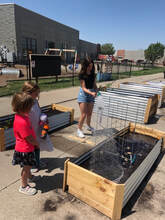
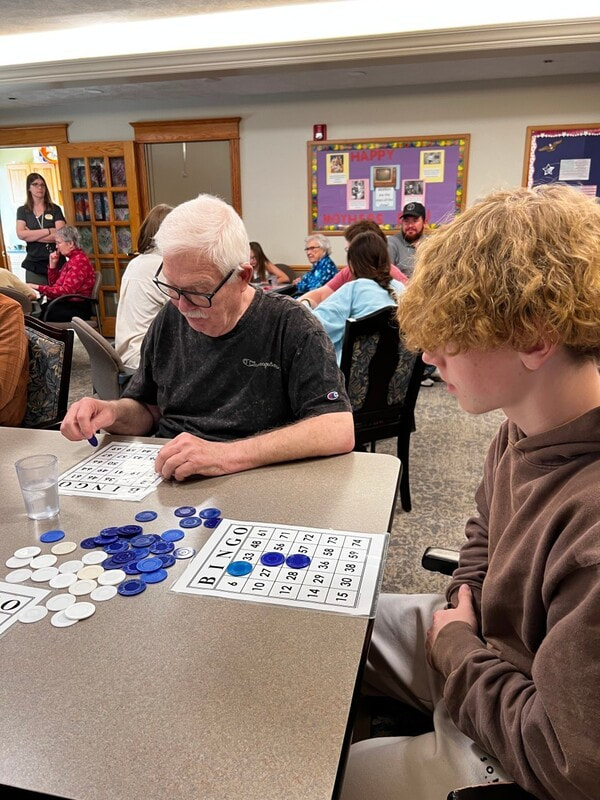
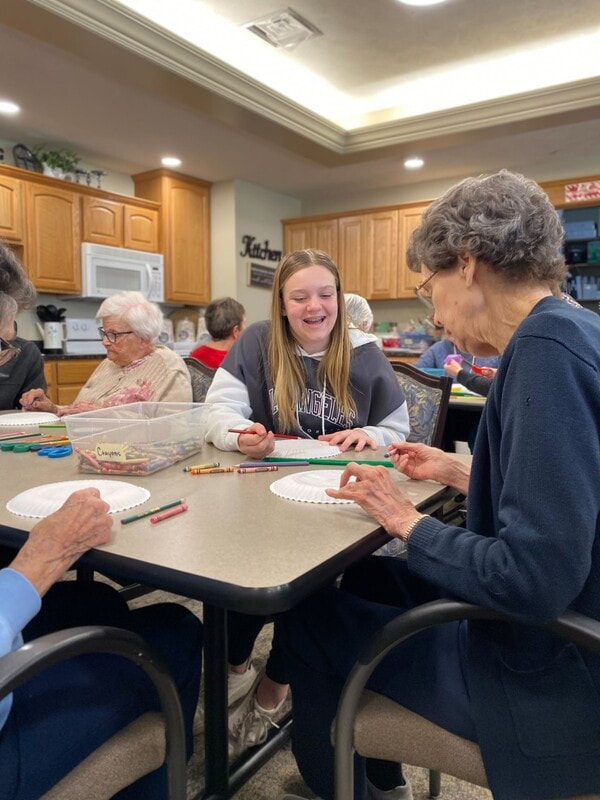
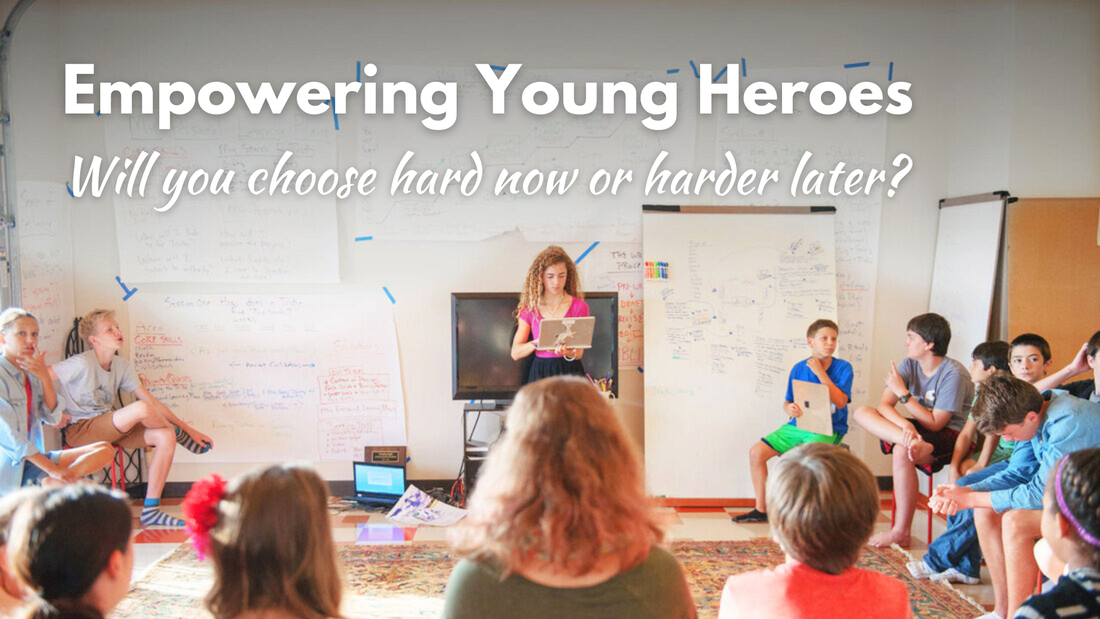
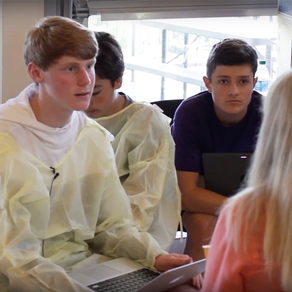

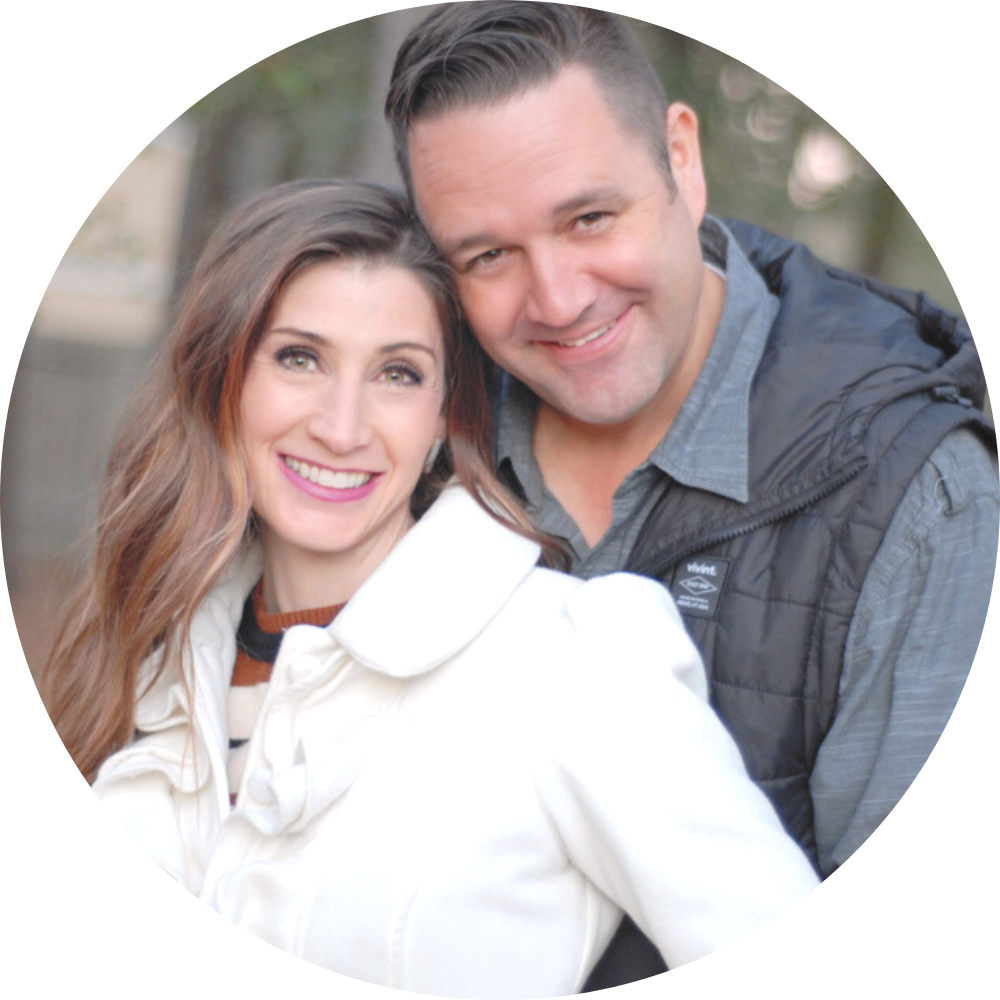
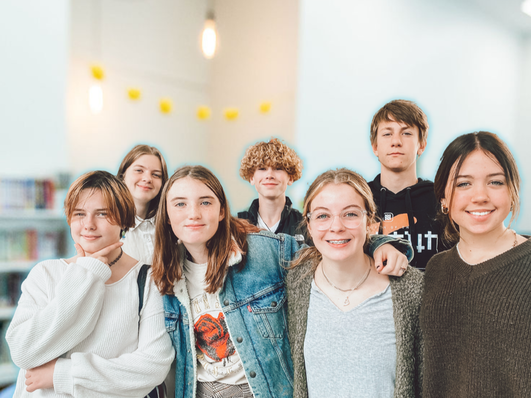
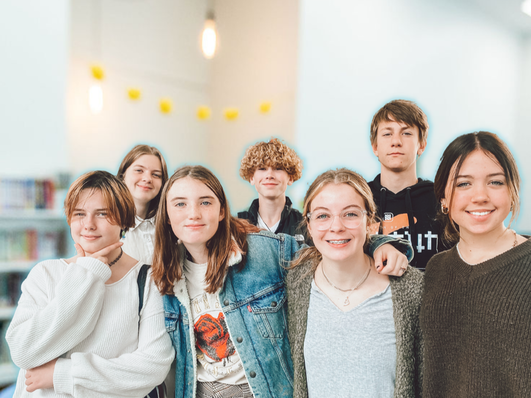
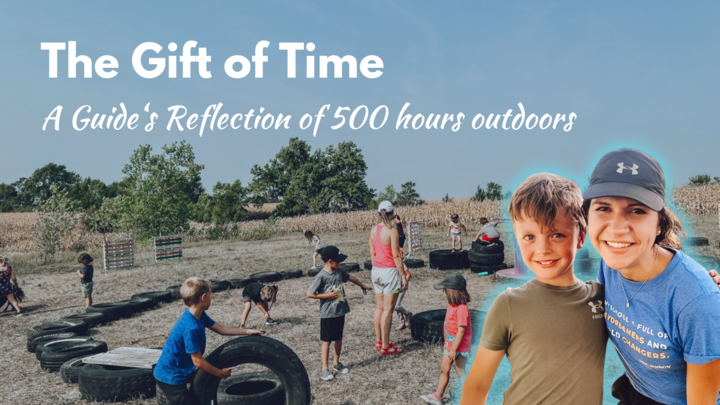


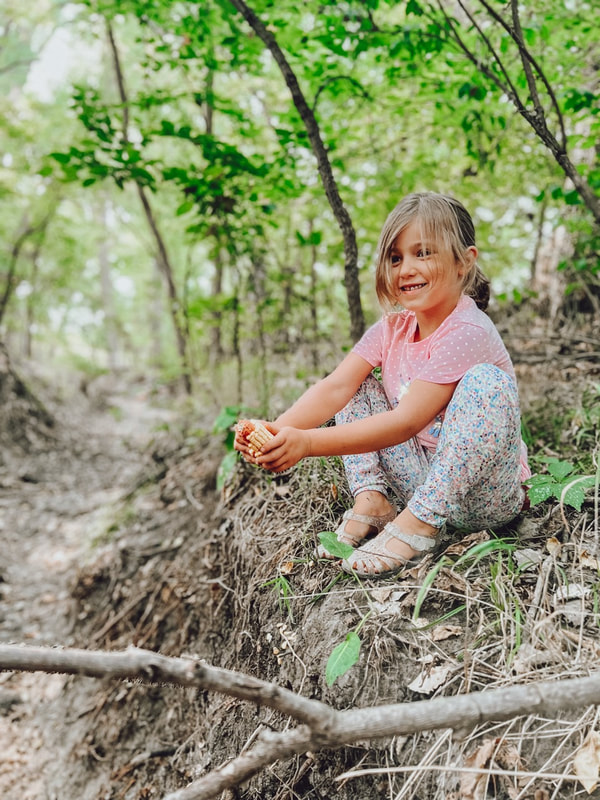
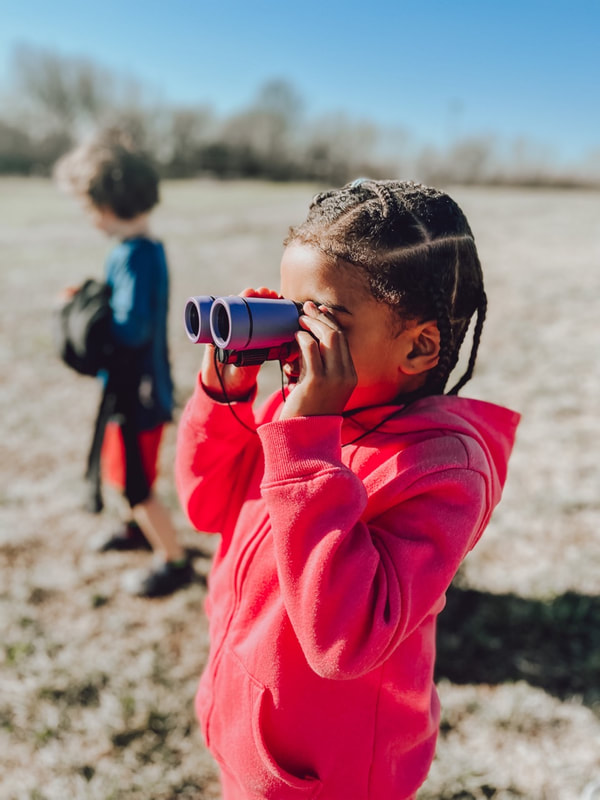

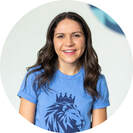
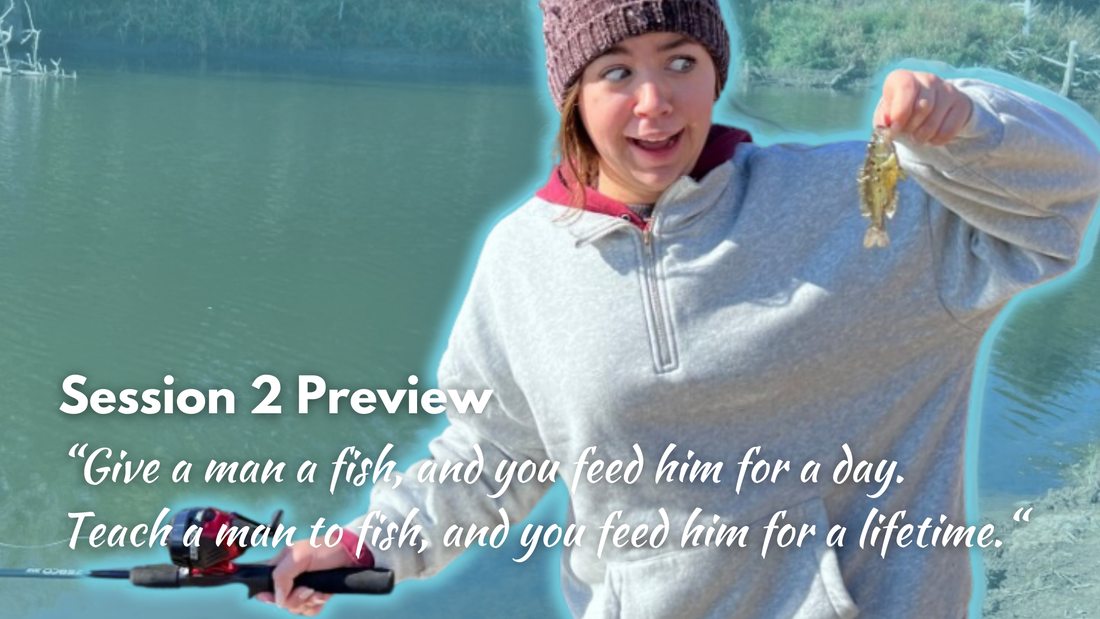
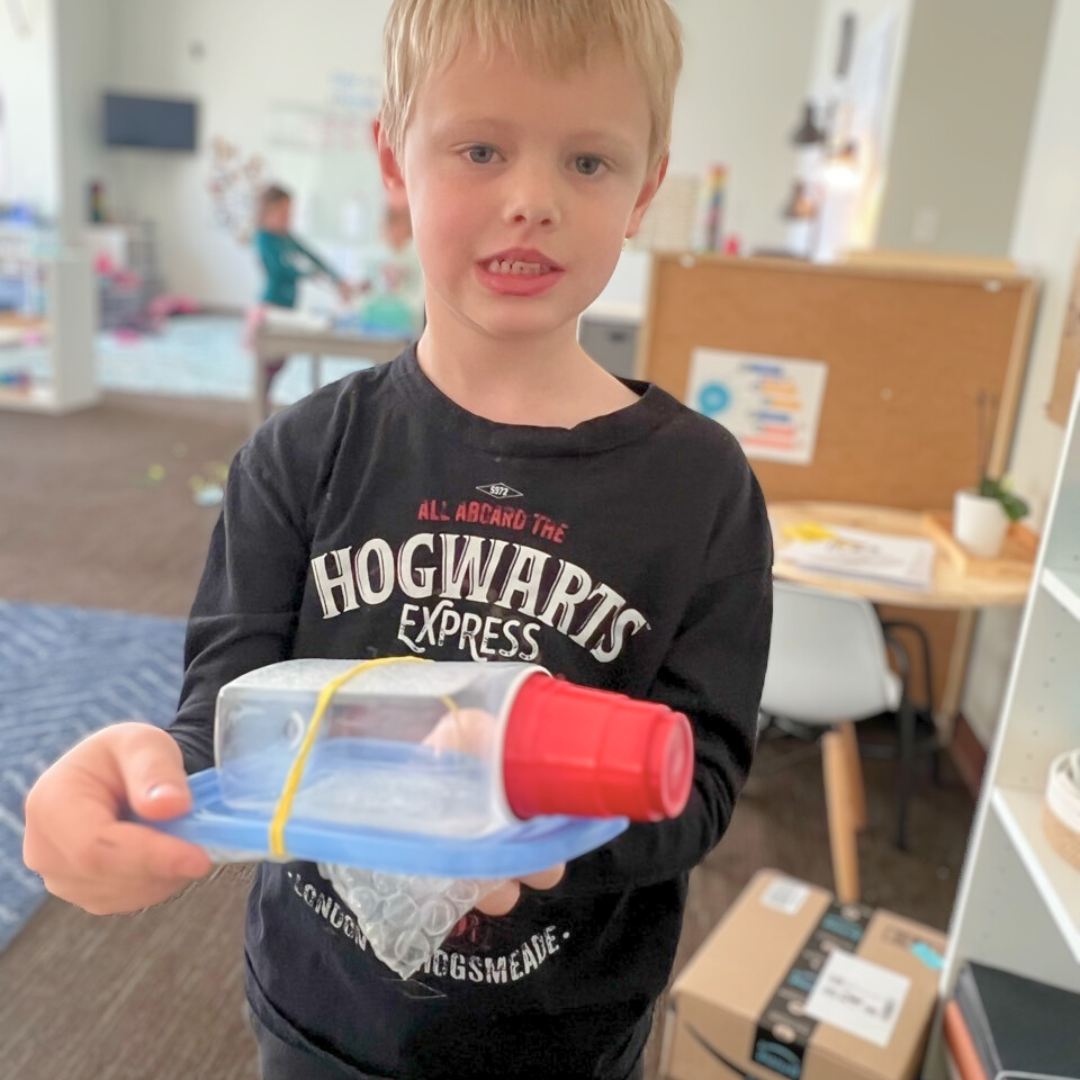
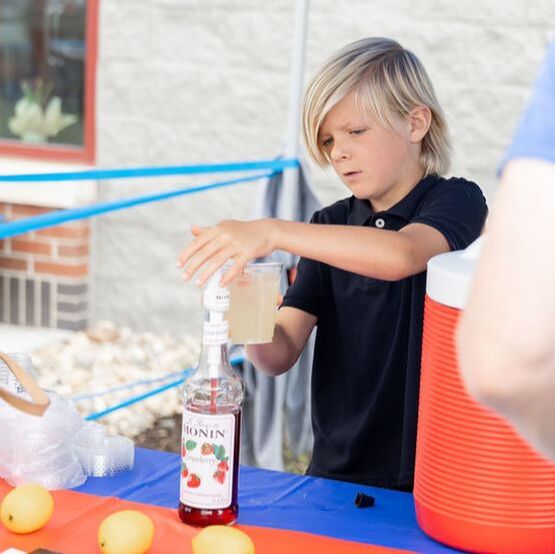
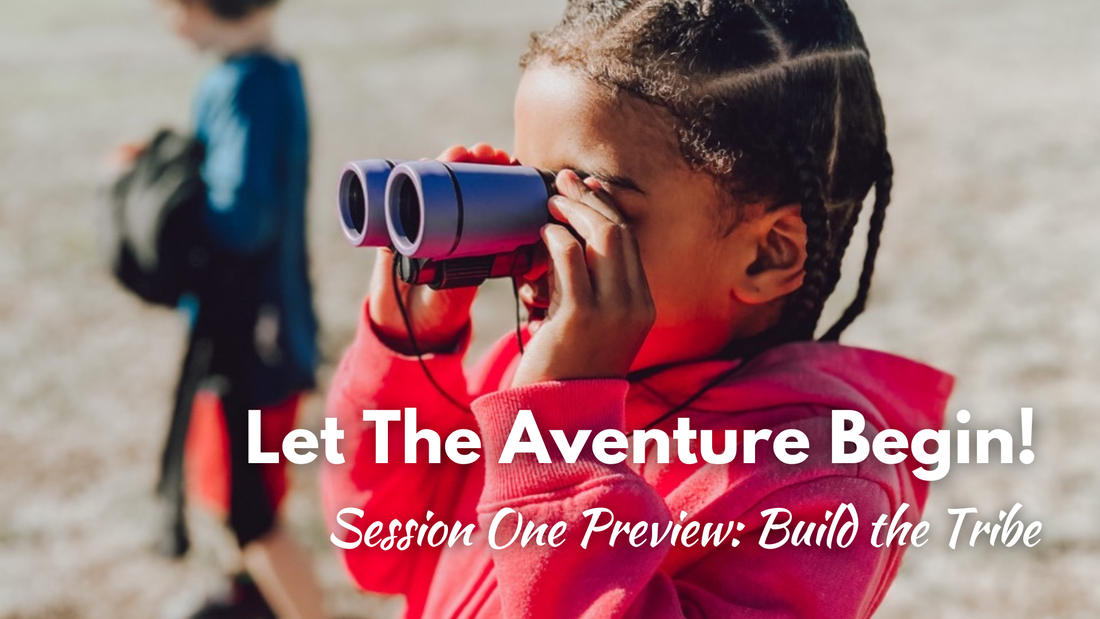
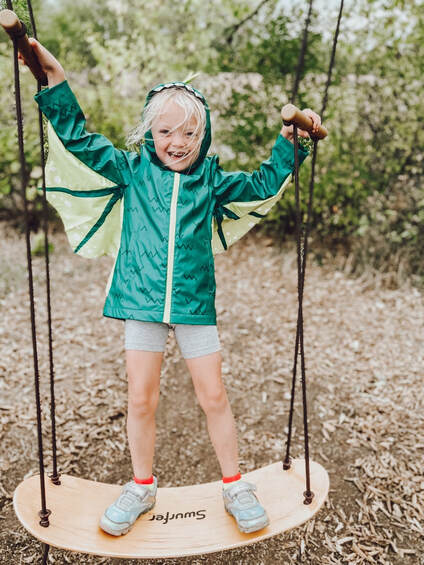
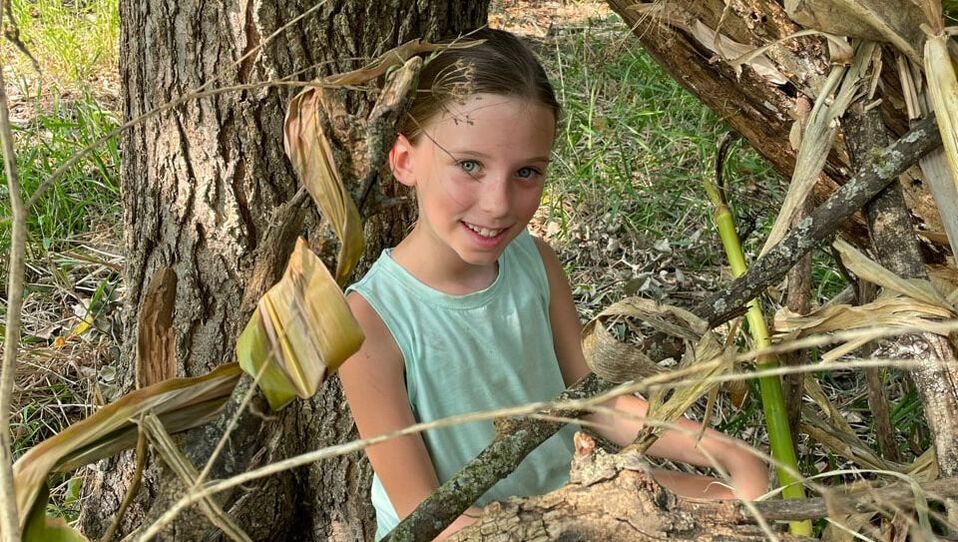
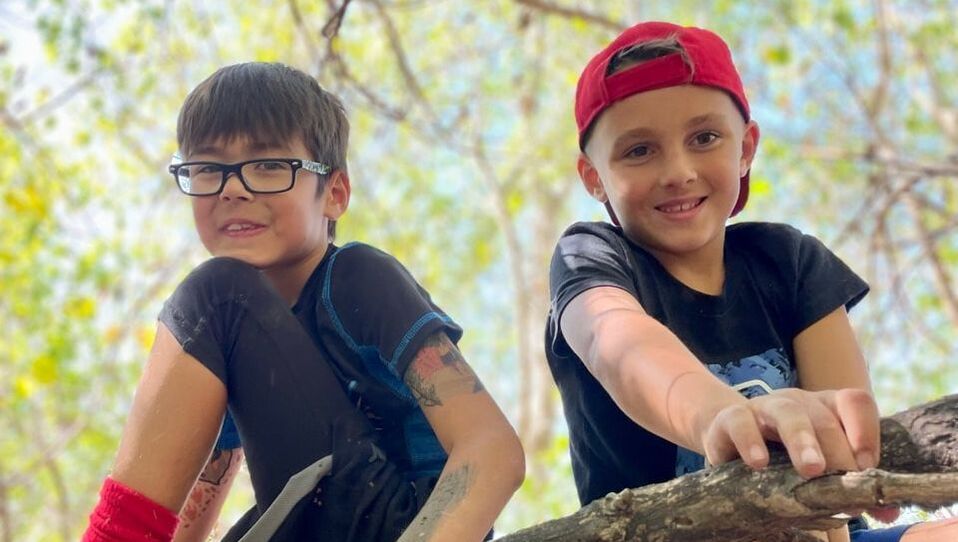
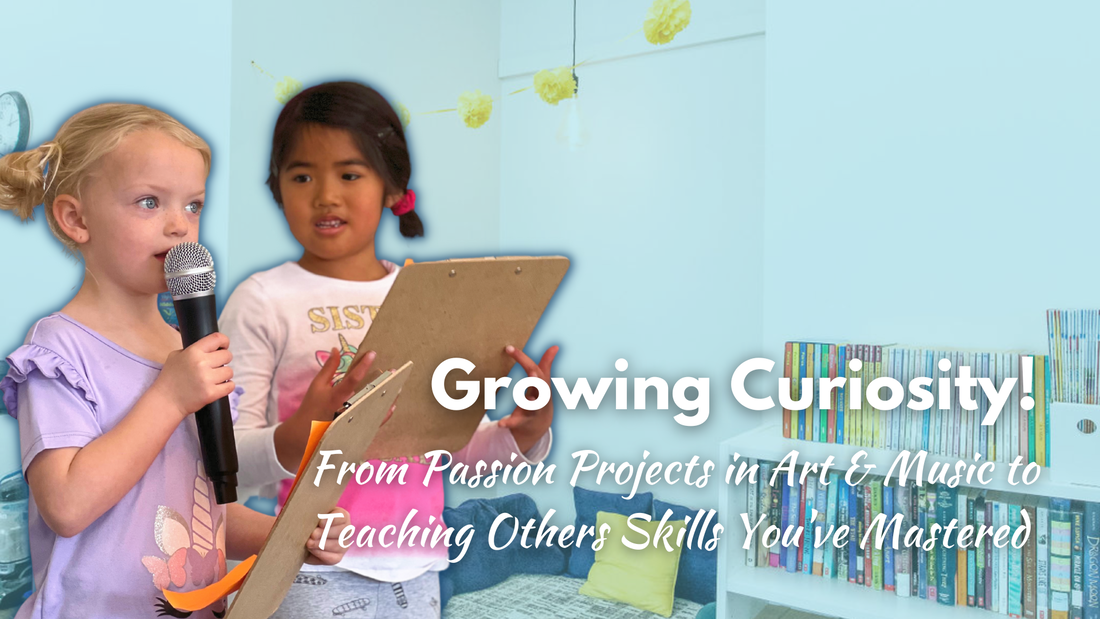
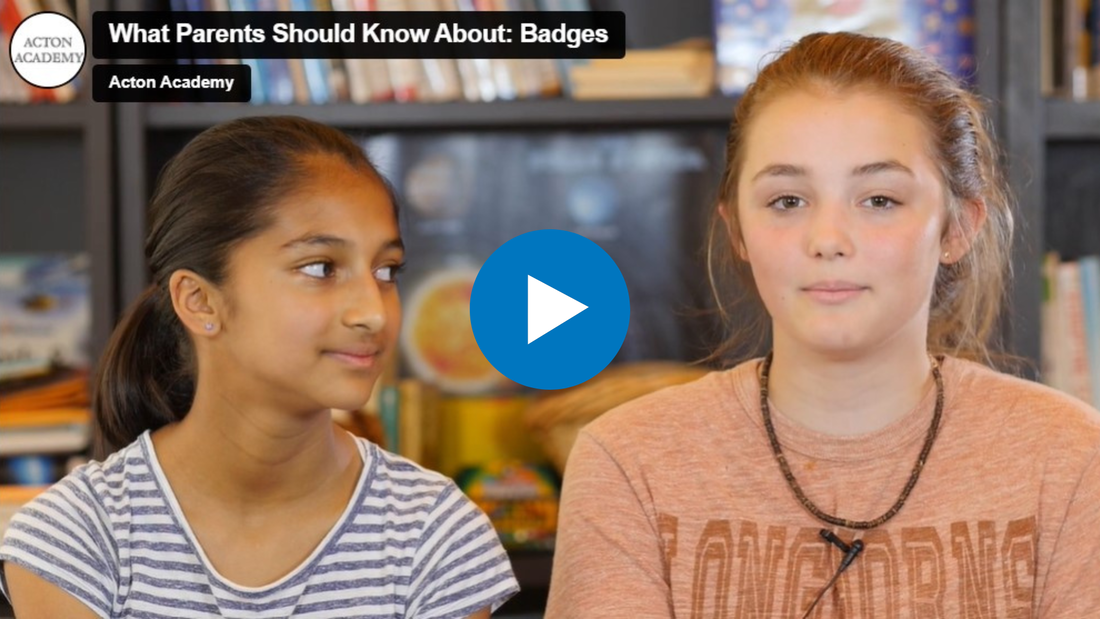
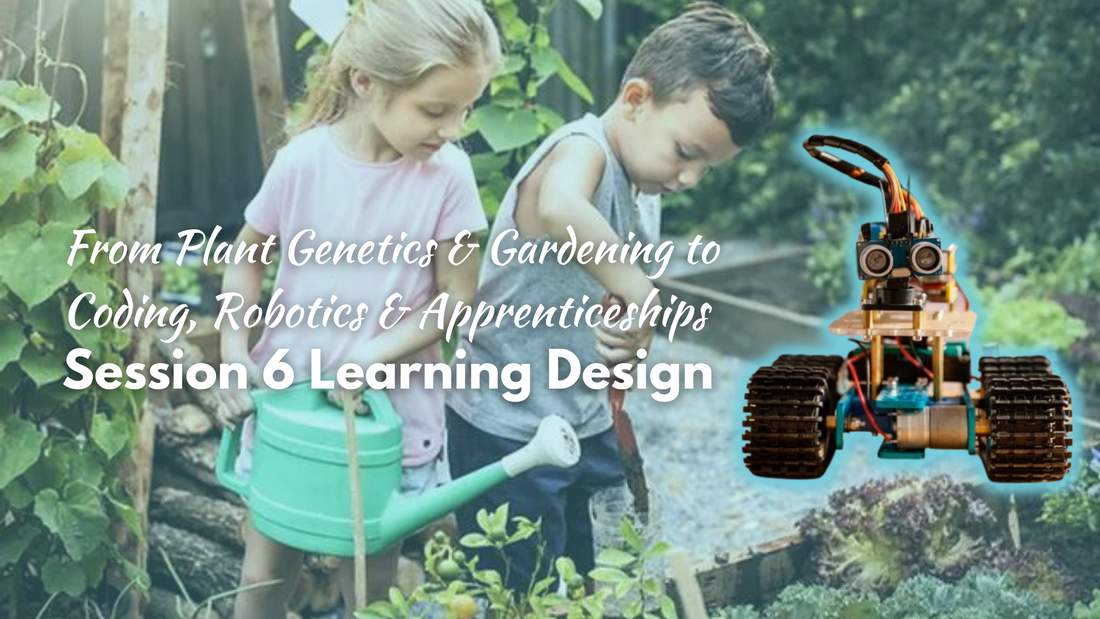
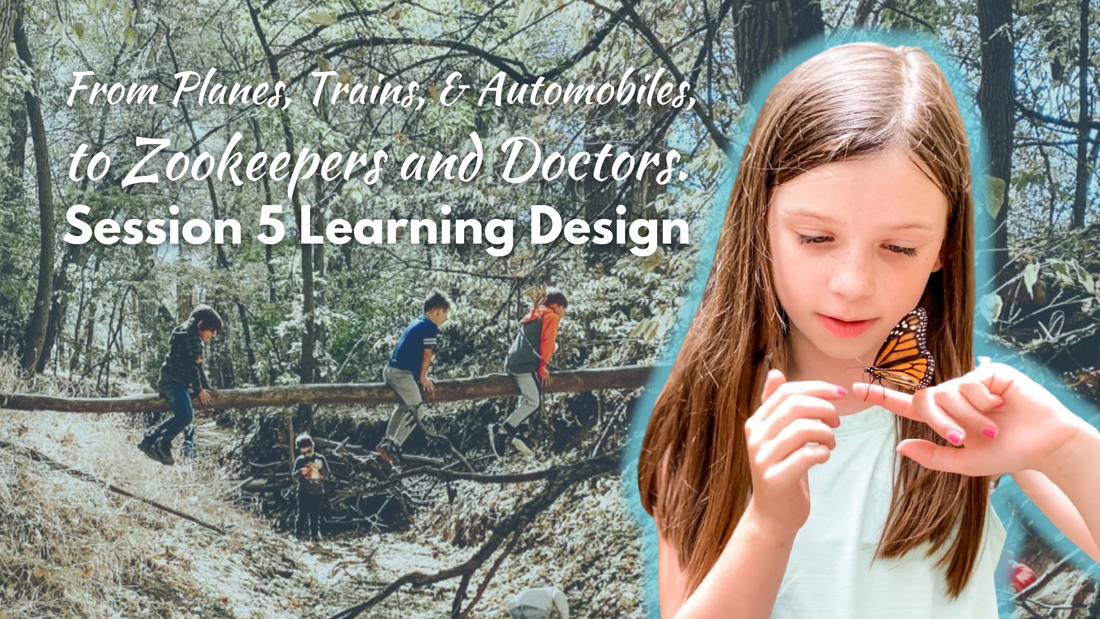

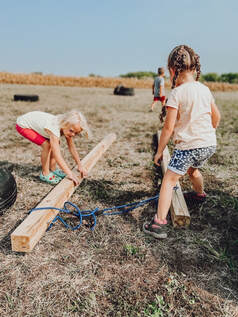
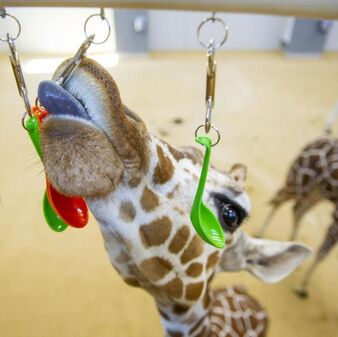
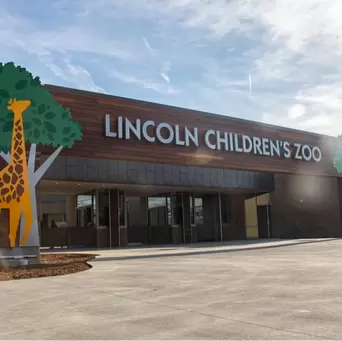
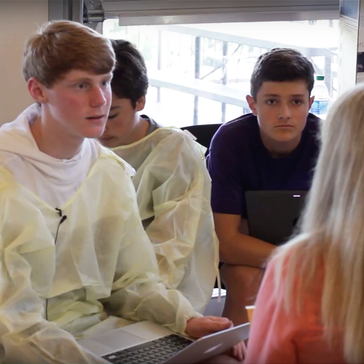
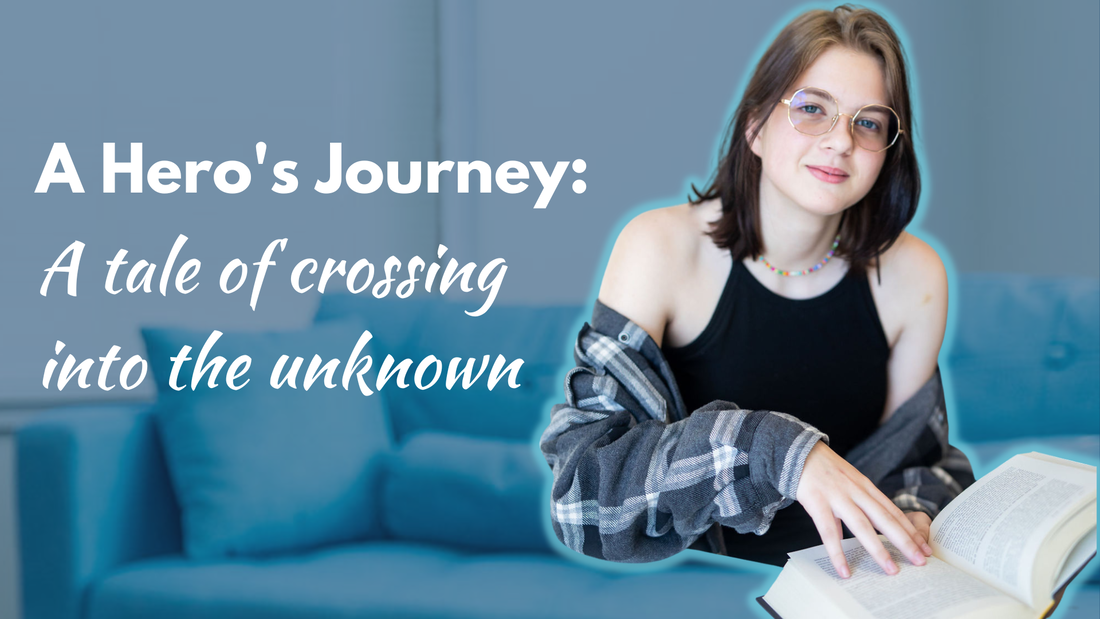
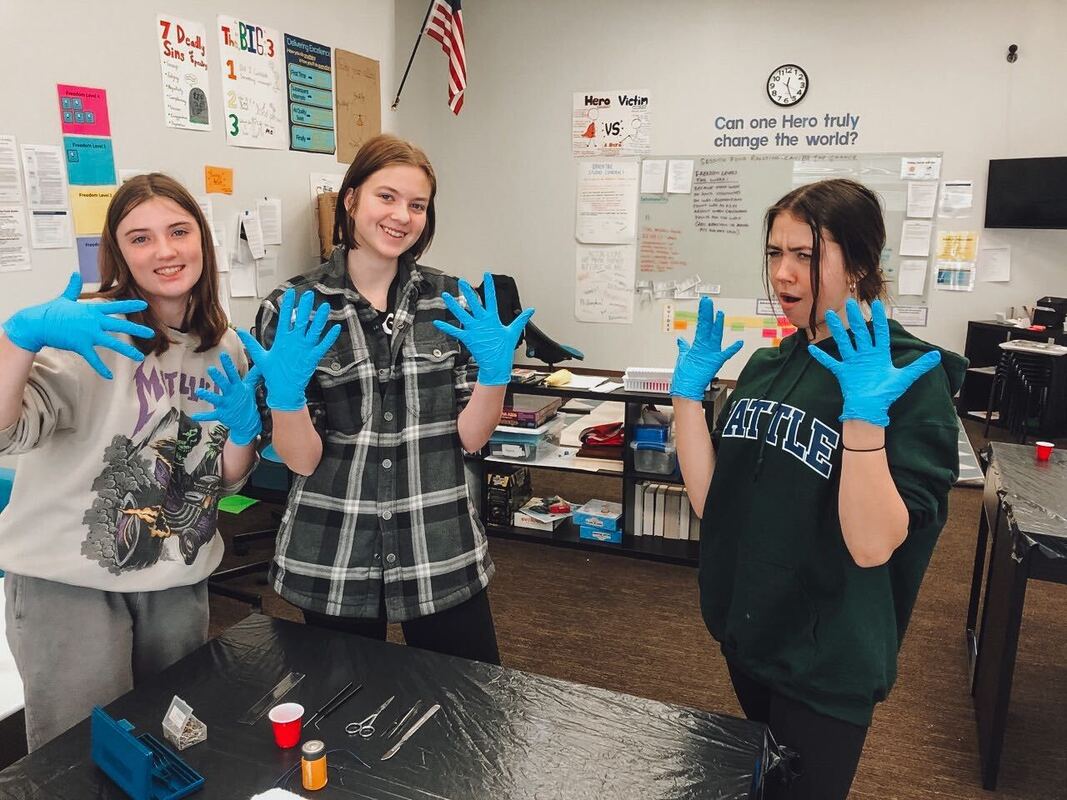
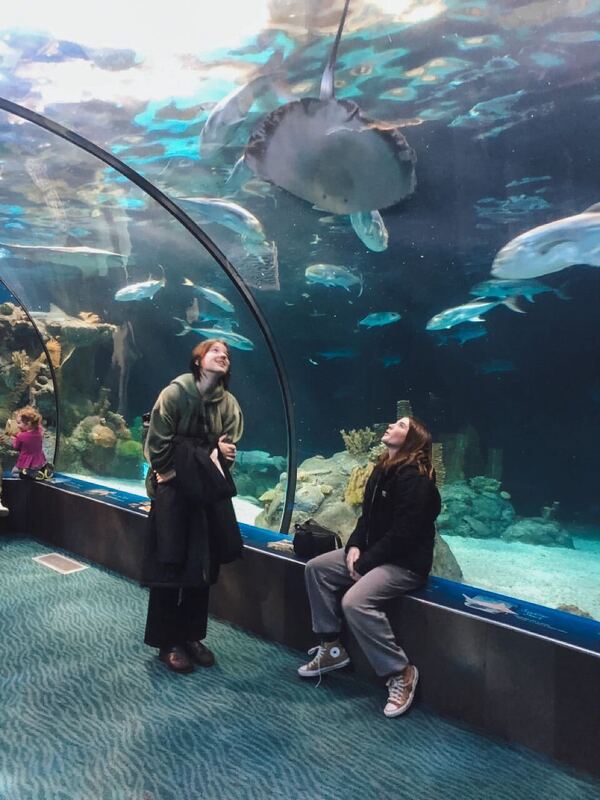
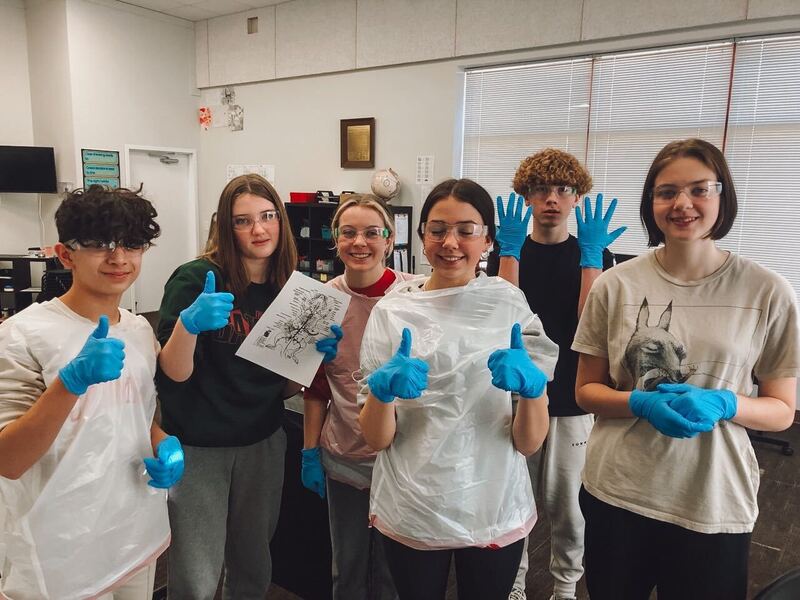
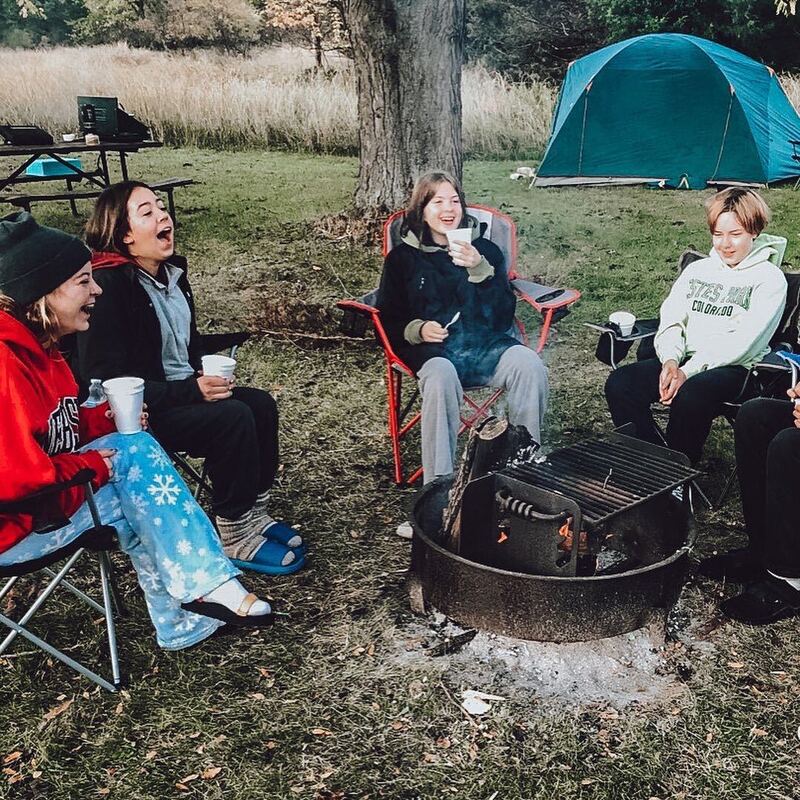
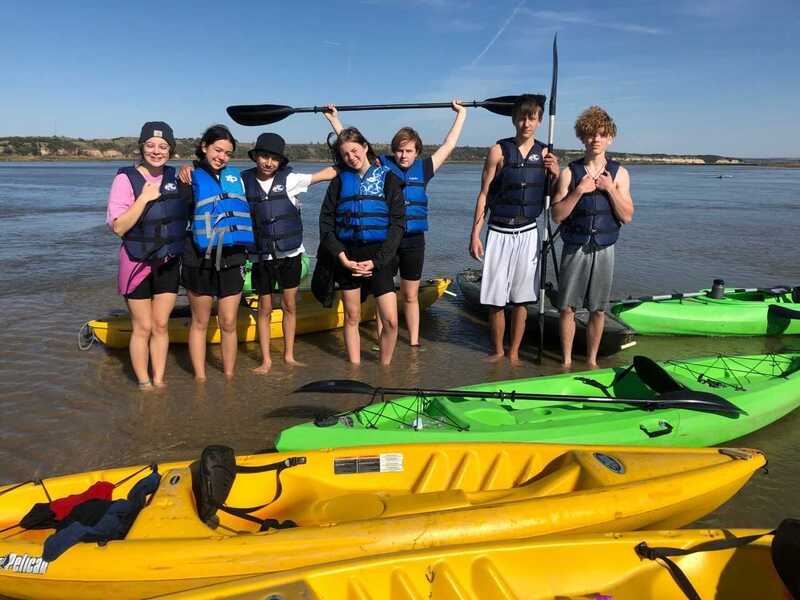
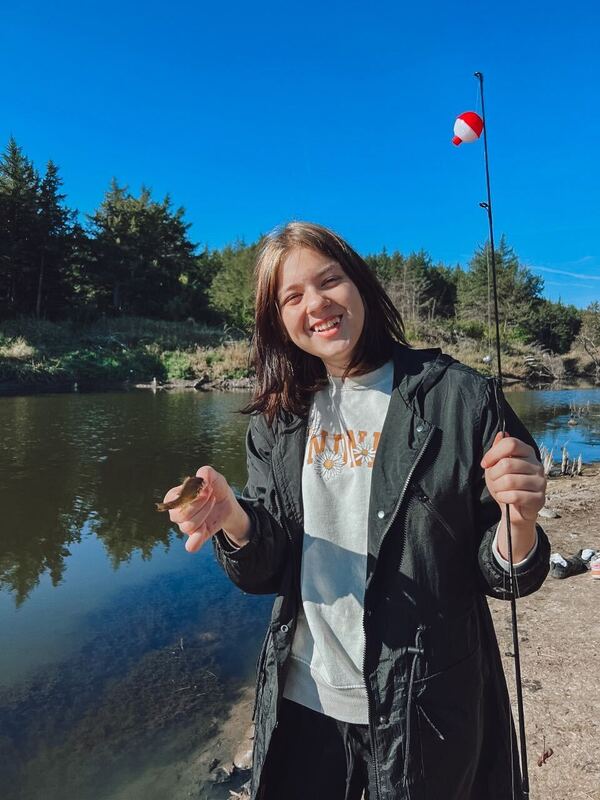
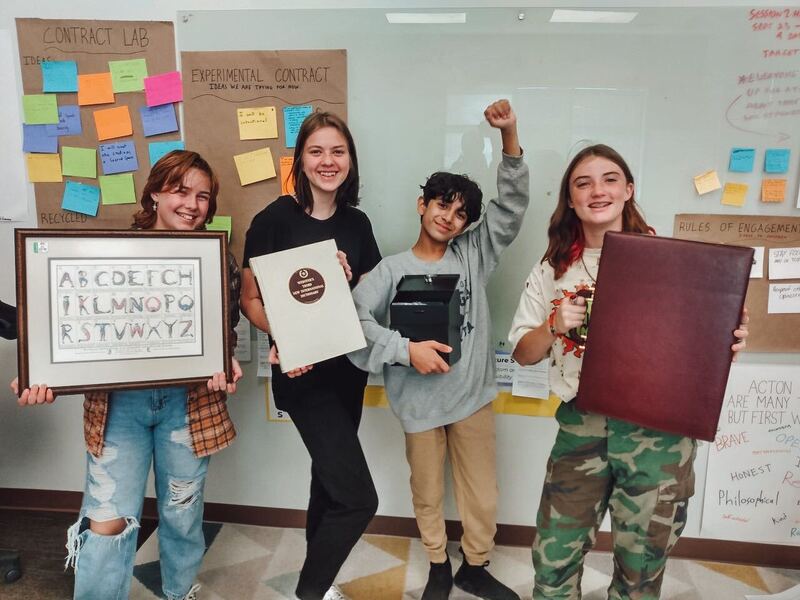

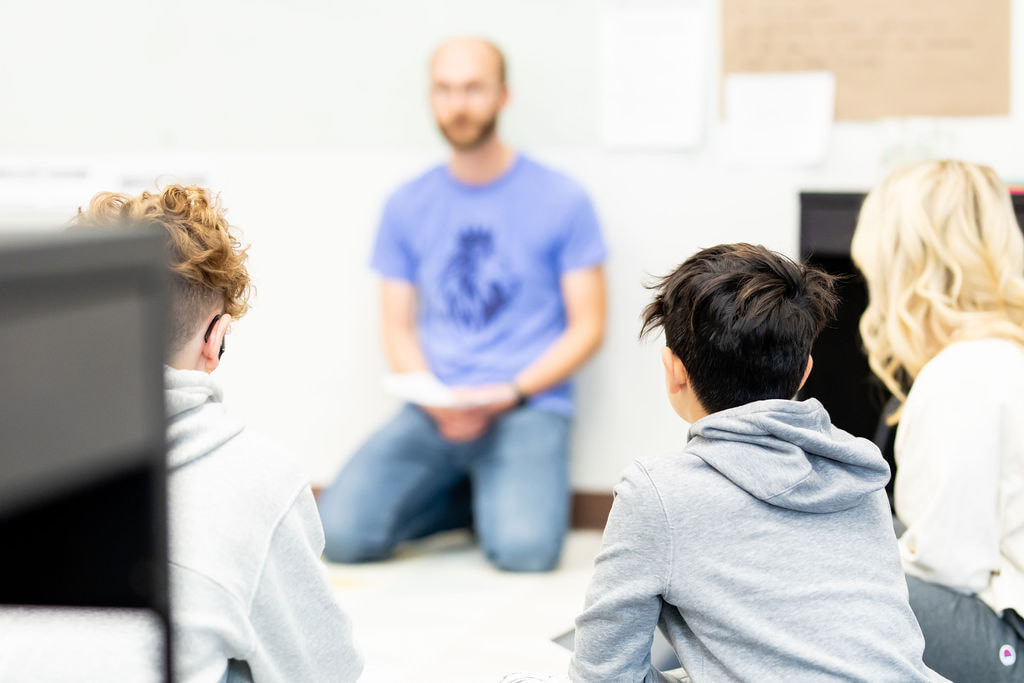

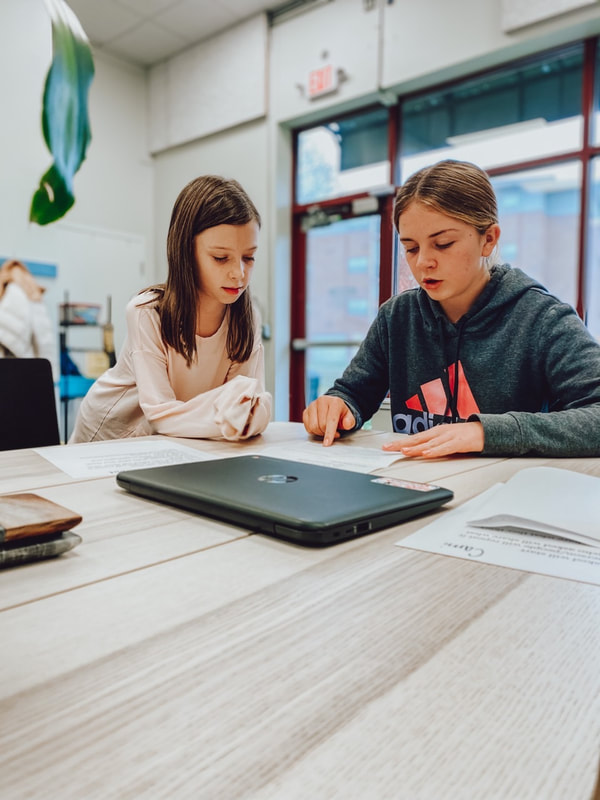
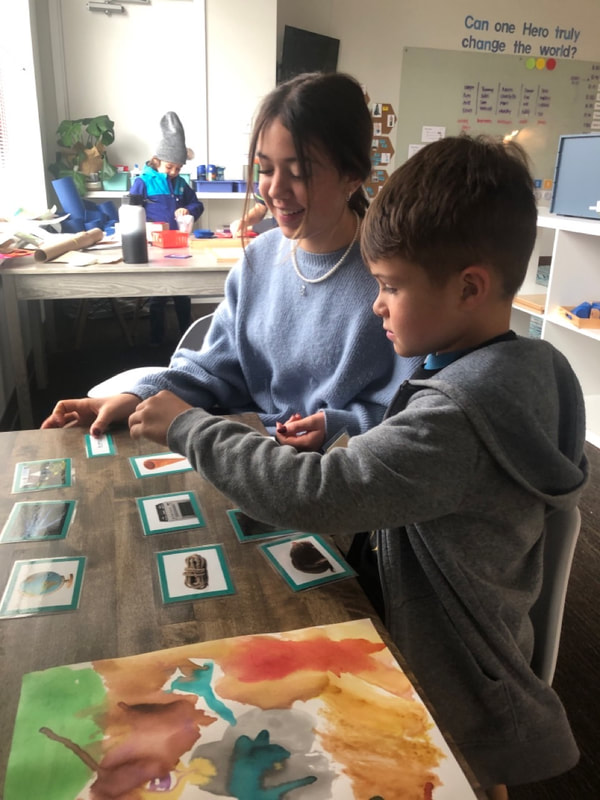
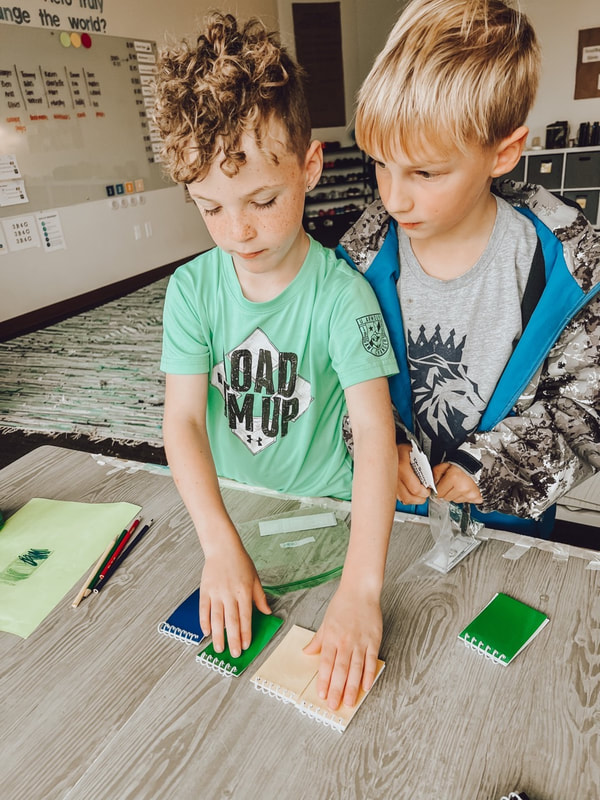
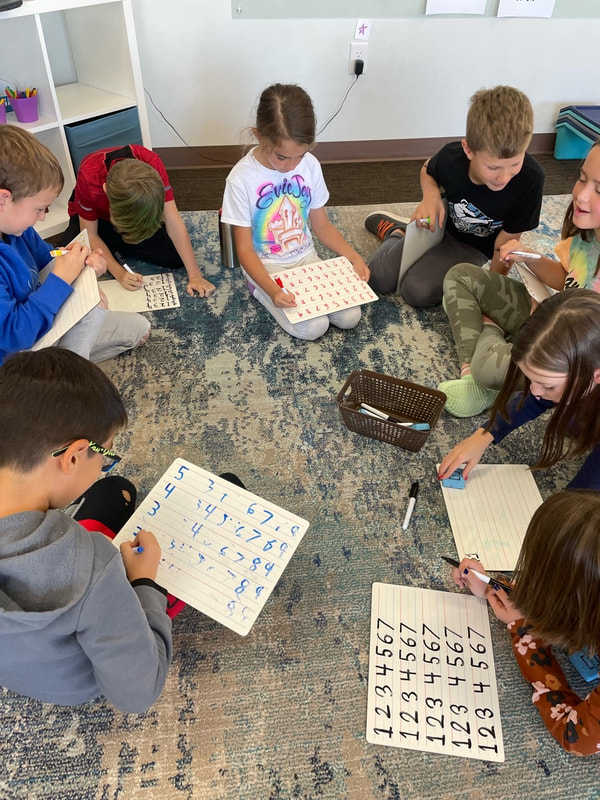
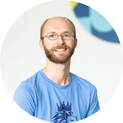
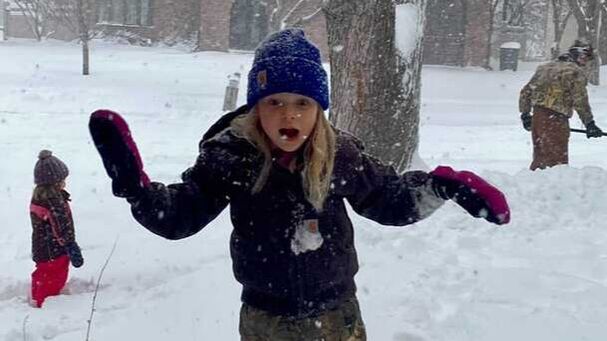
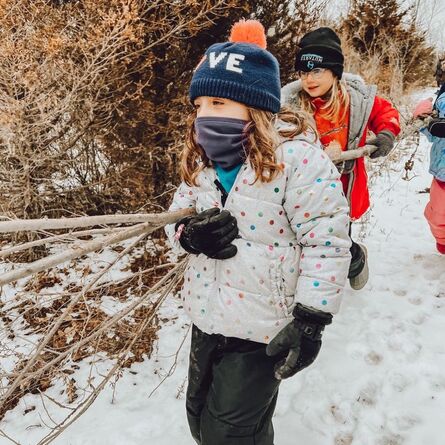
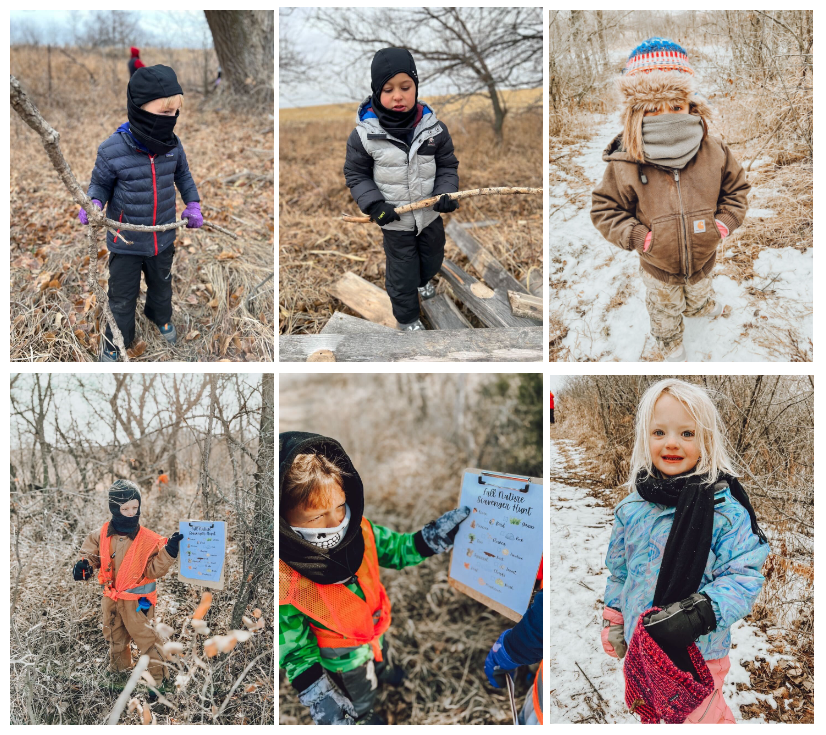
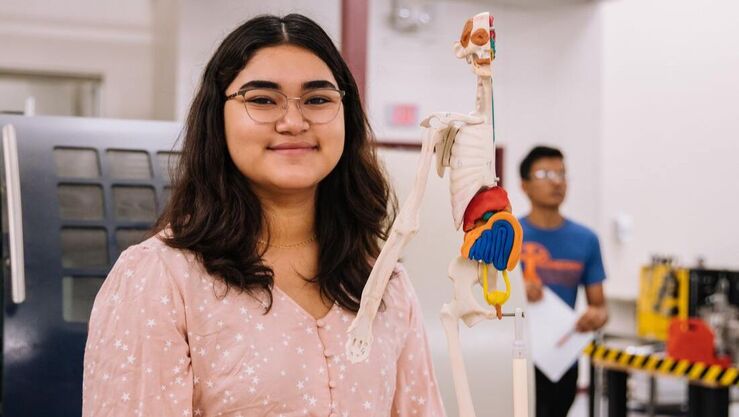
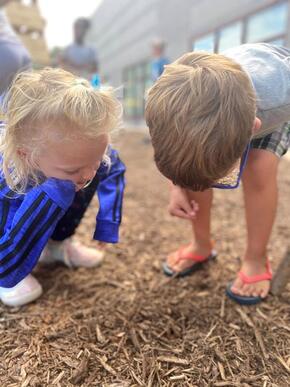
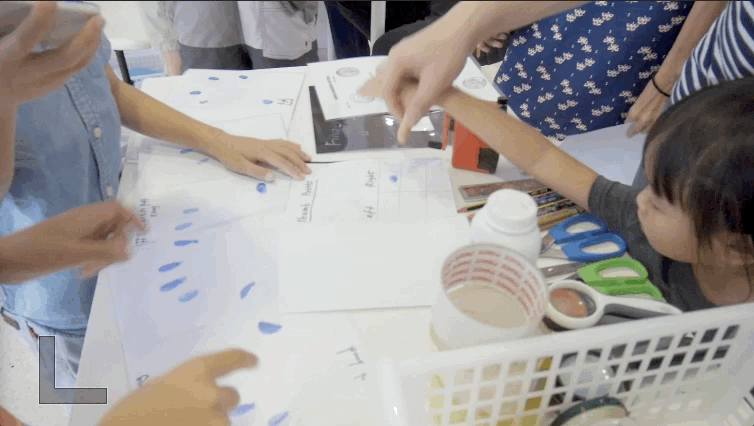
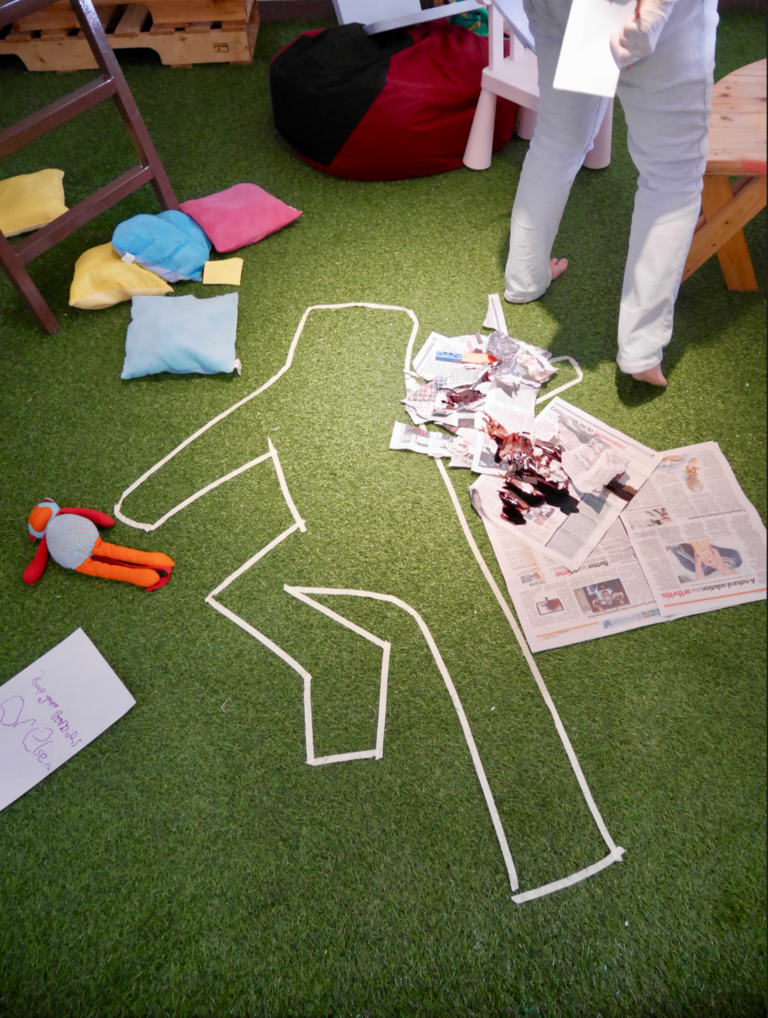
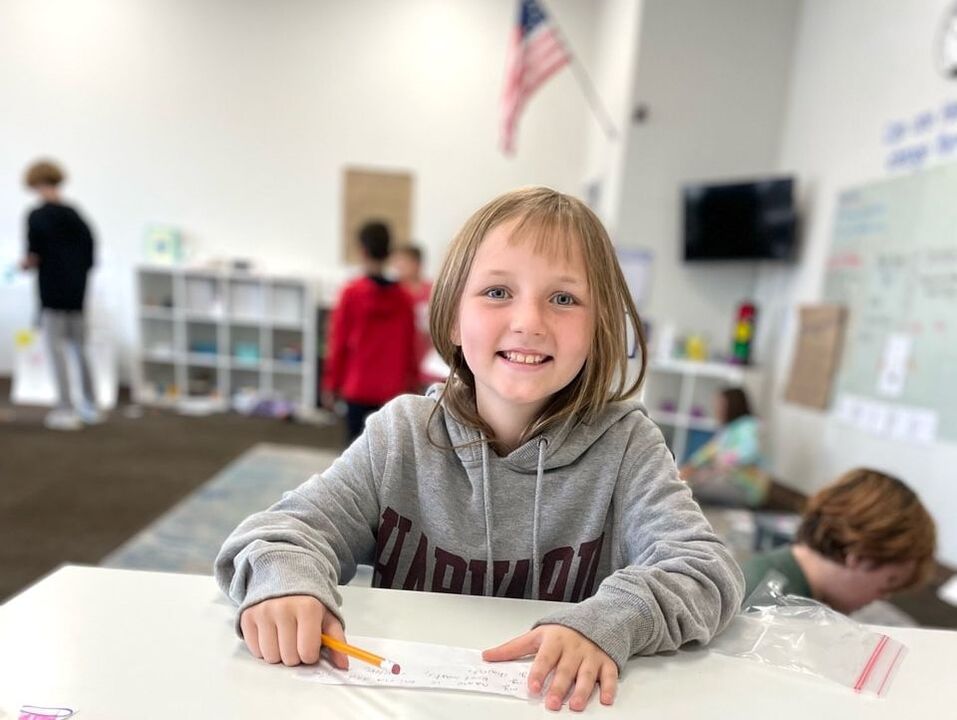
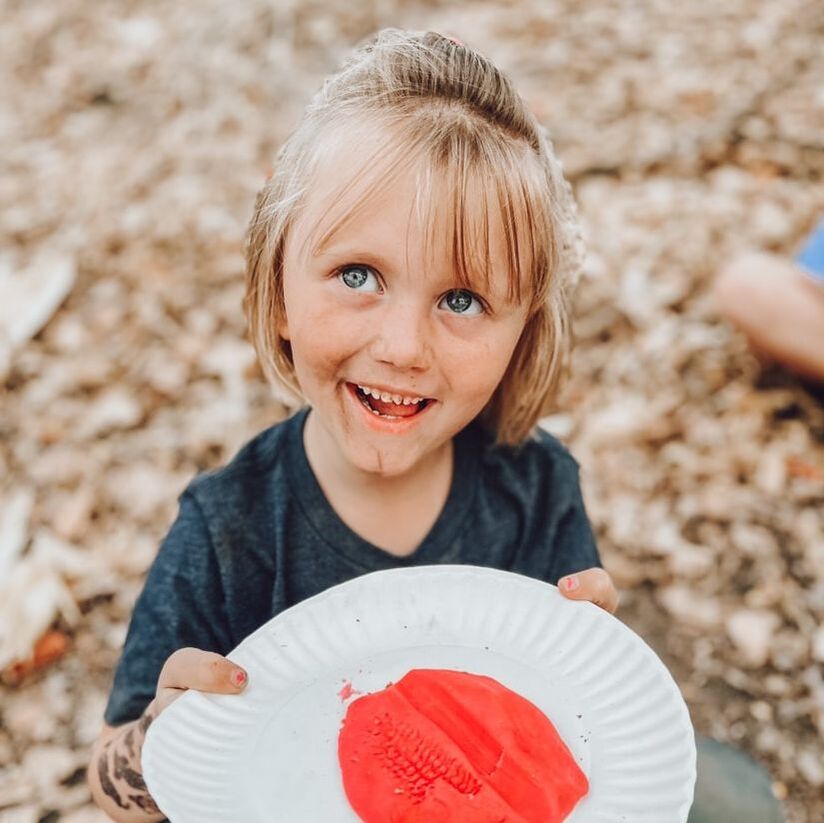
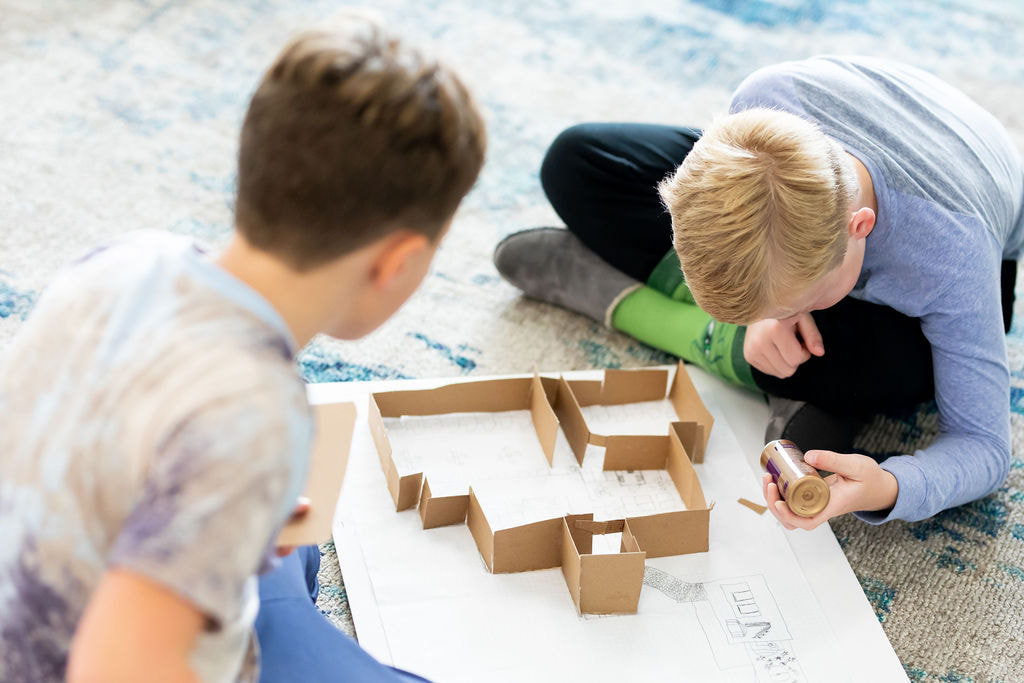
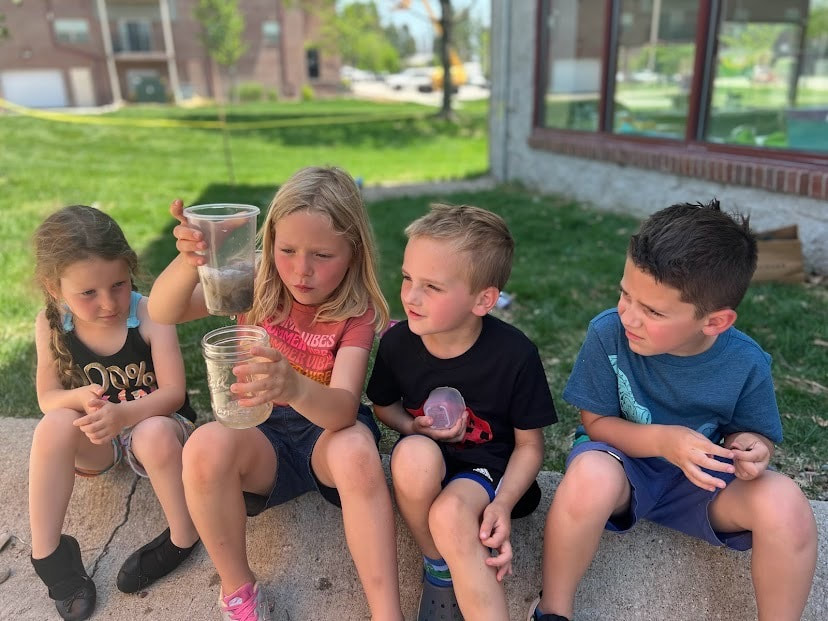
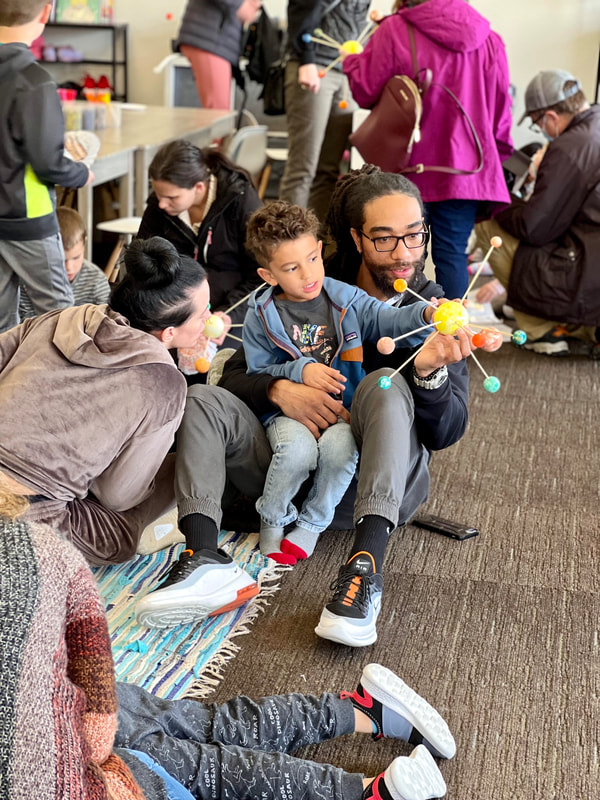
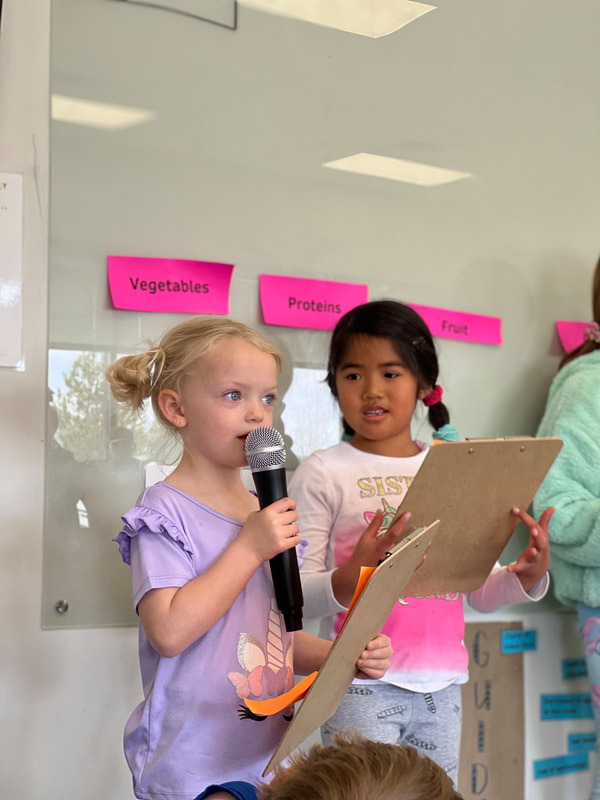
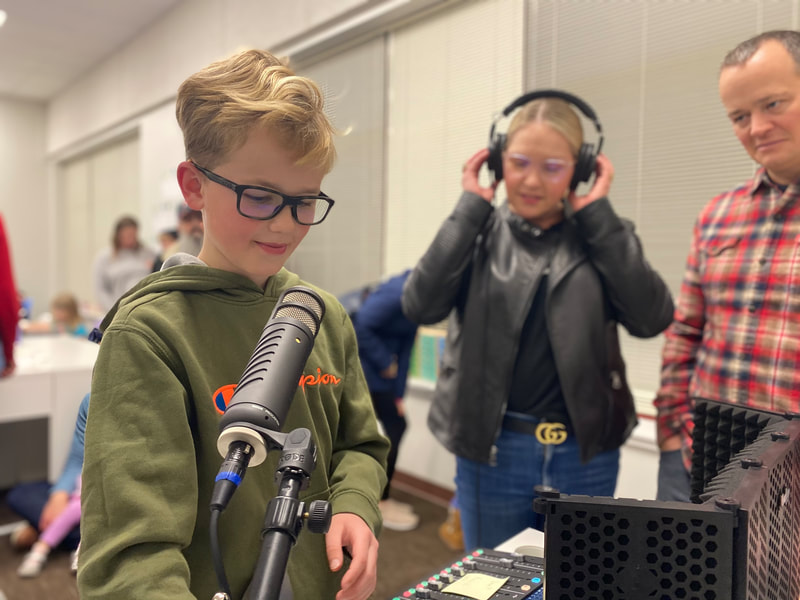
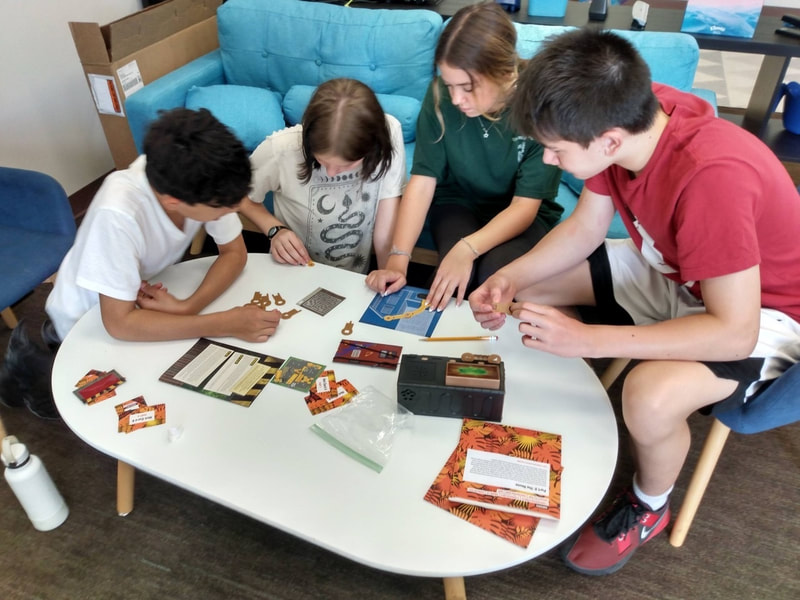
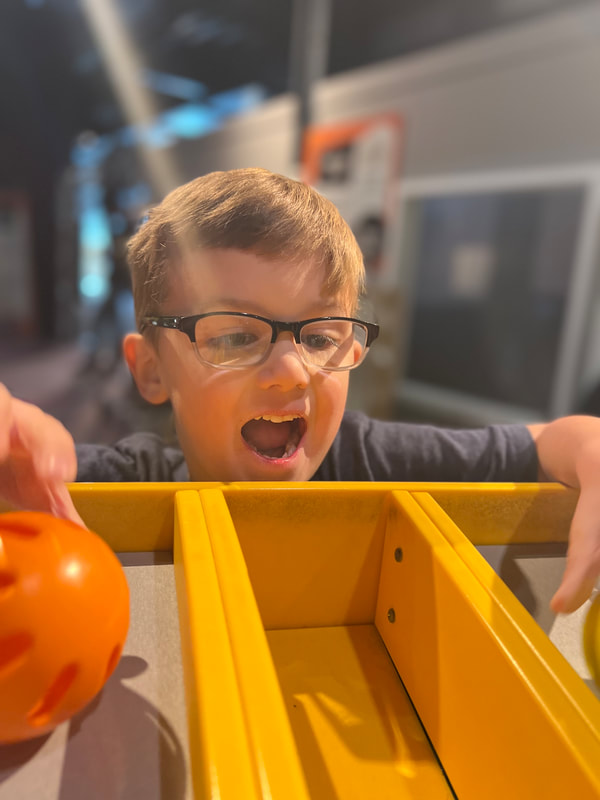
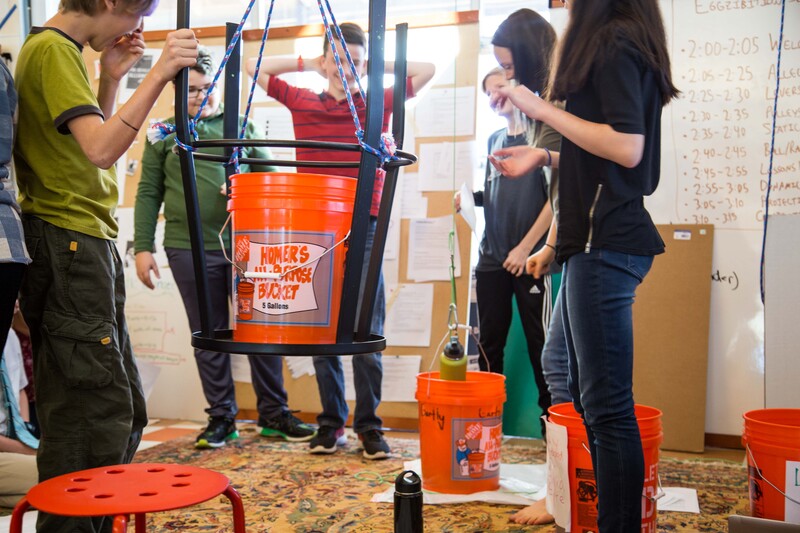
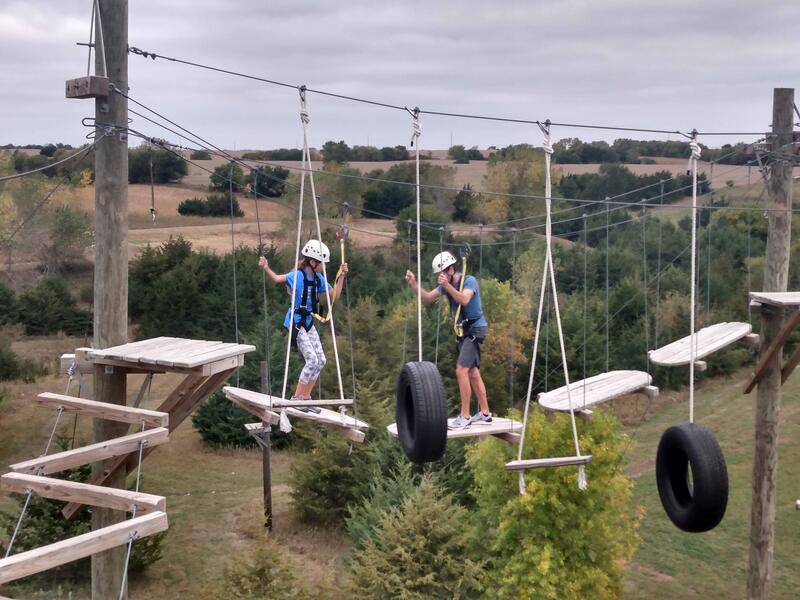
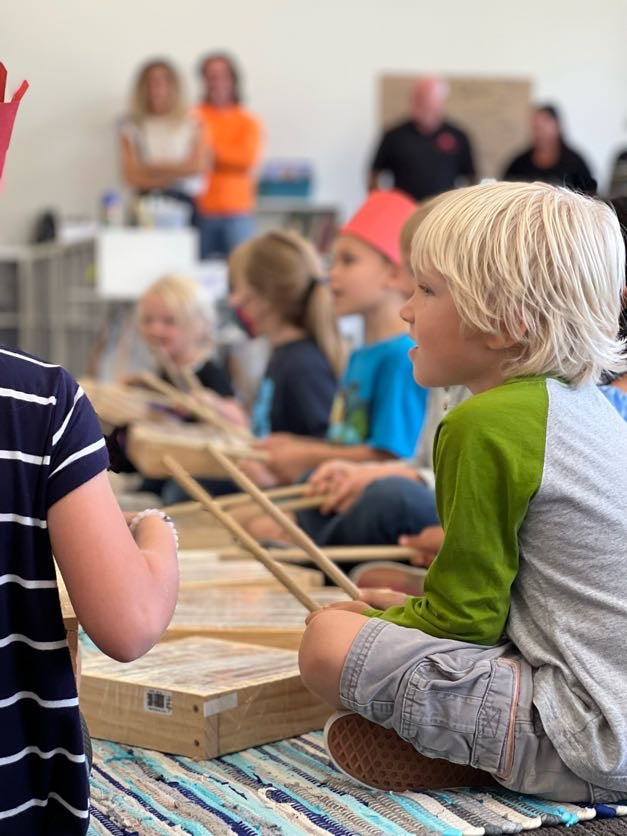
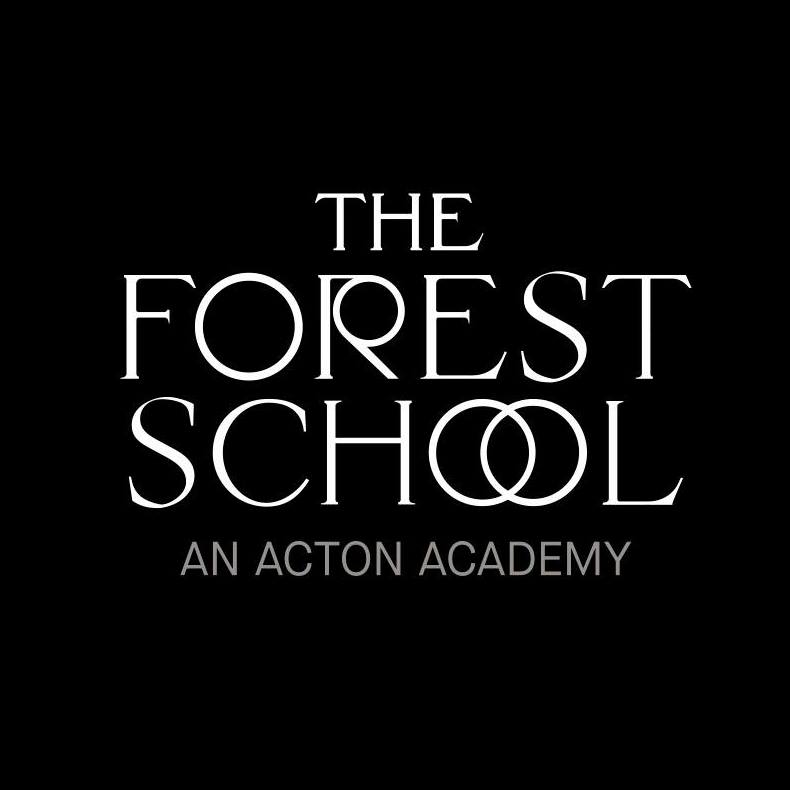
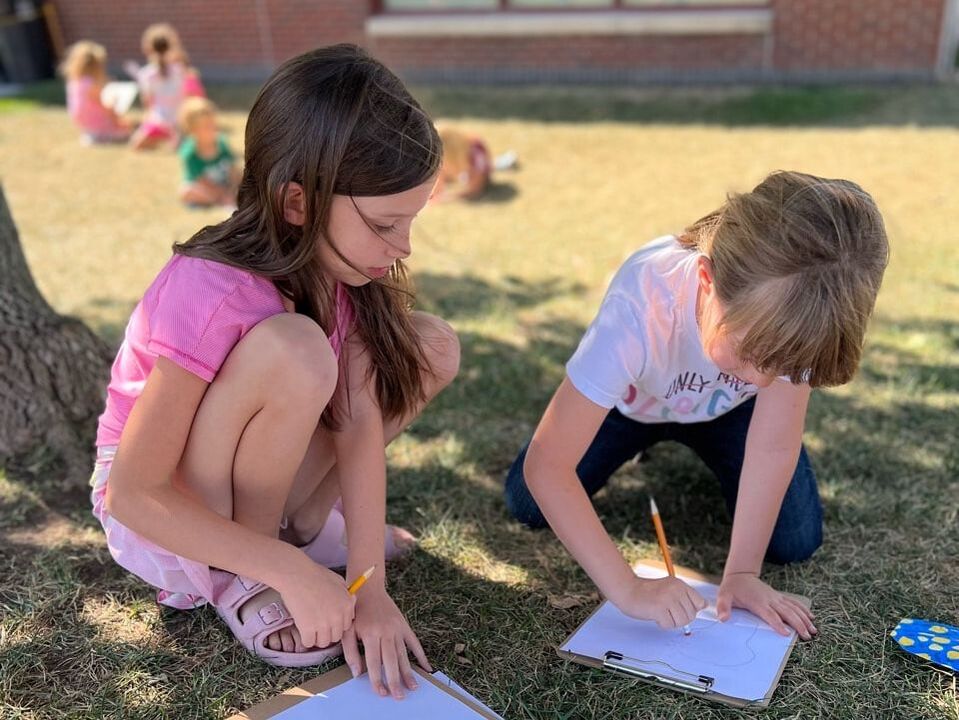

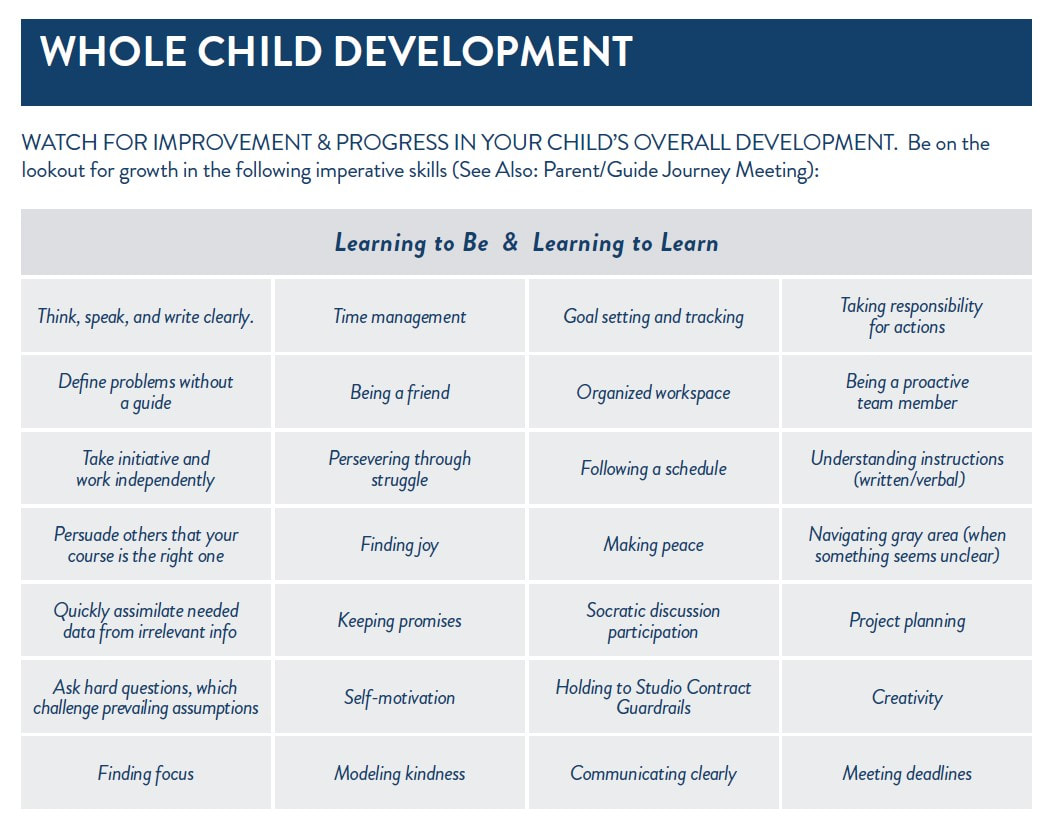
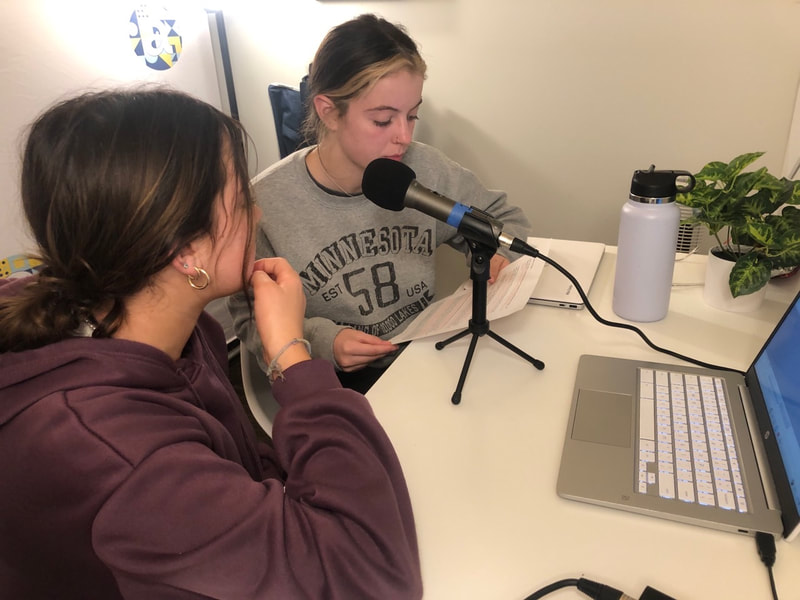
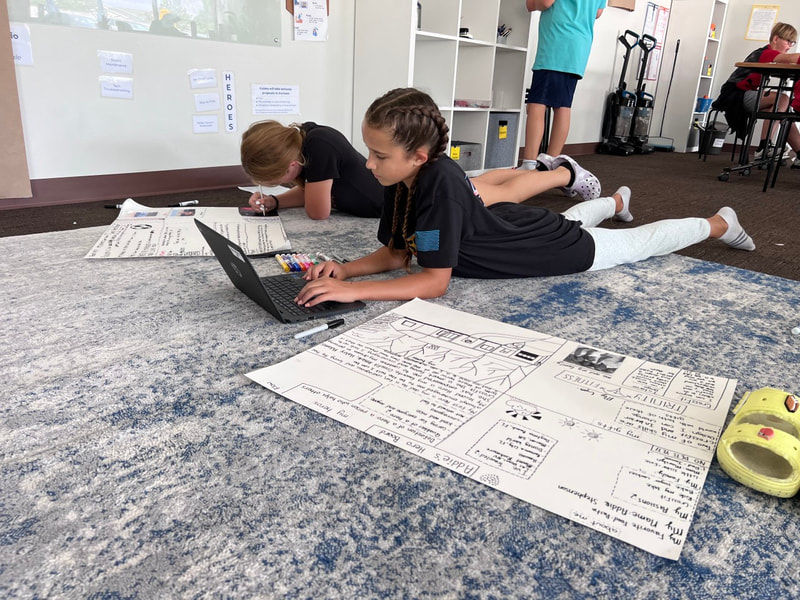
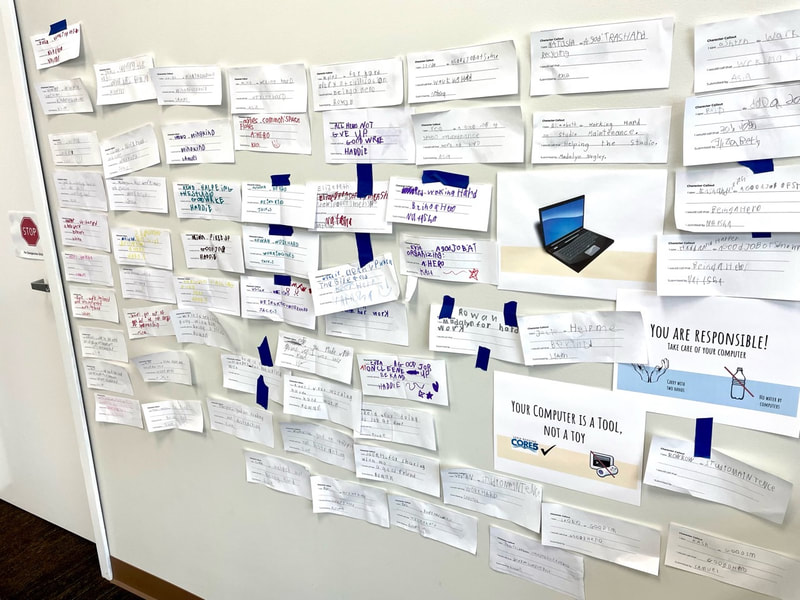
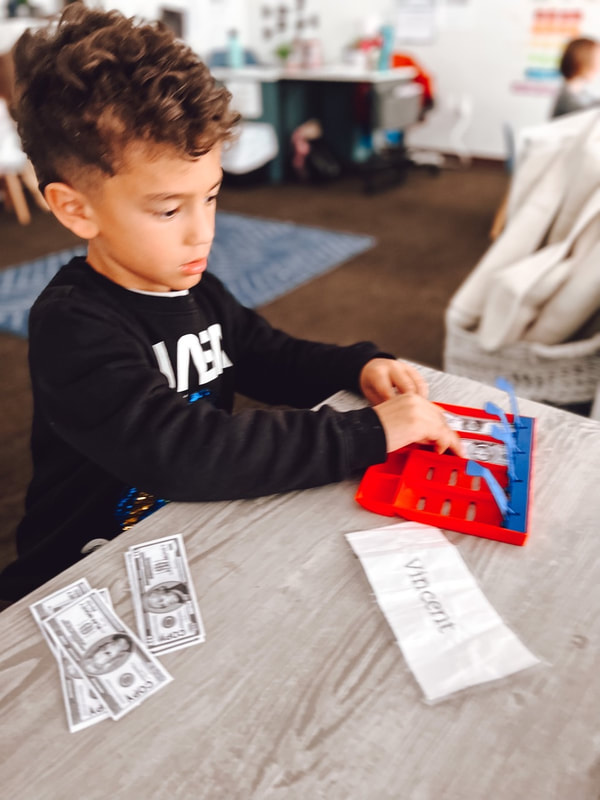
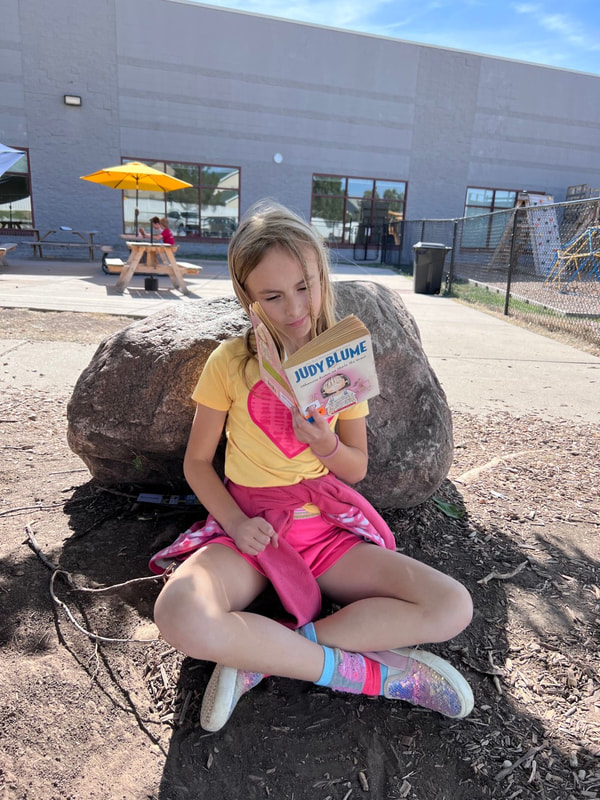
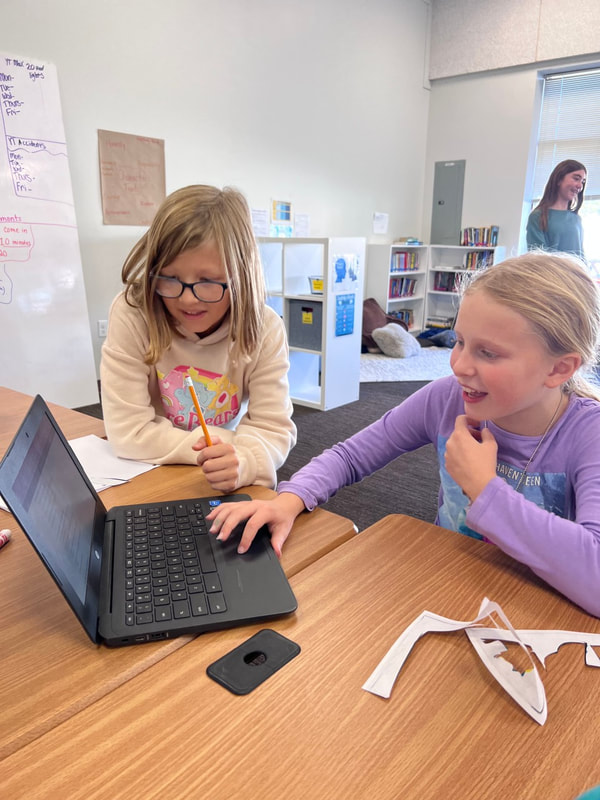
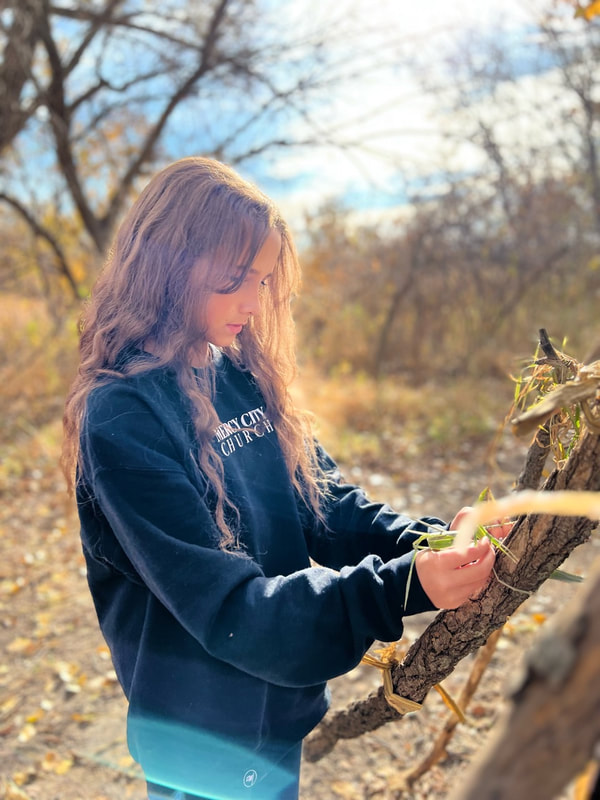
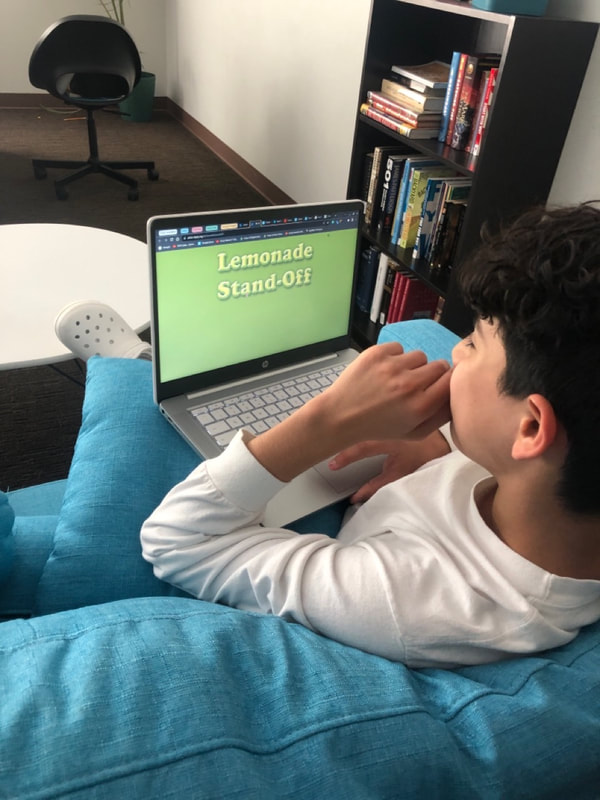
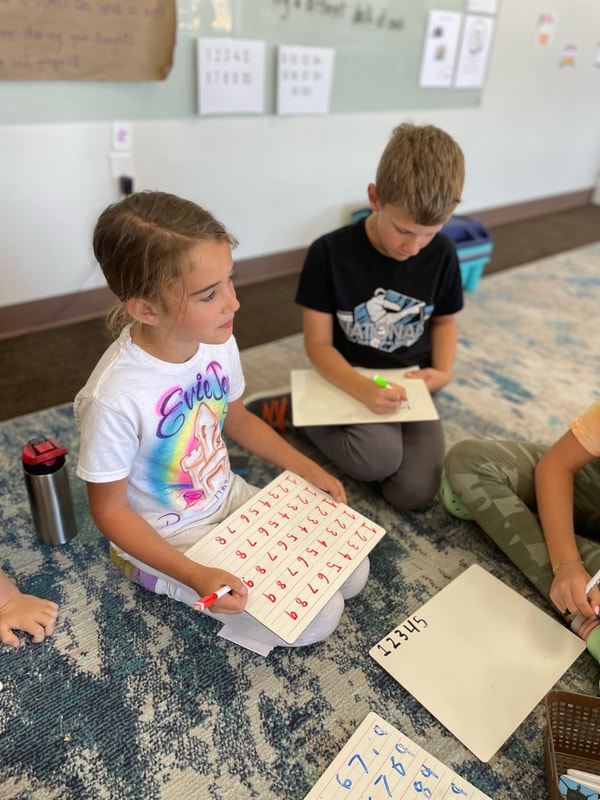
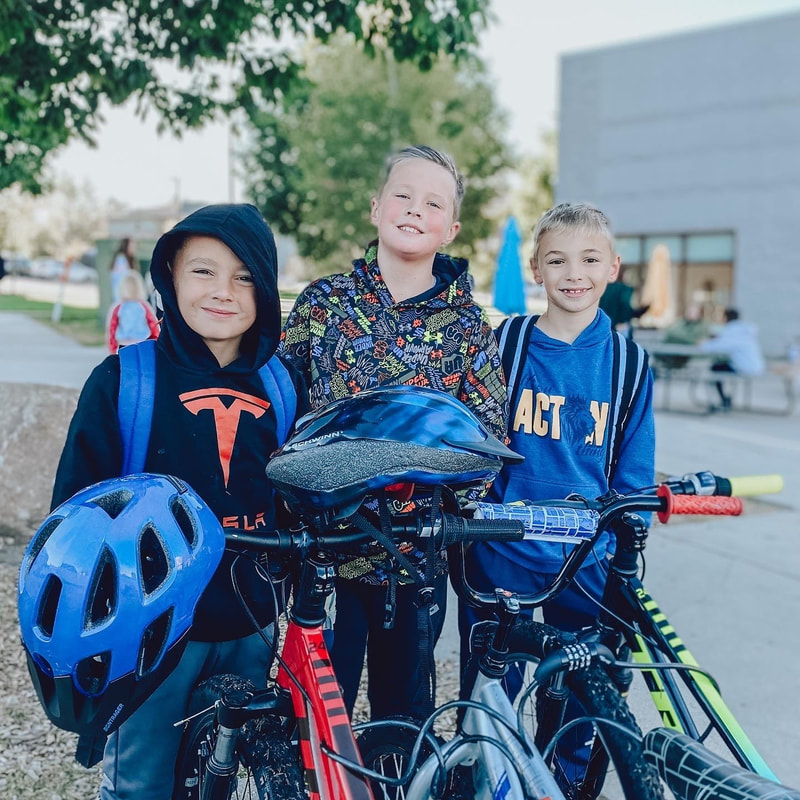
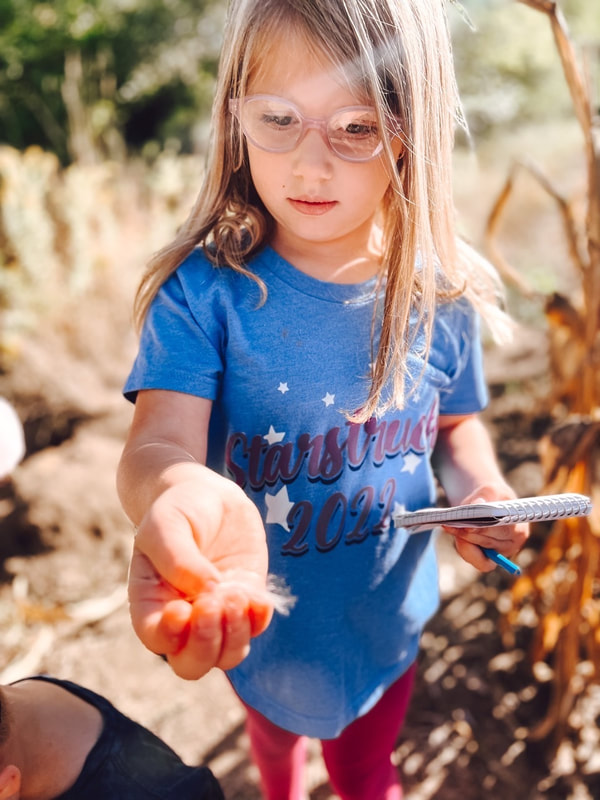
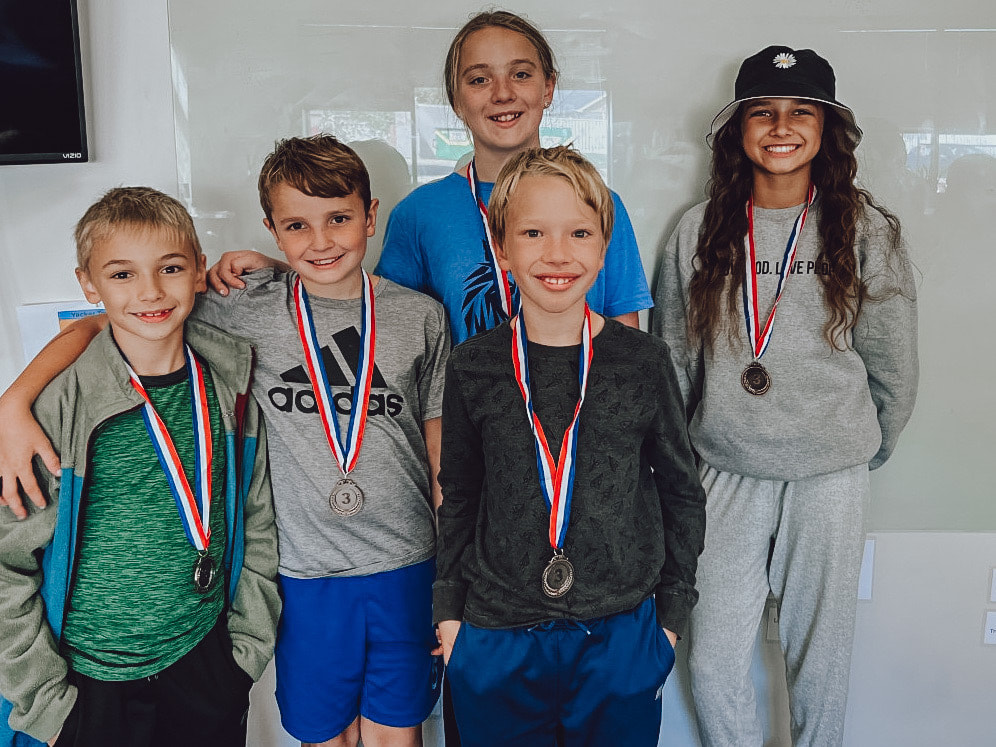
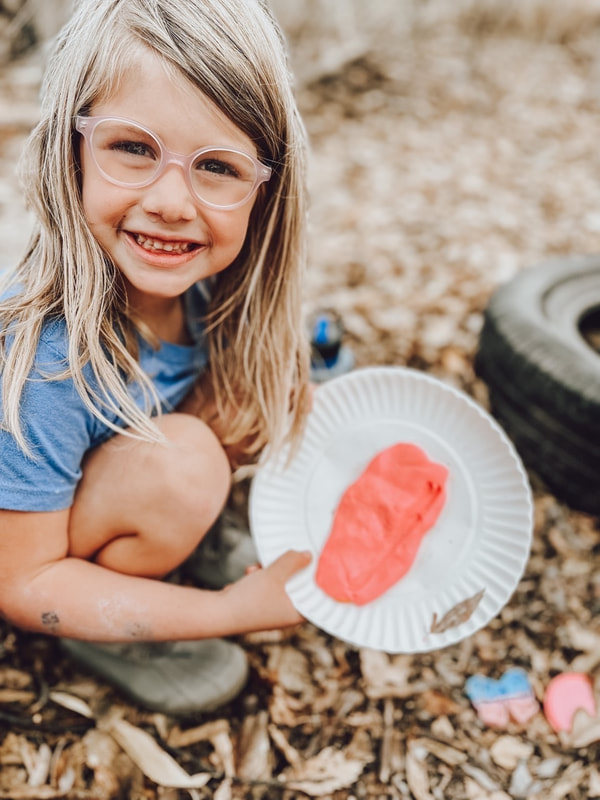
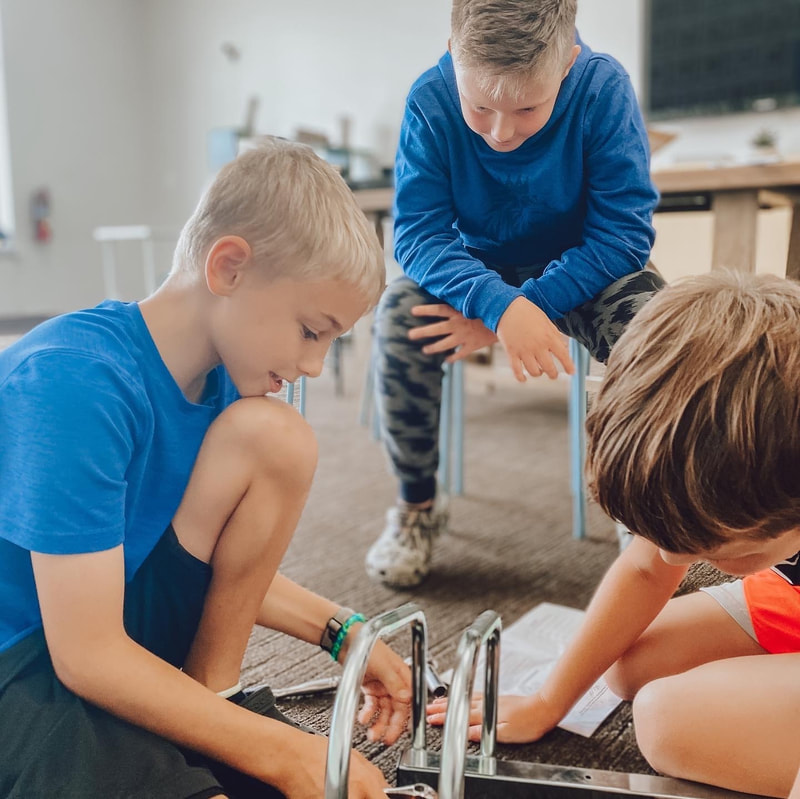
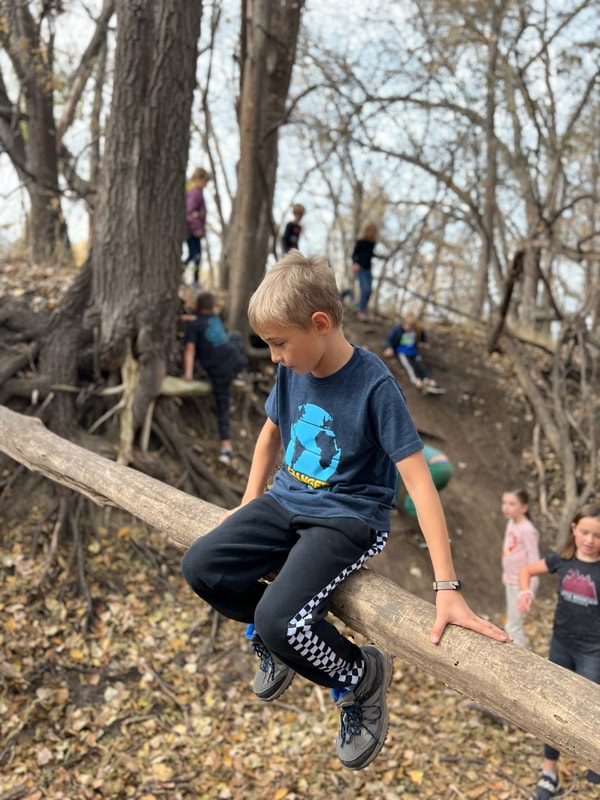
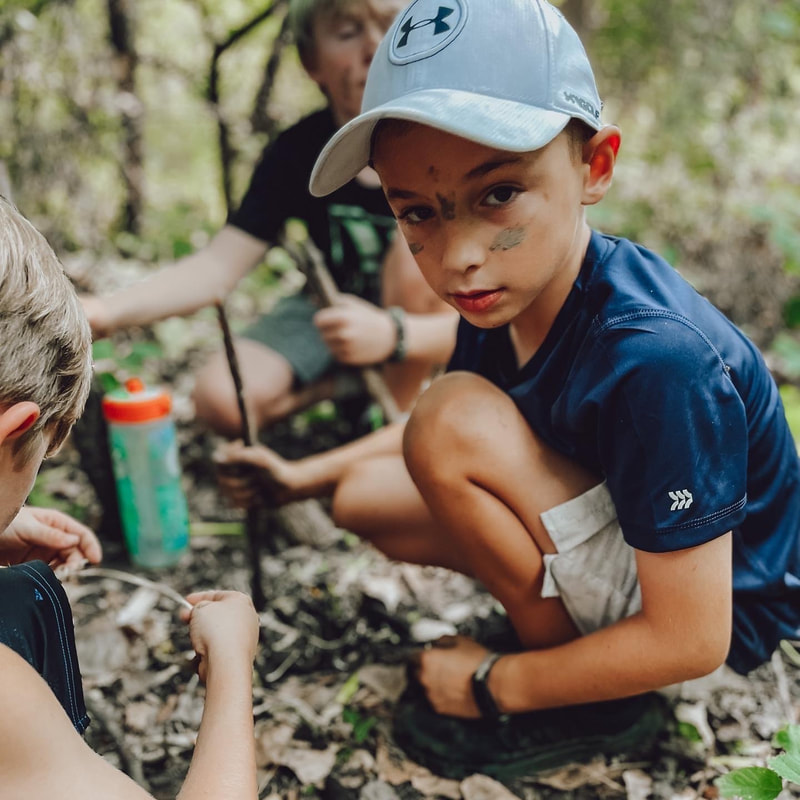
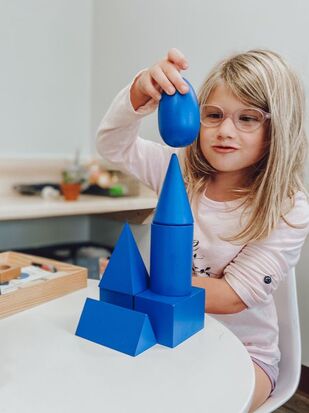
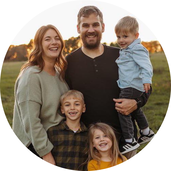

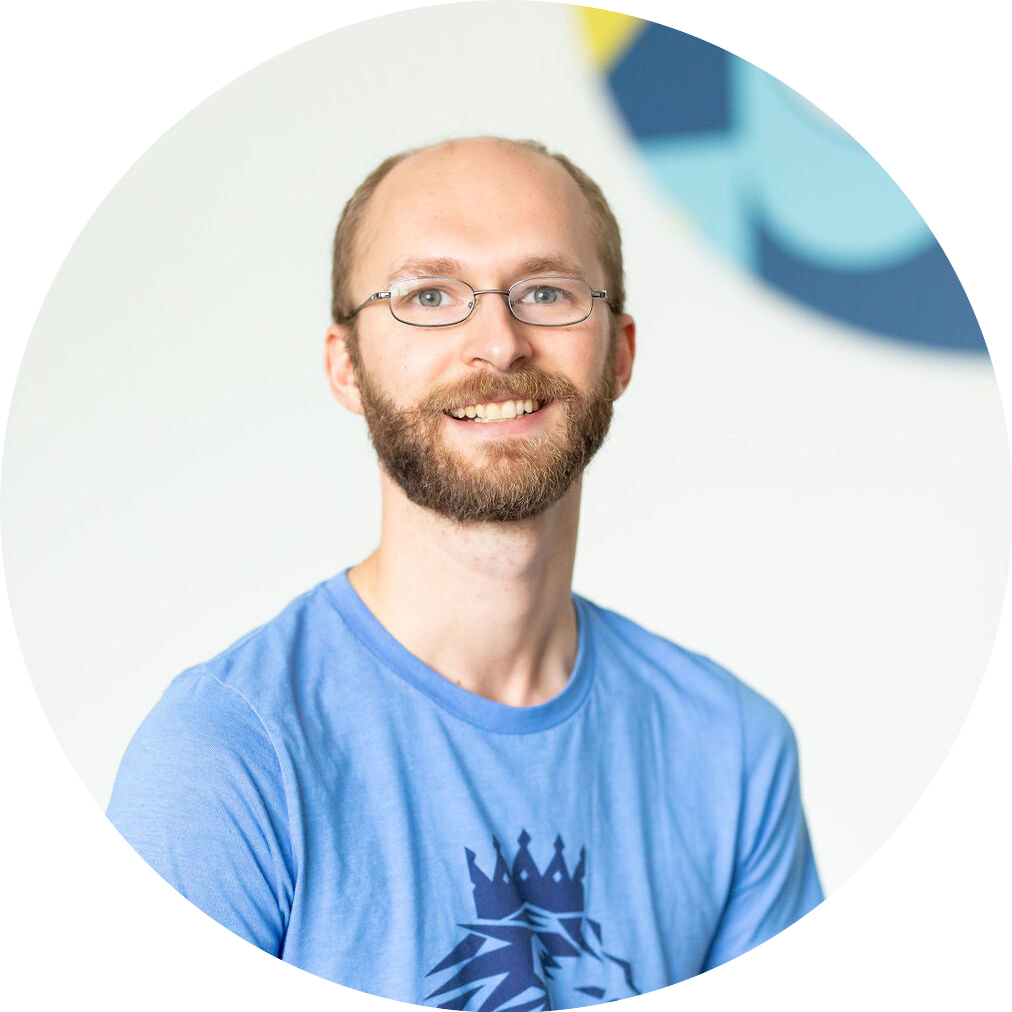

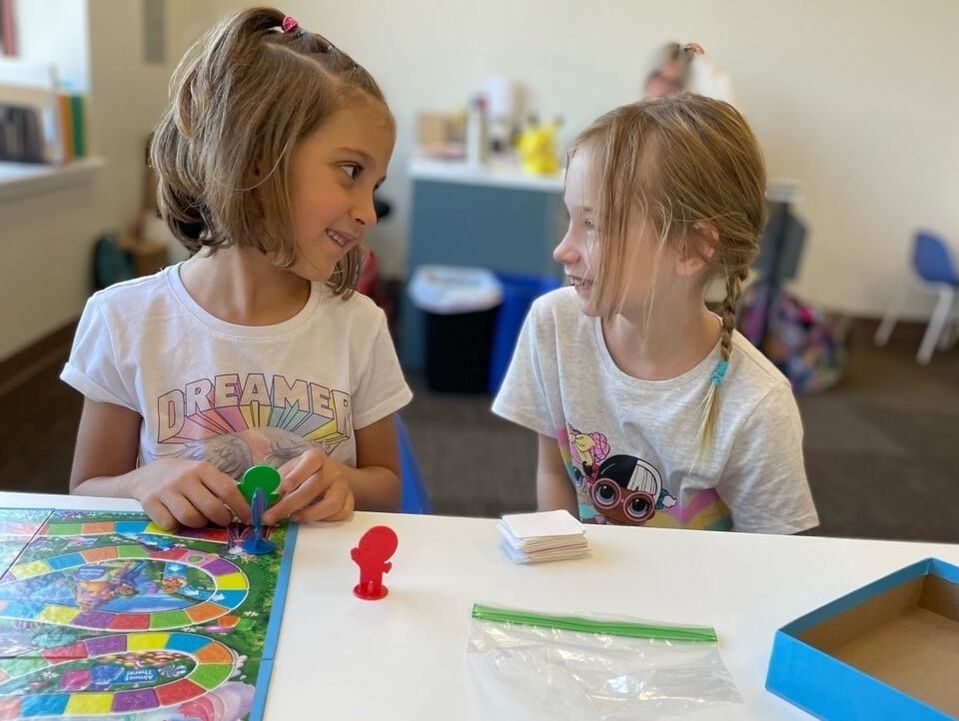
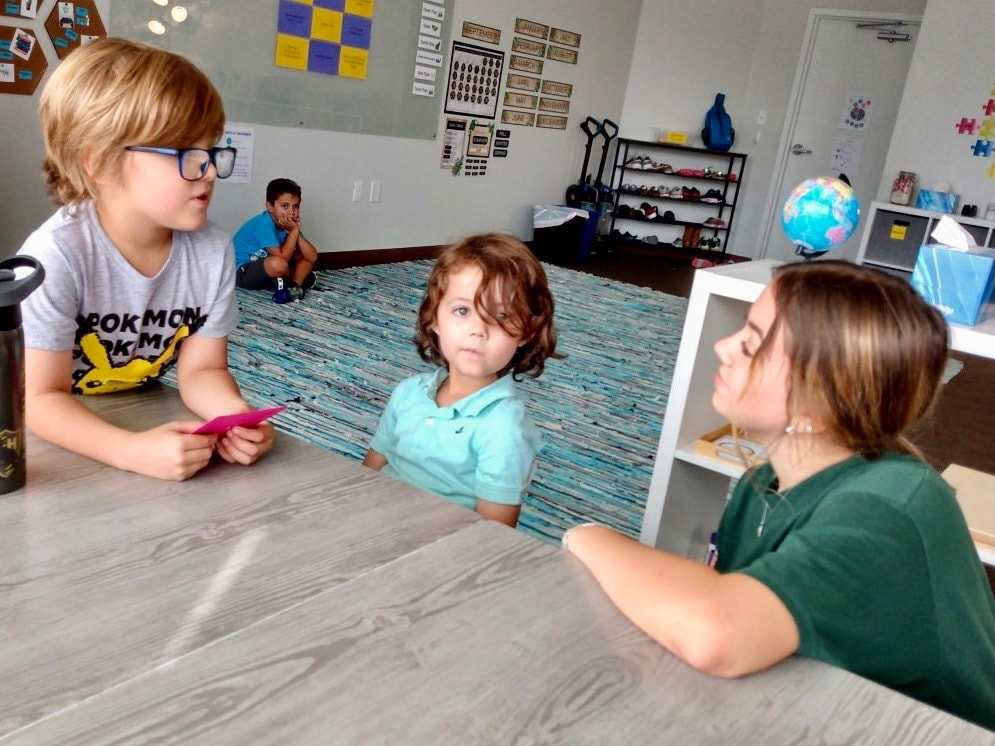
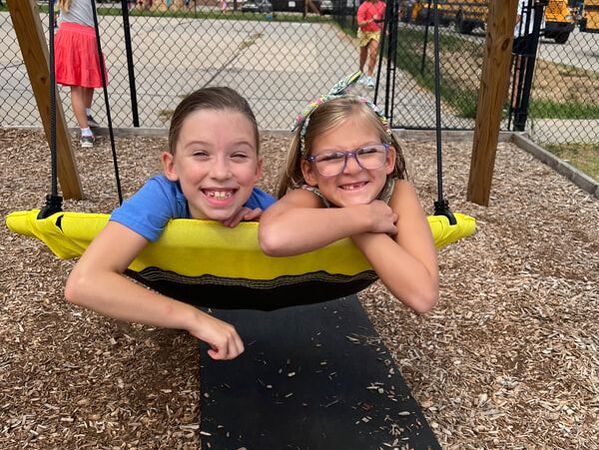
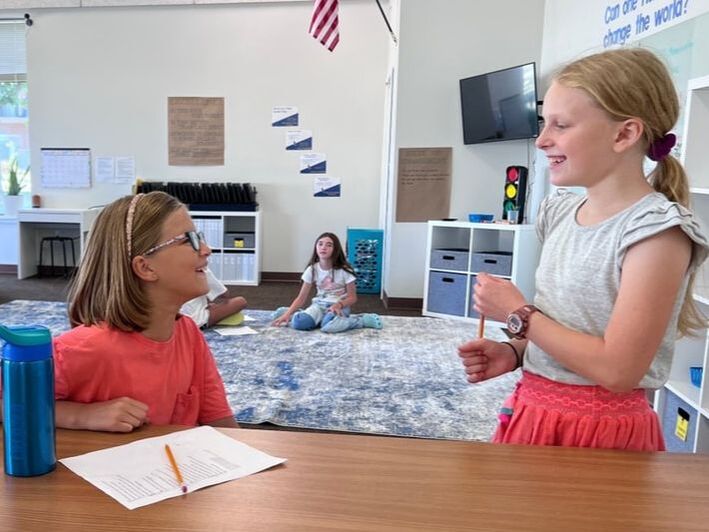
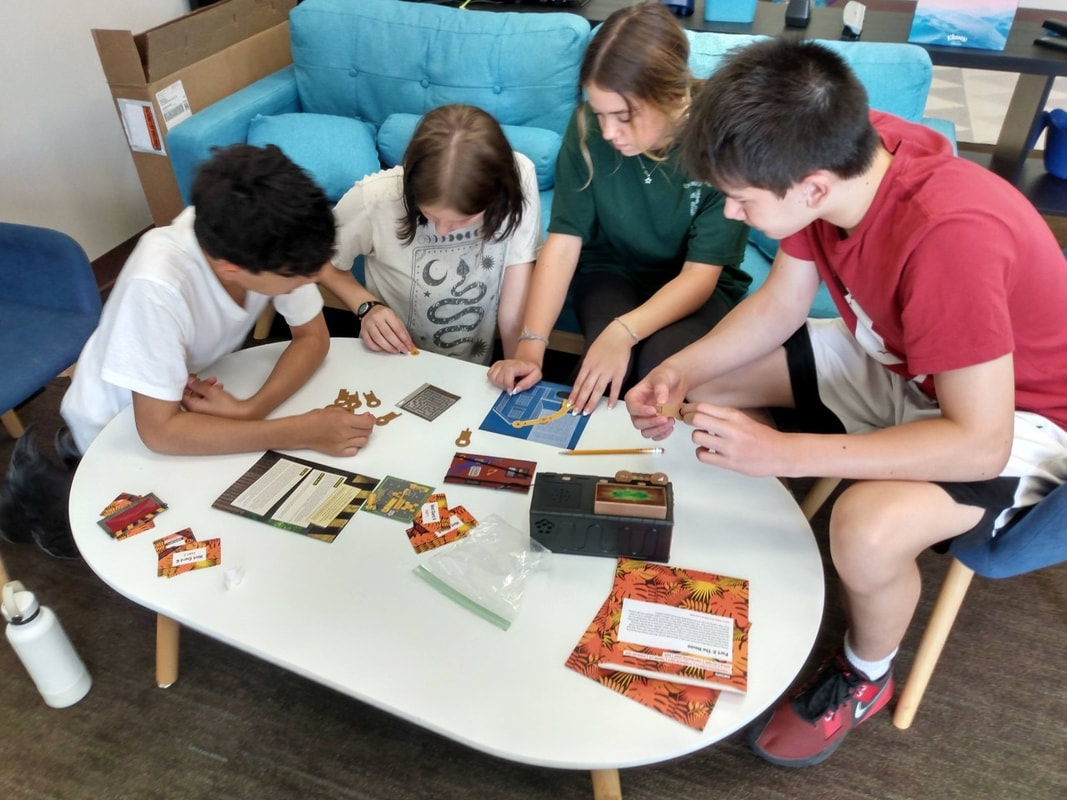
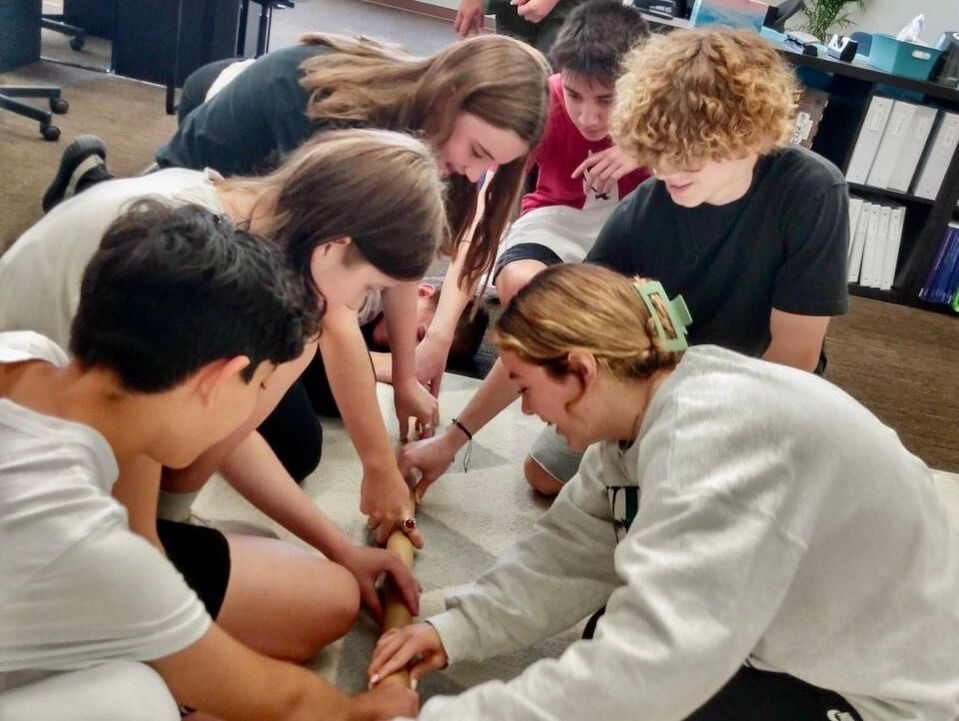
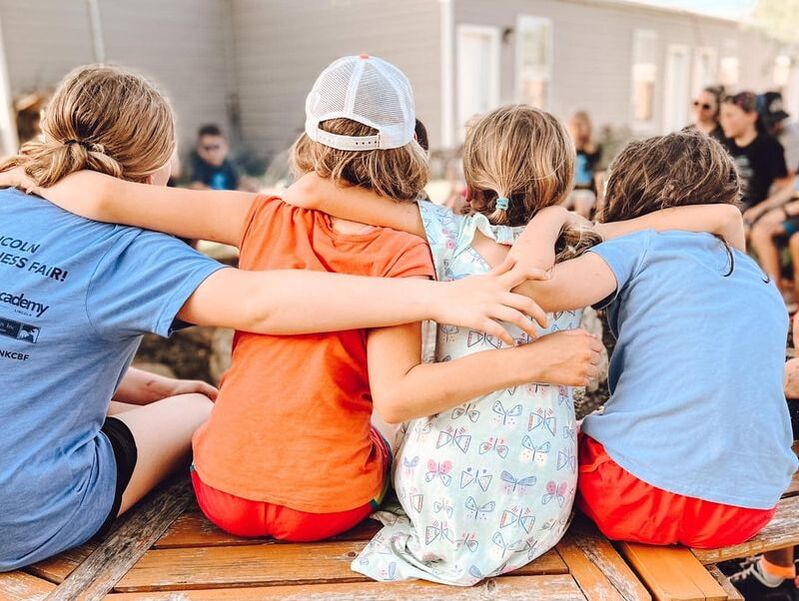
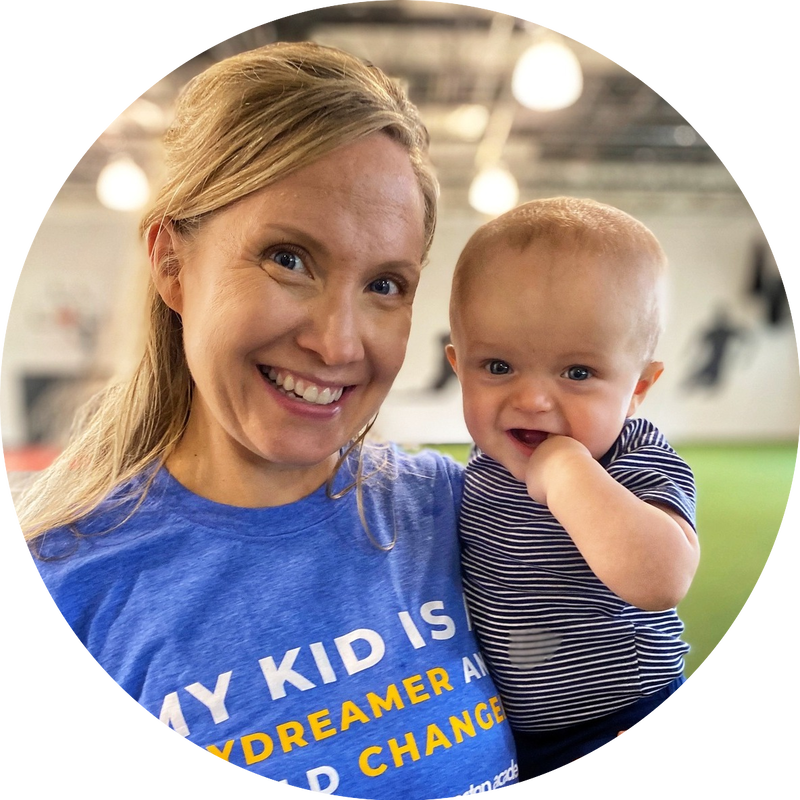
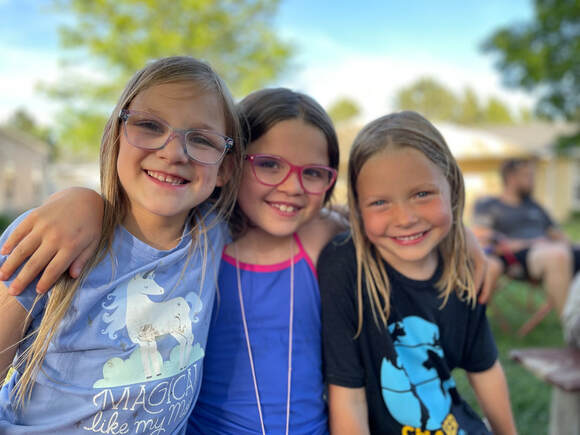





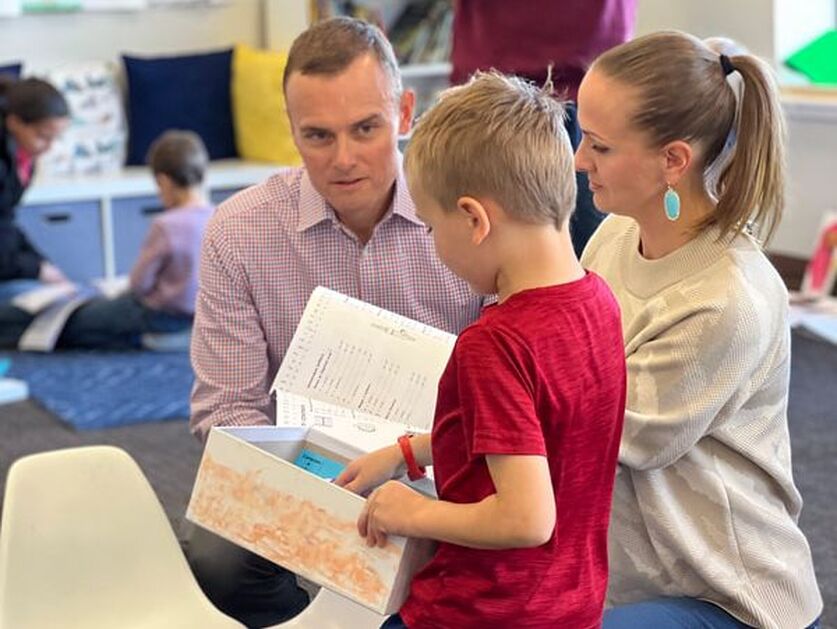
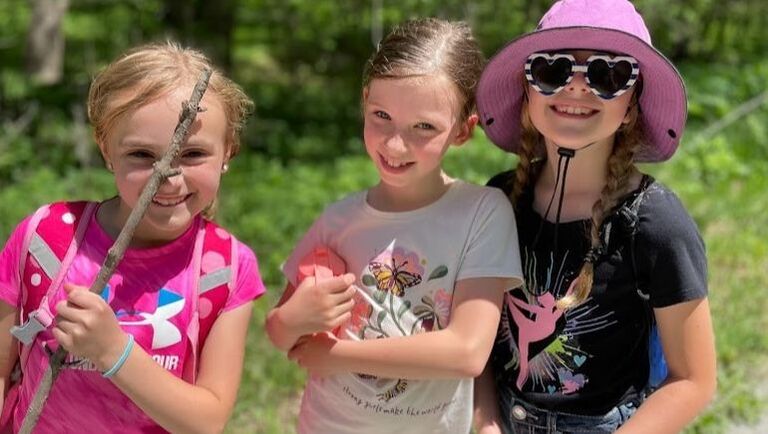
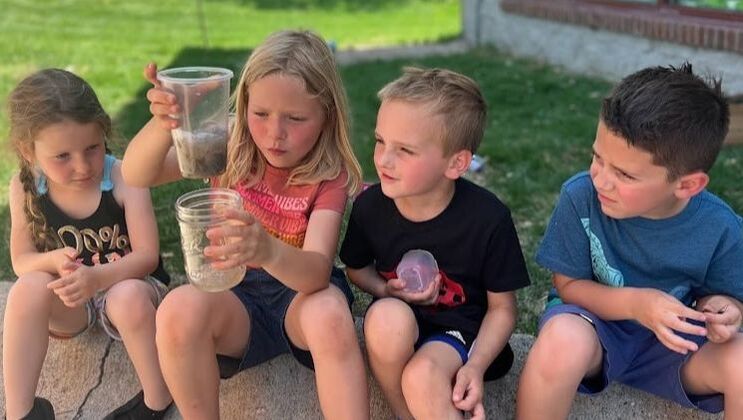
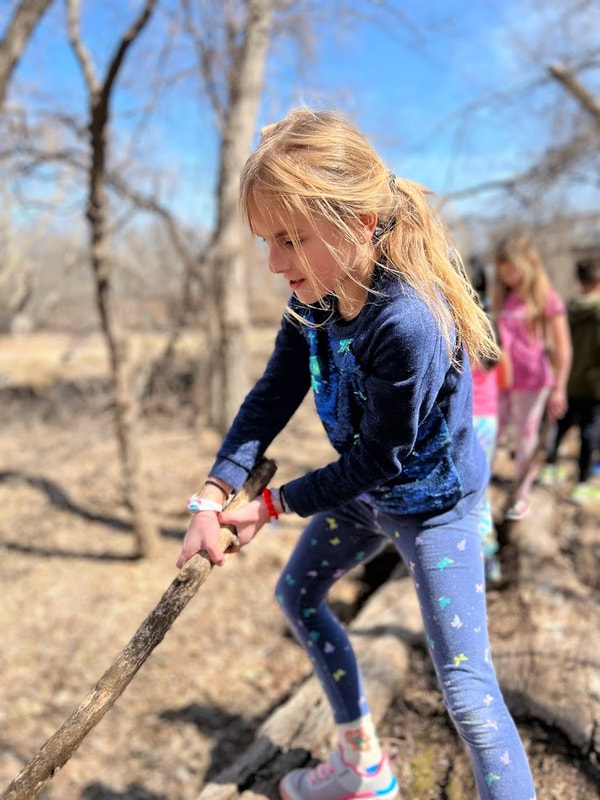
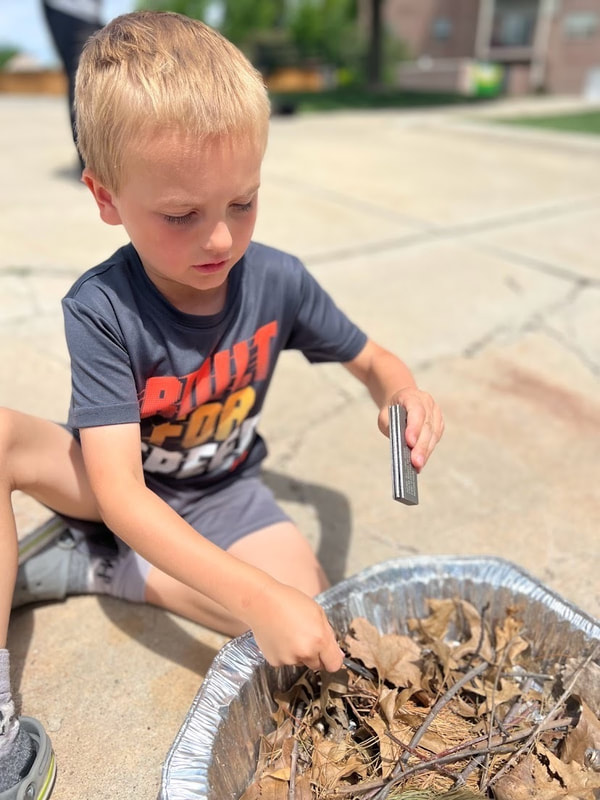
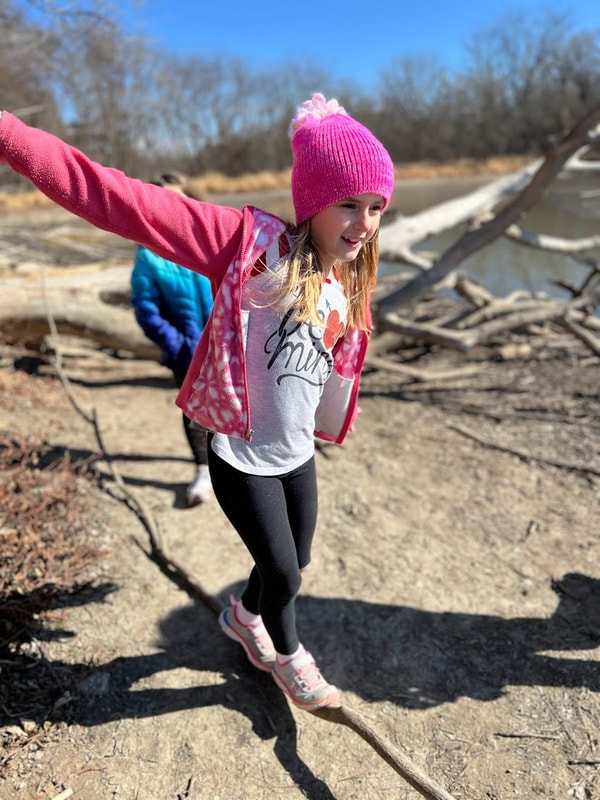
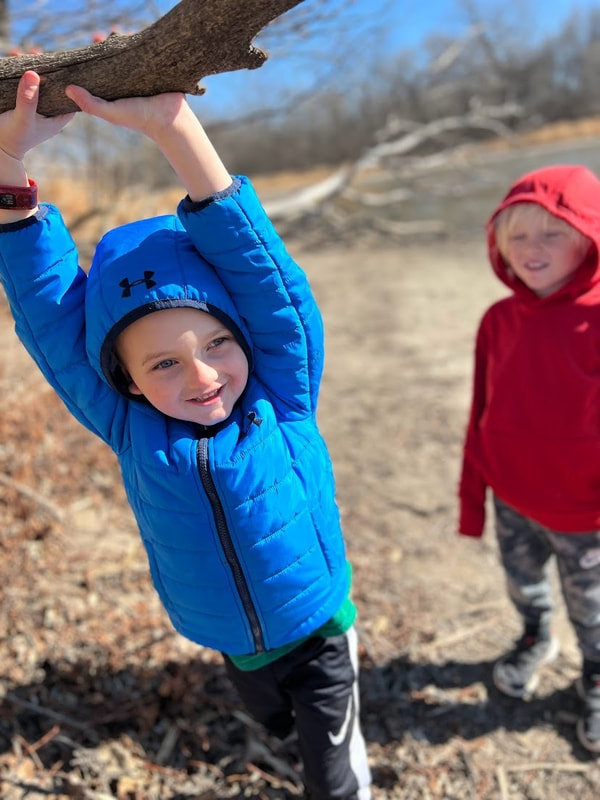
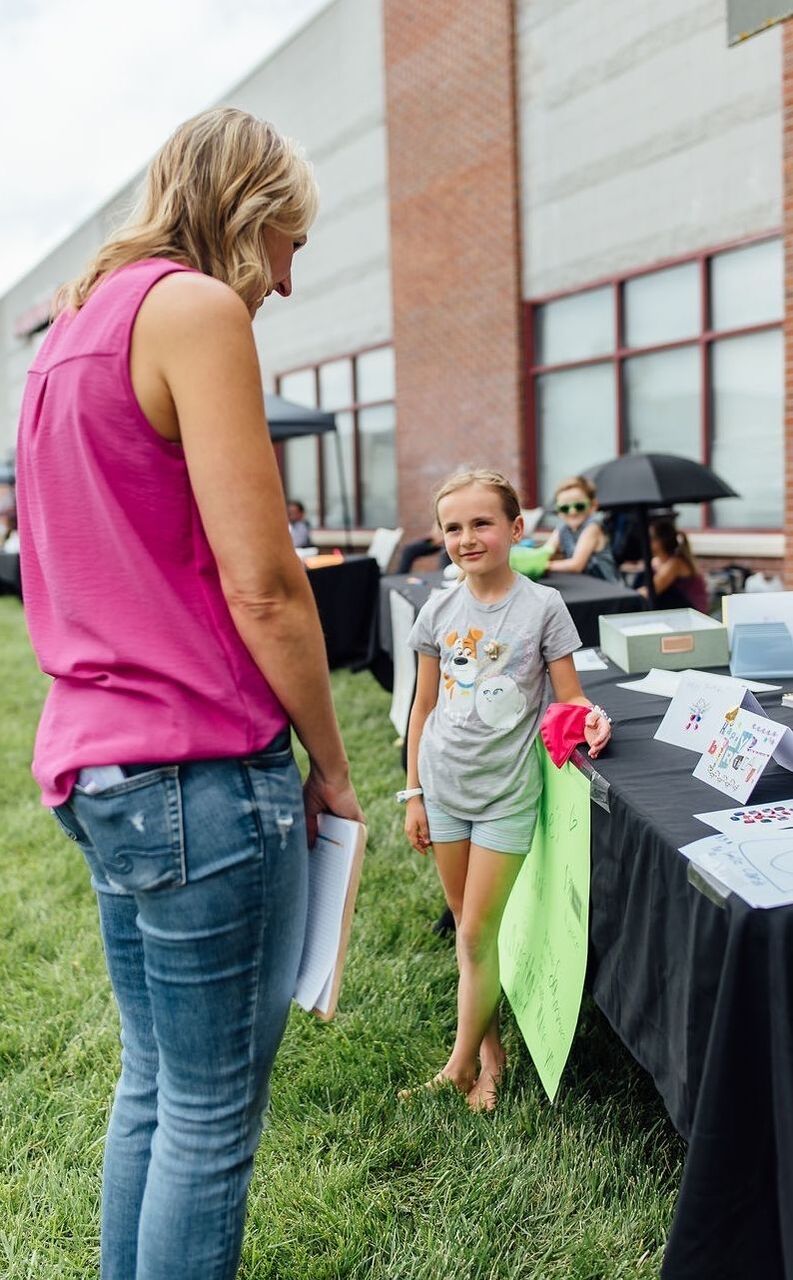
 RSS Feed
RSS Feed


